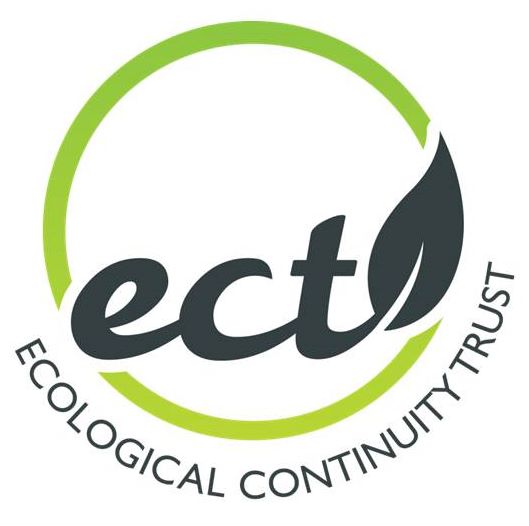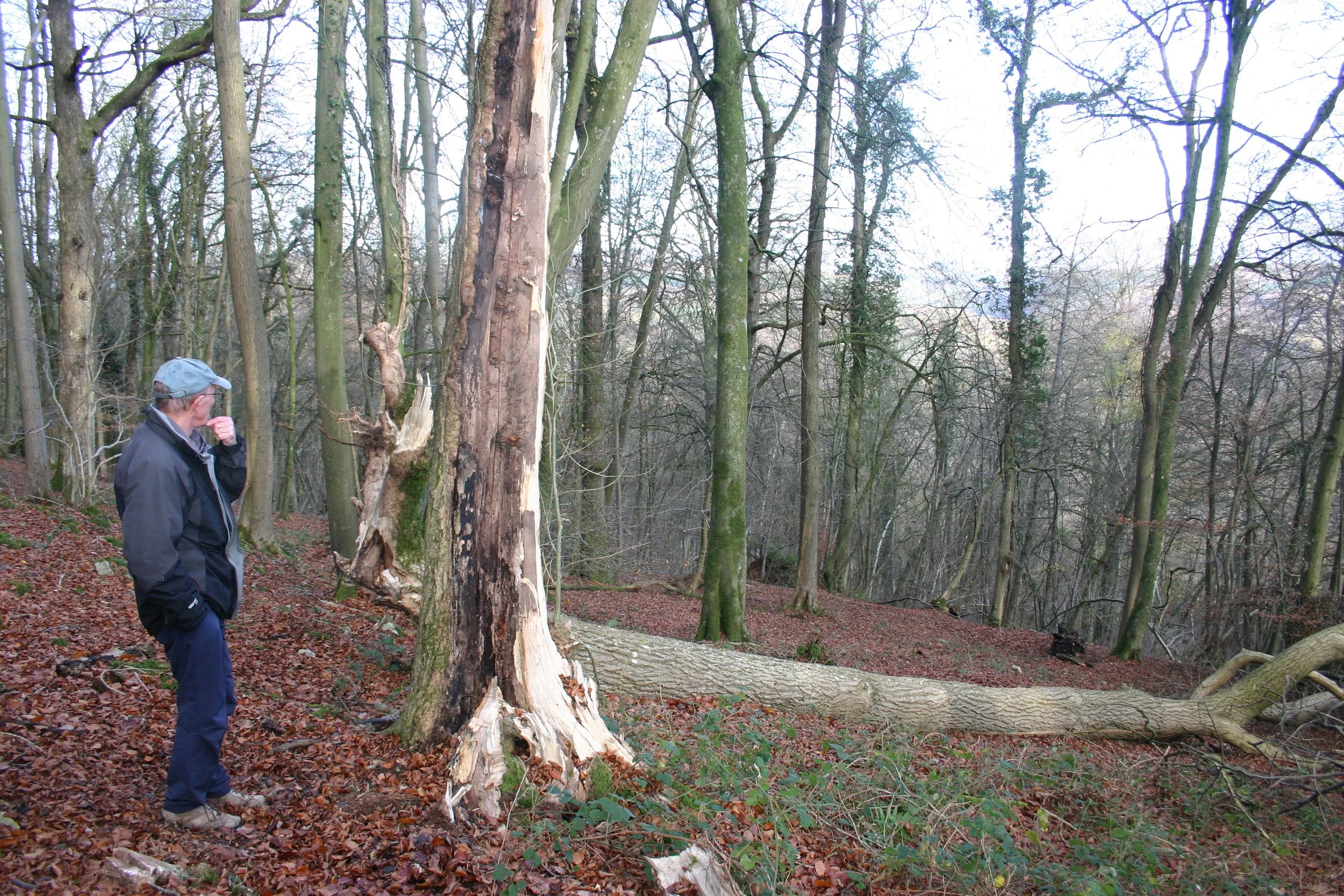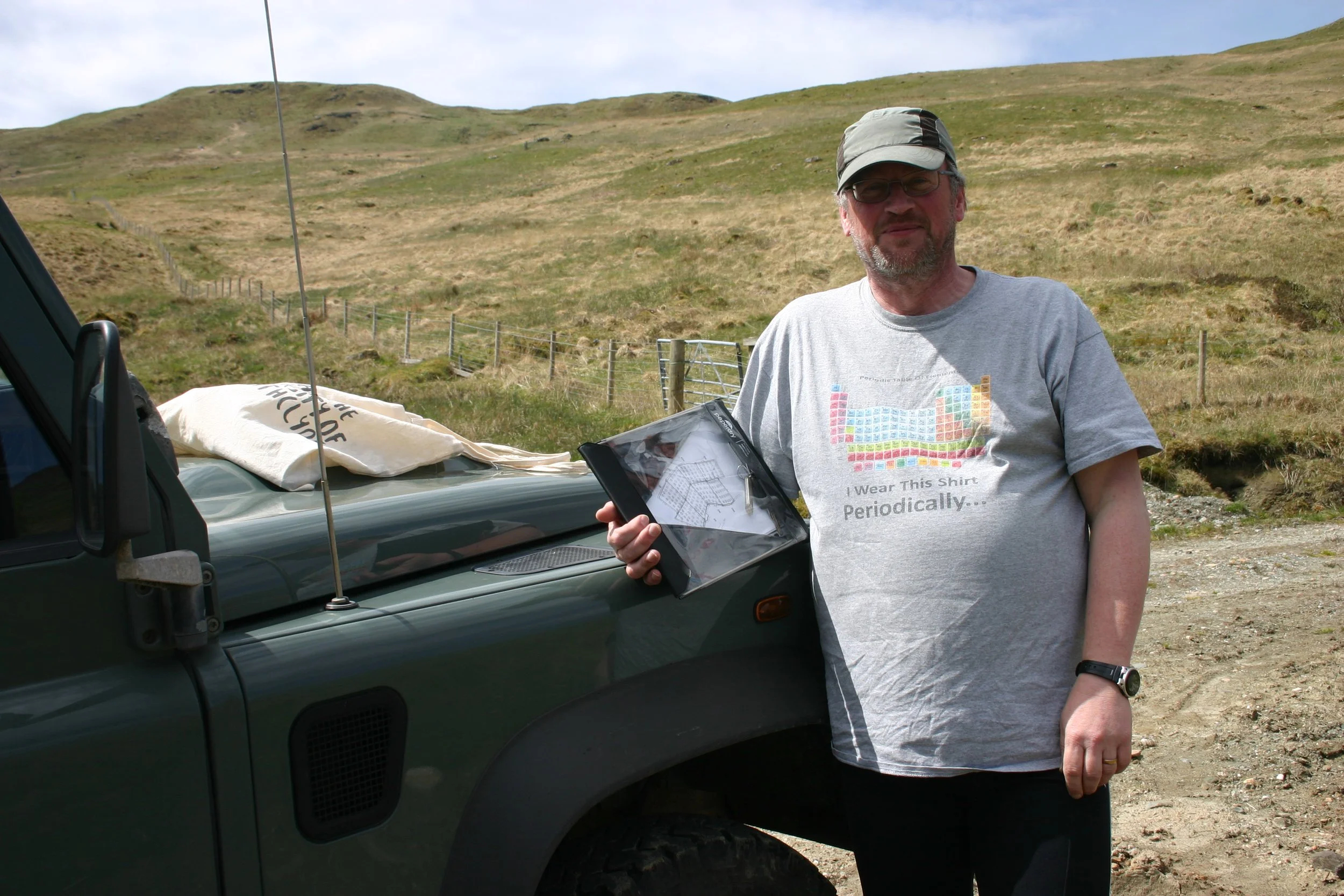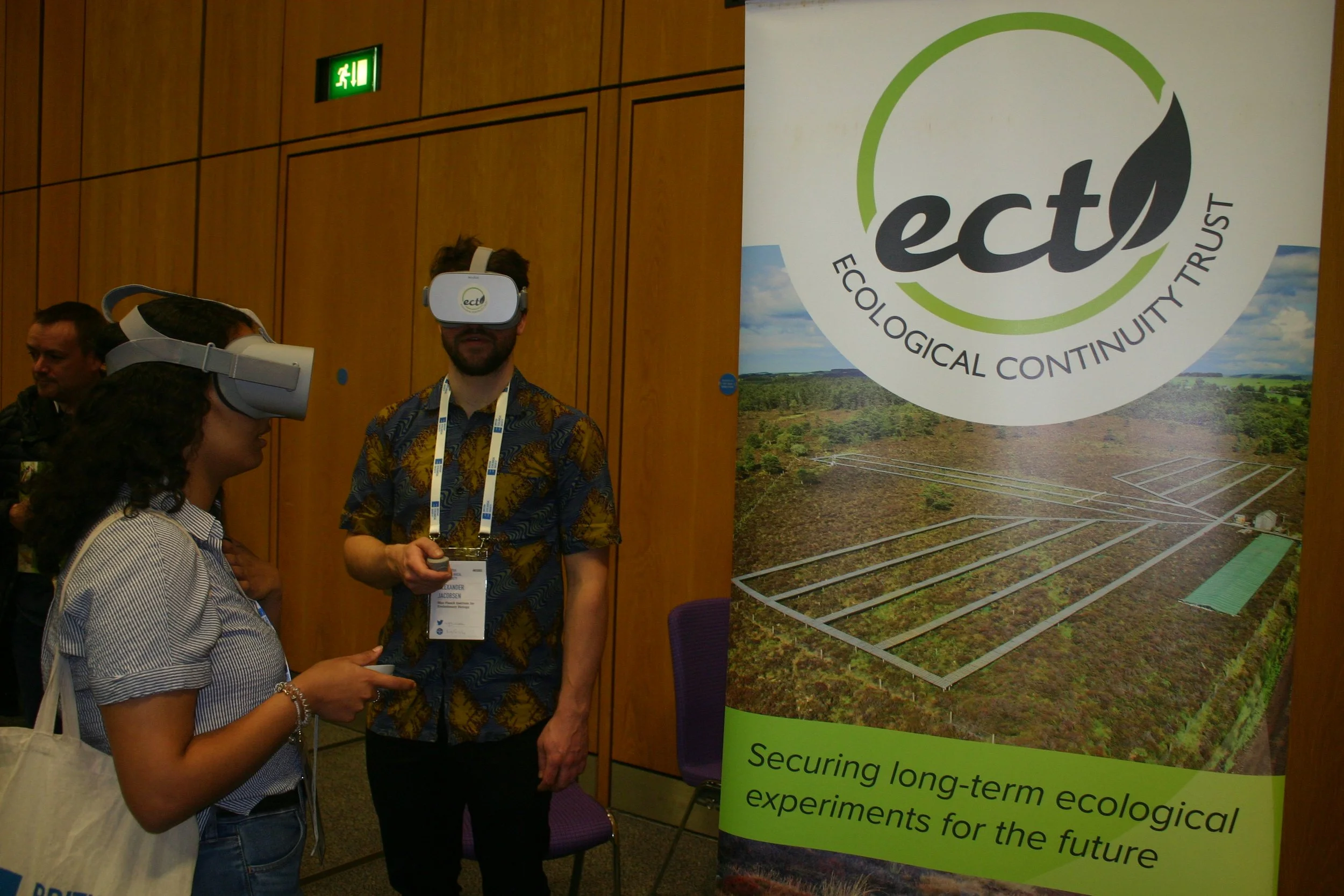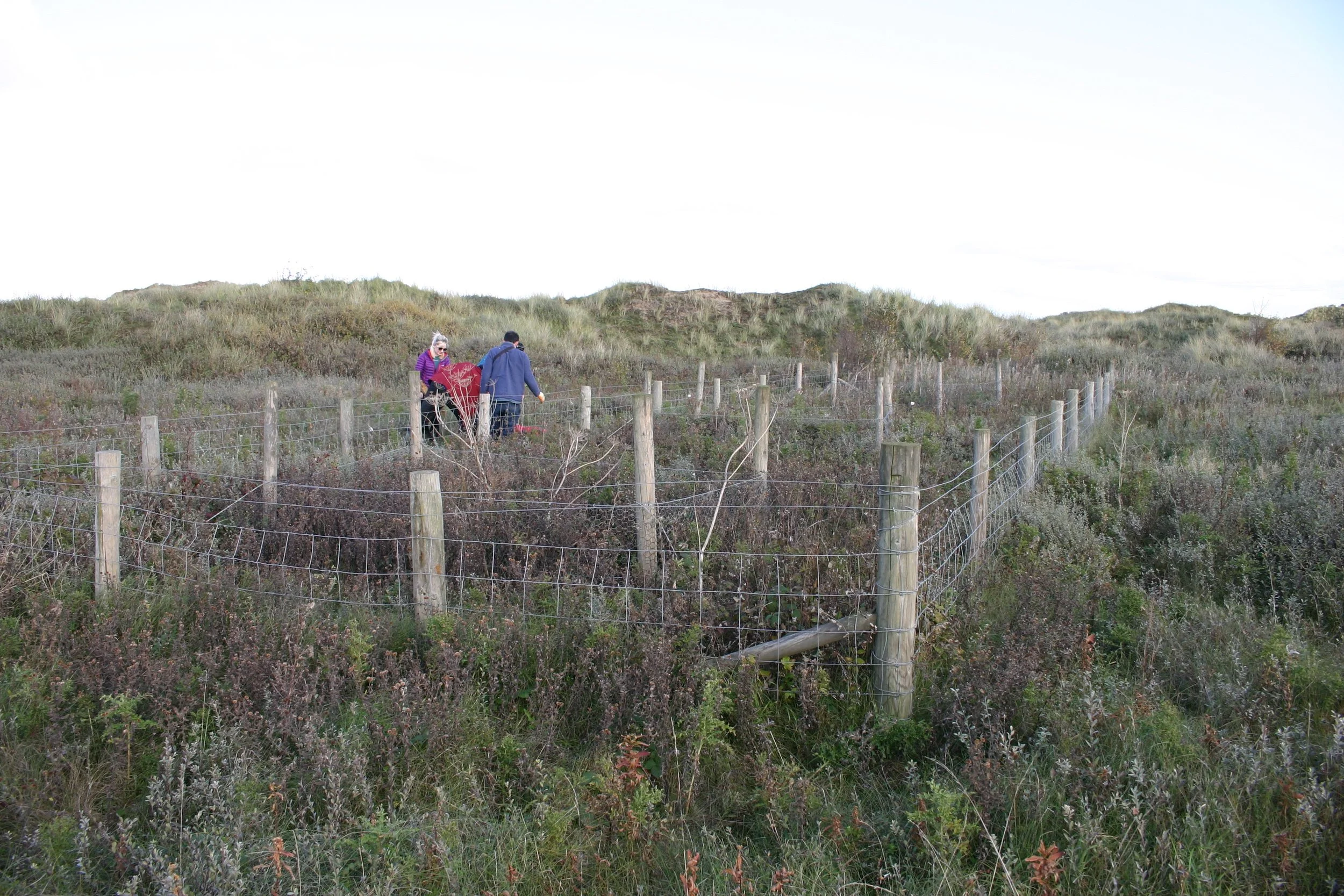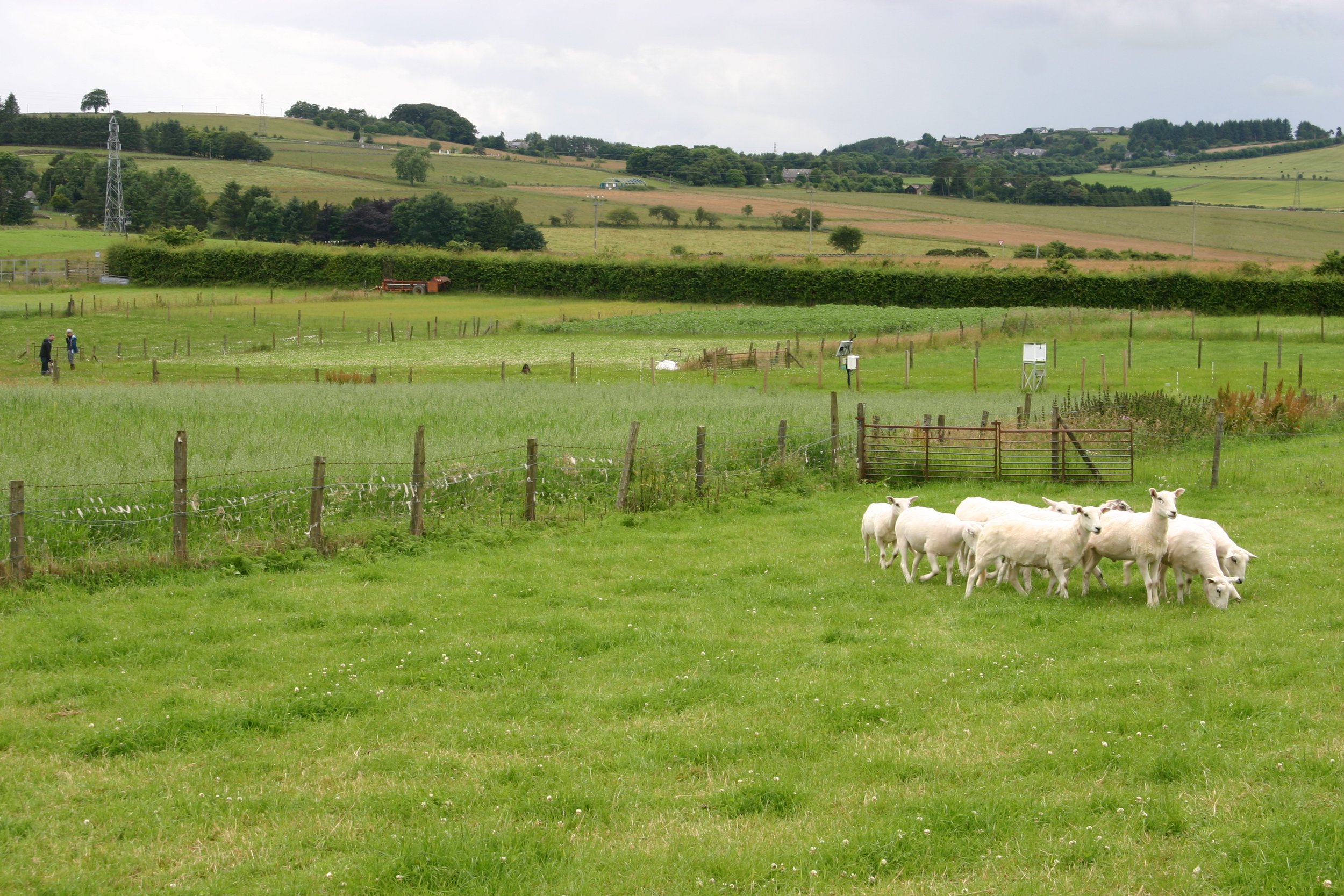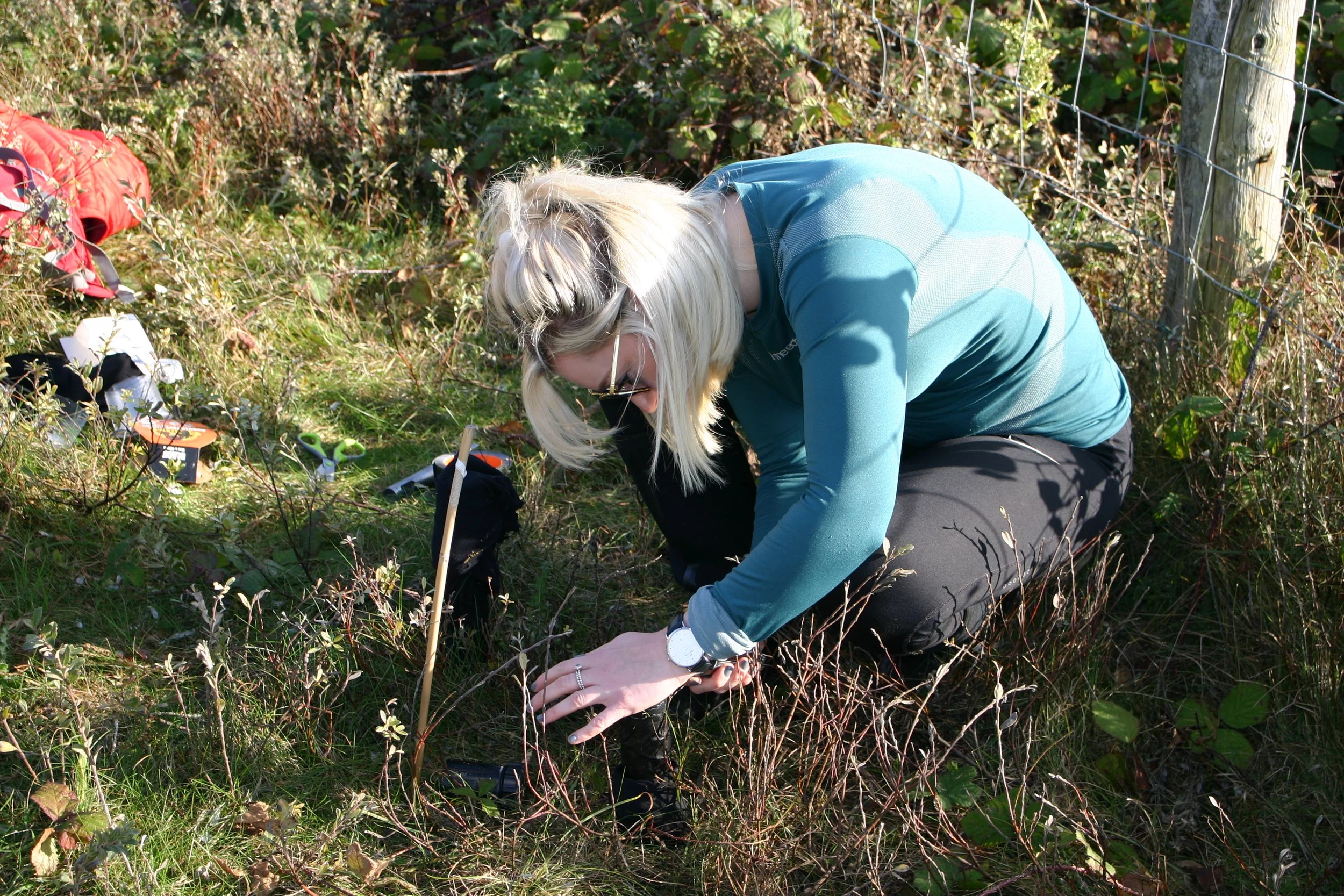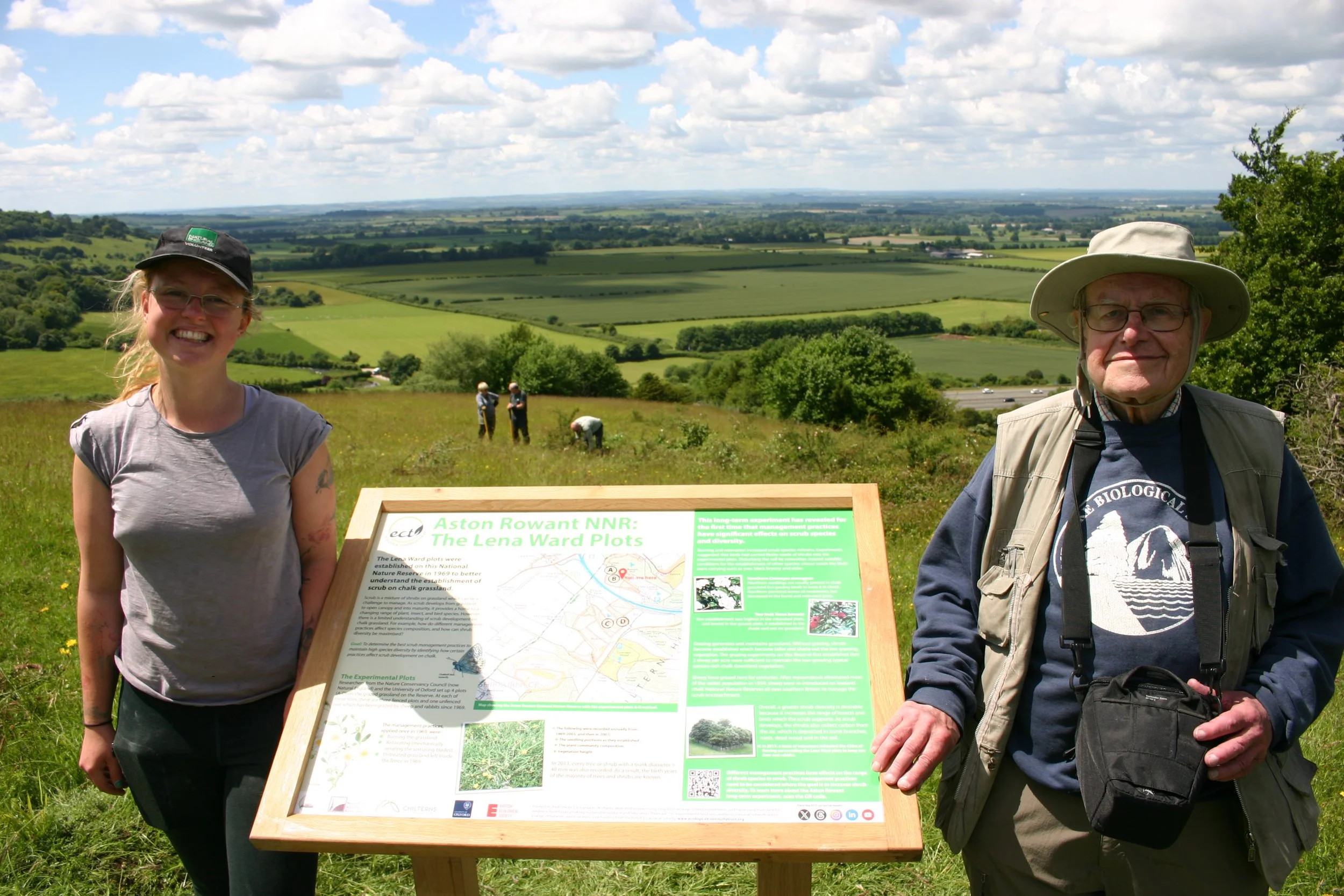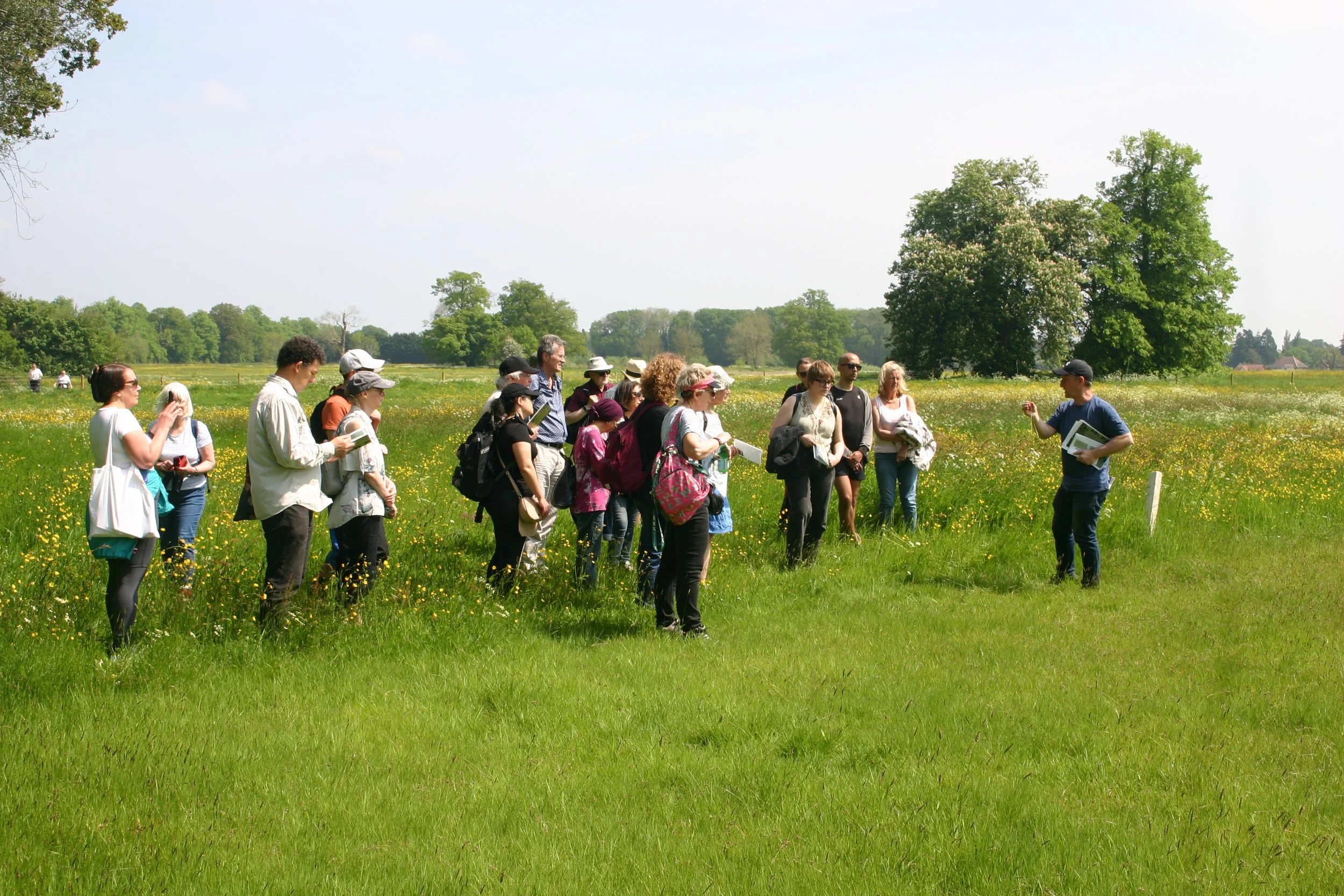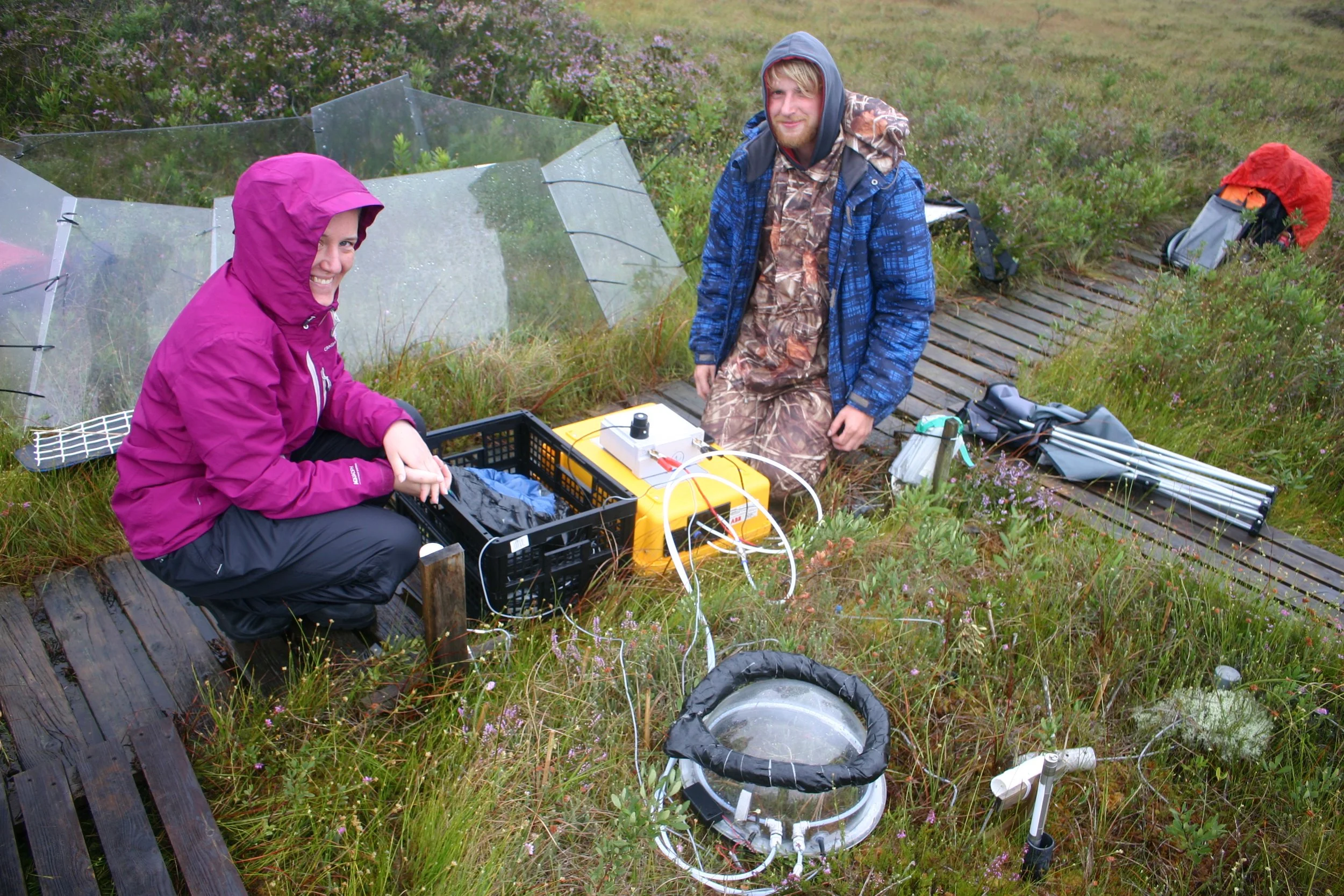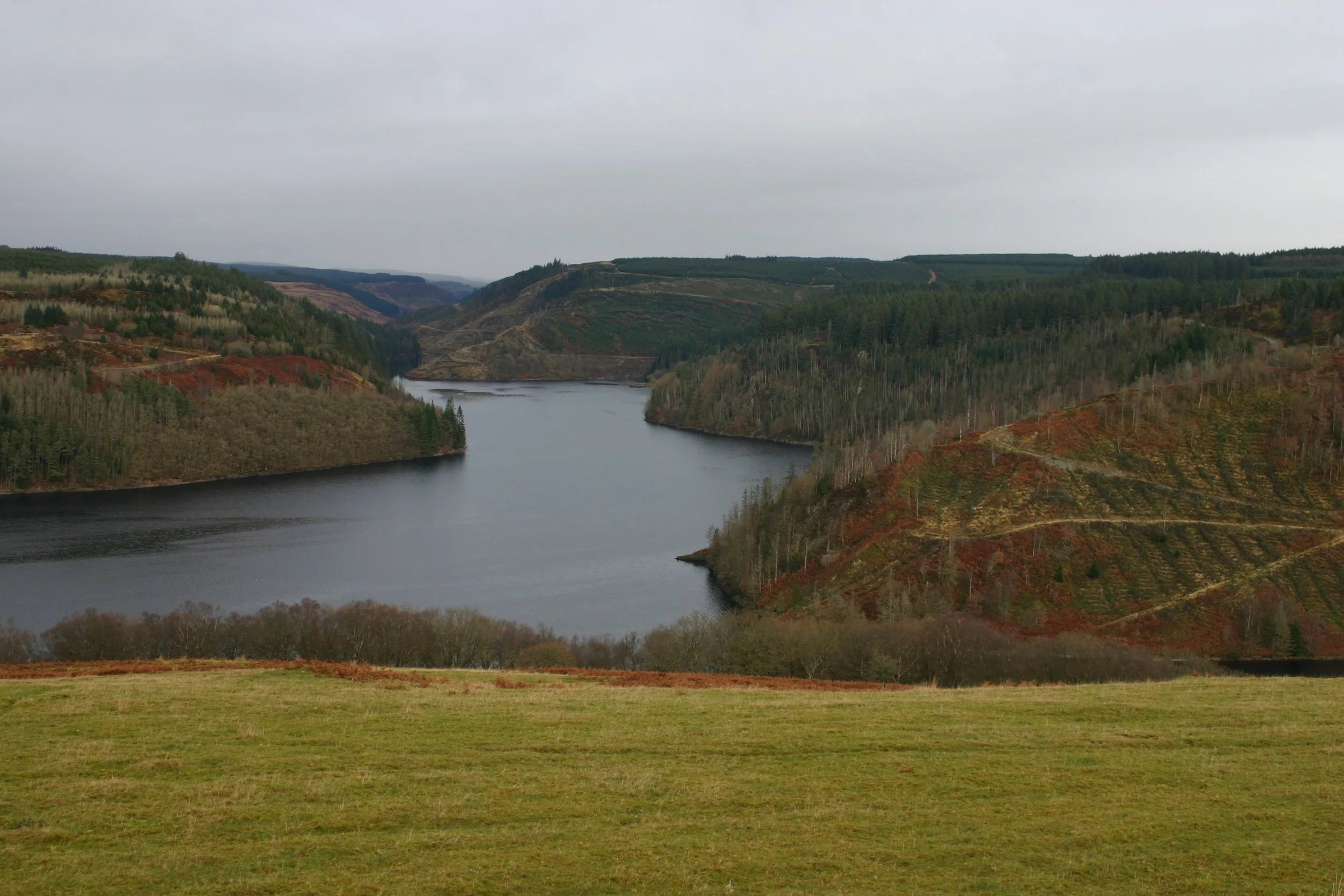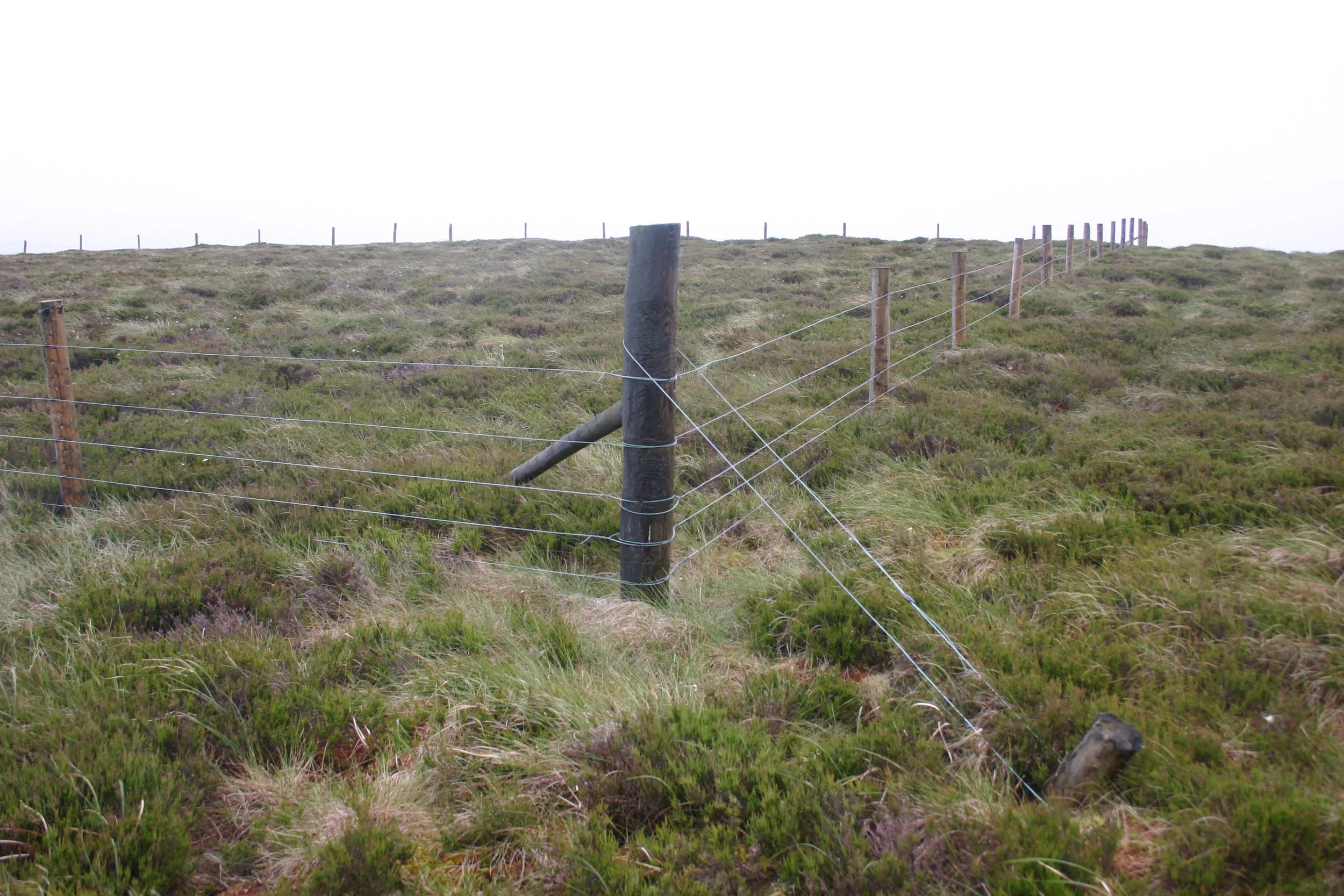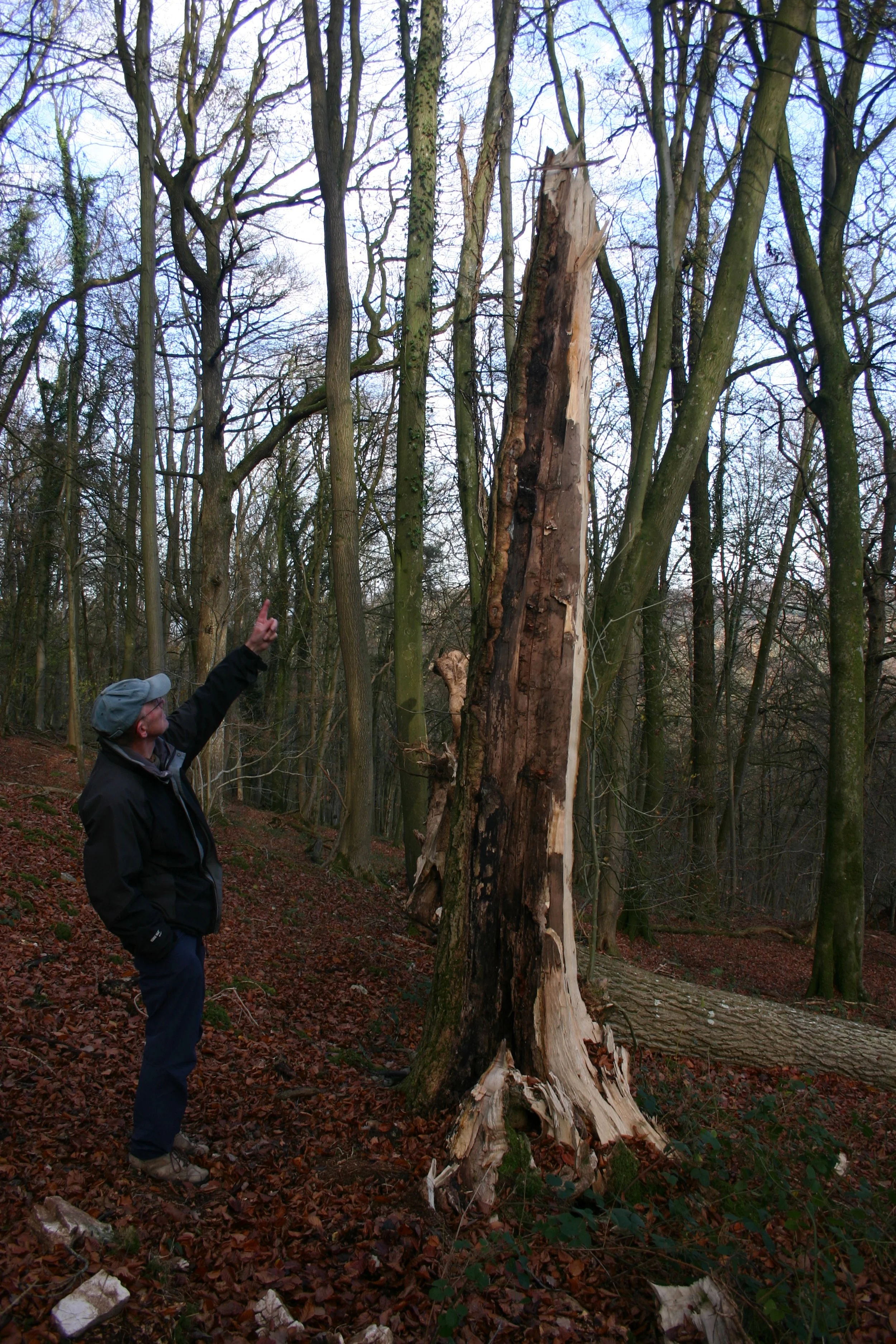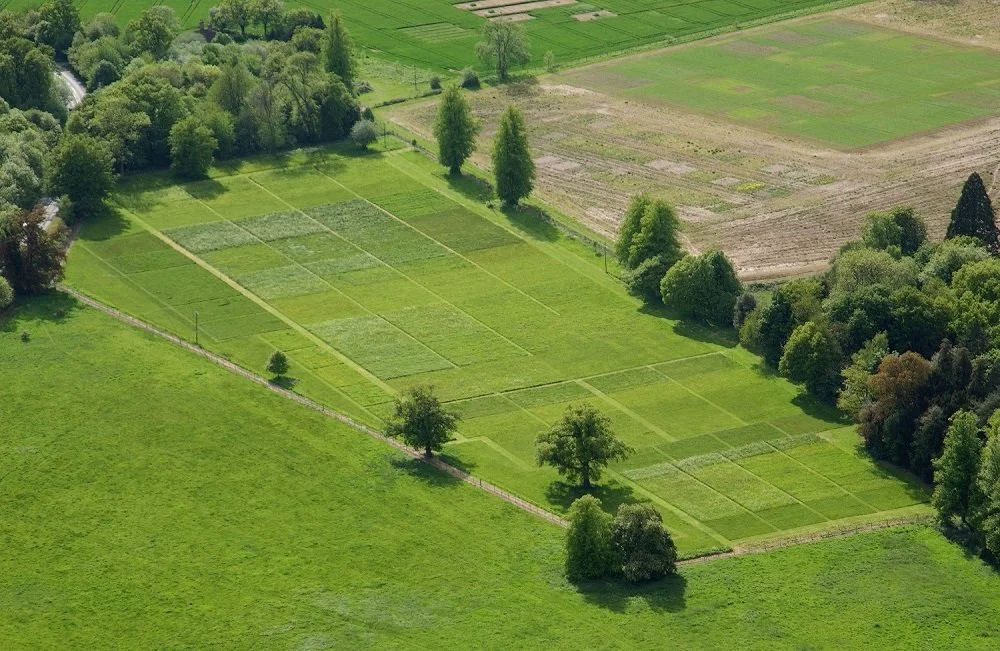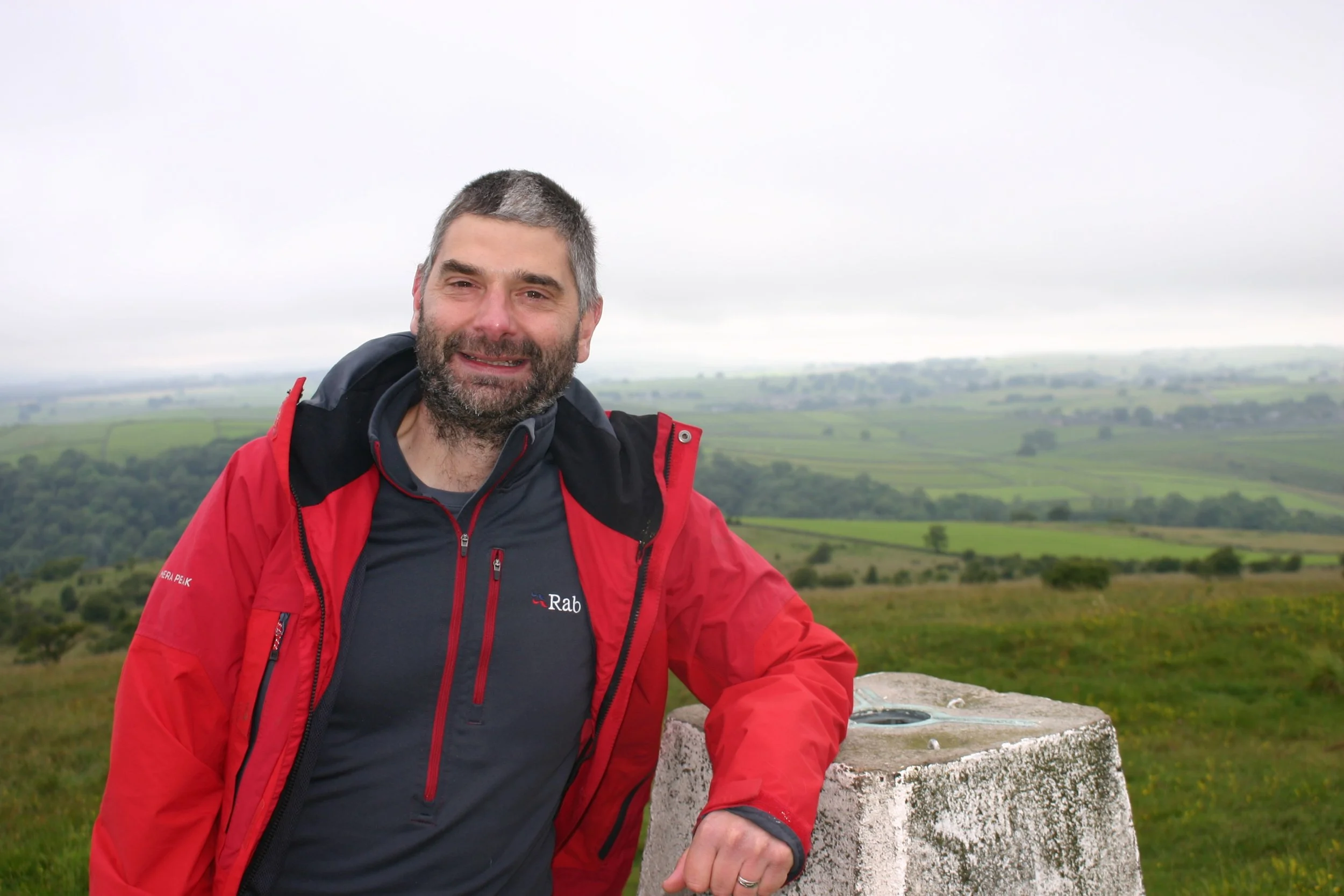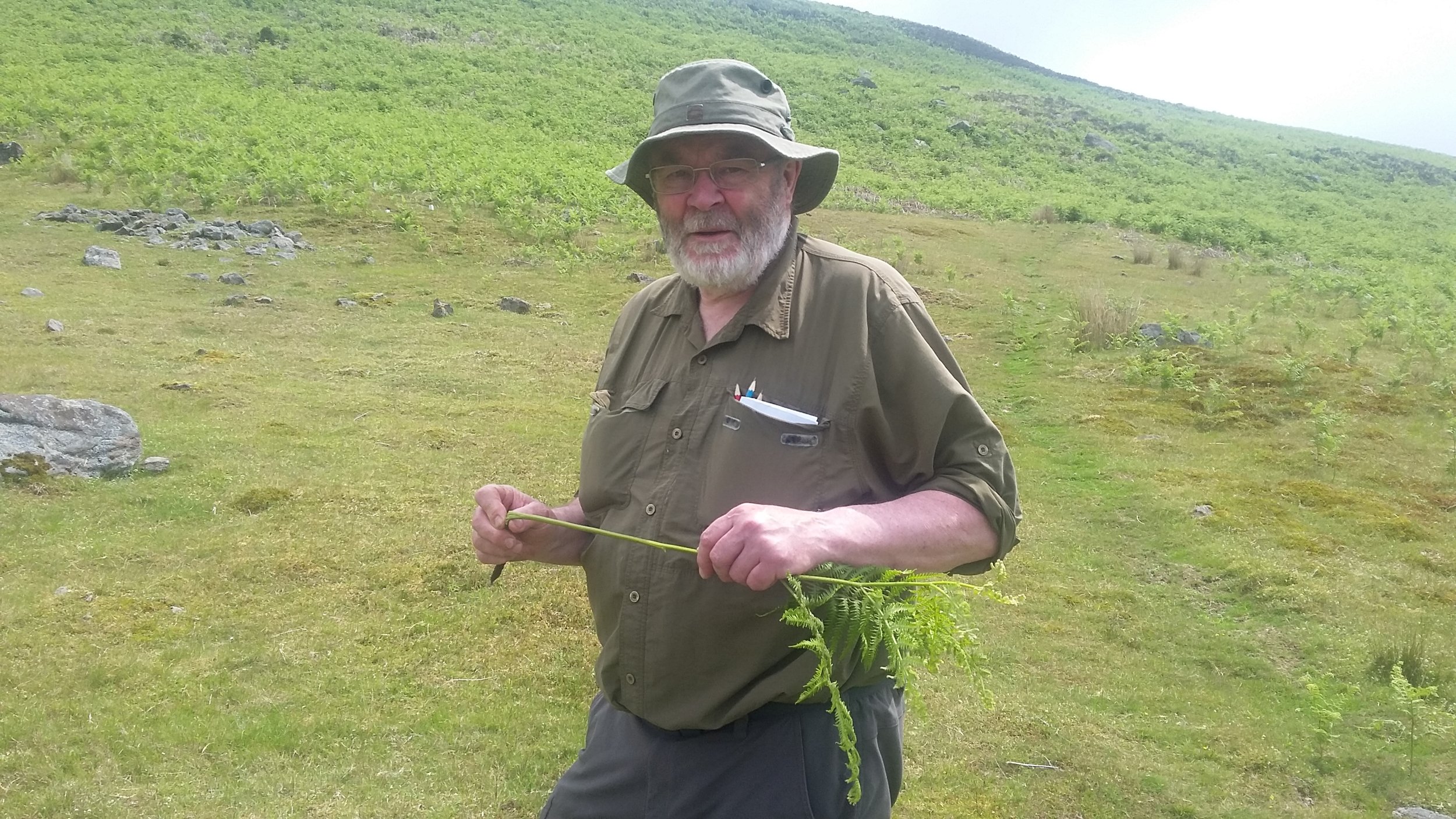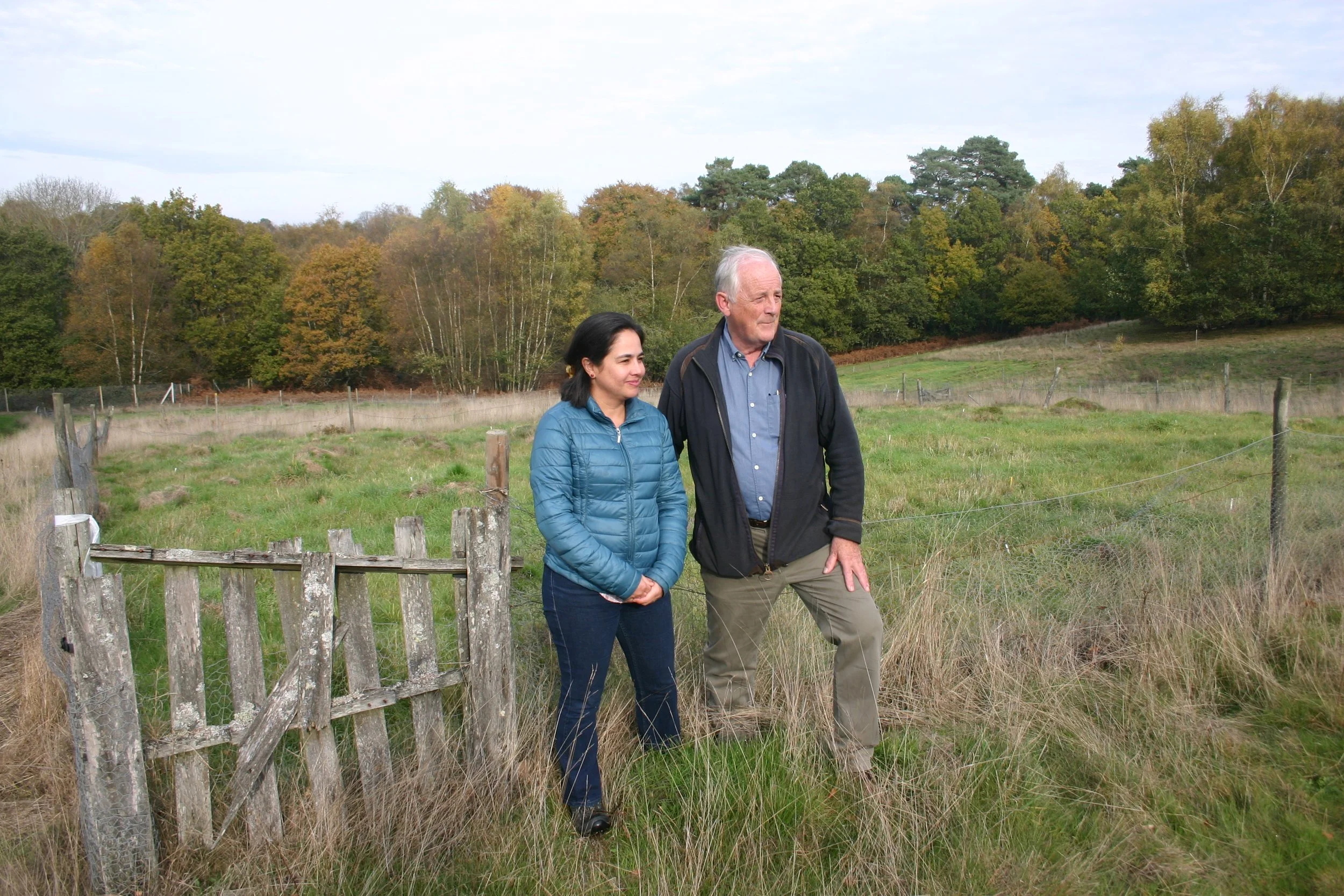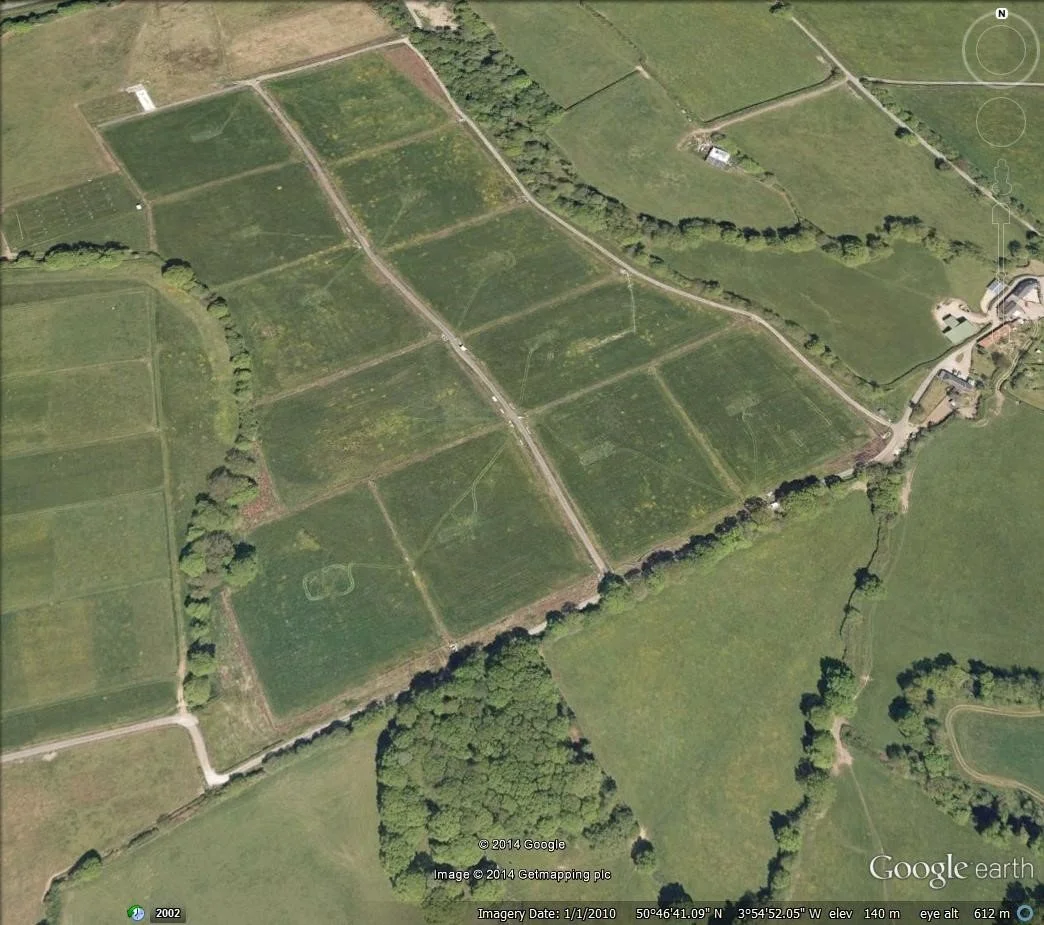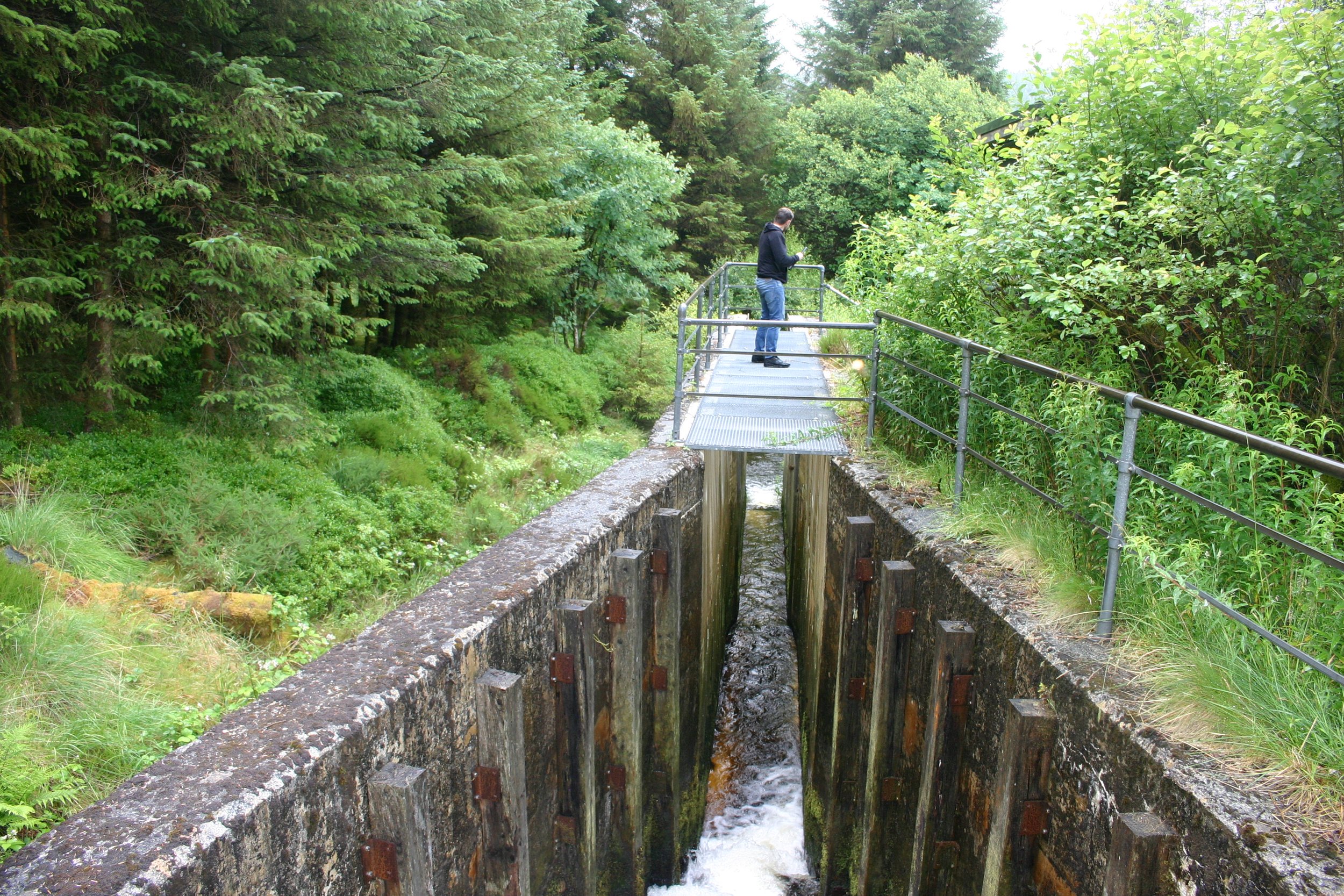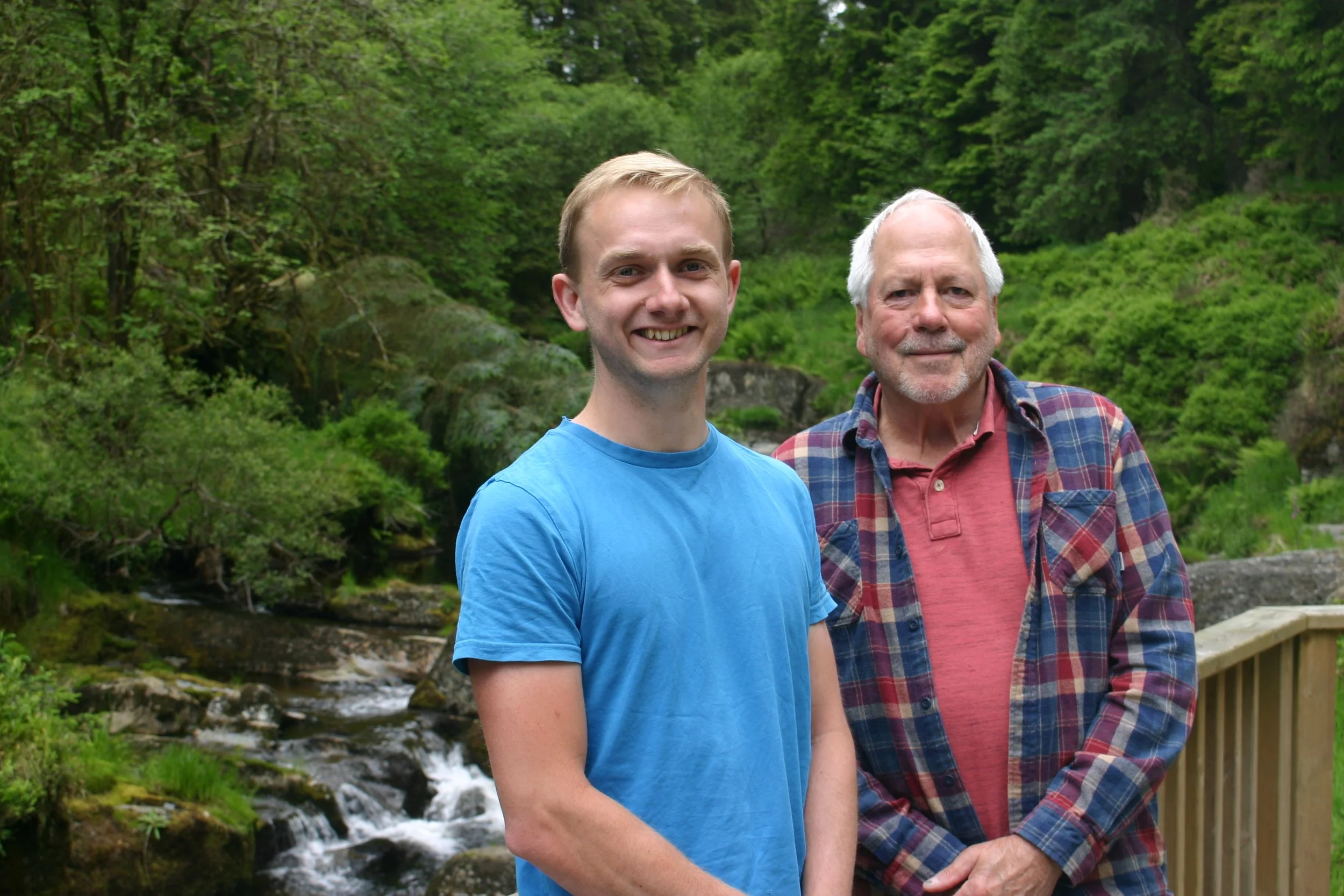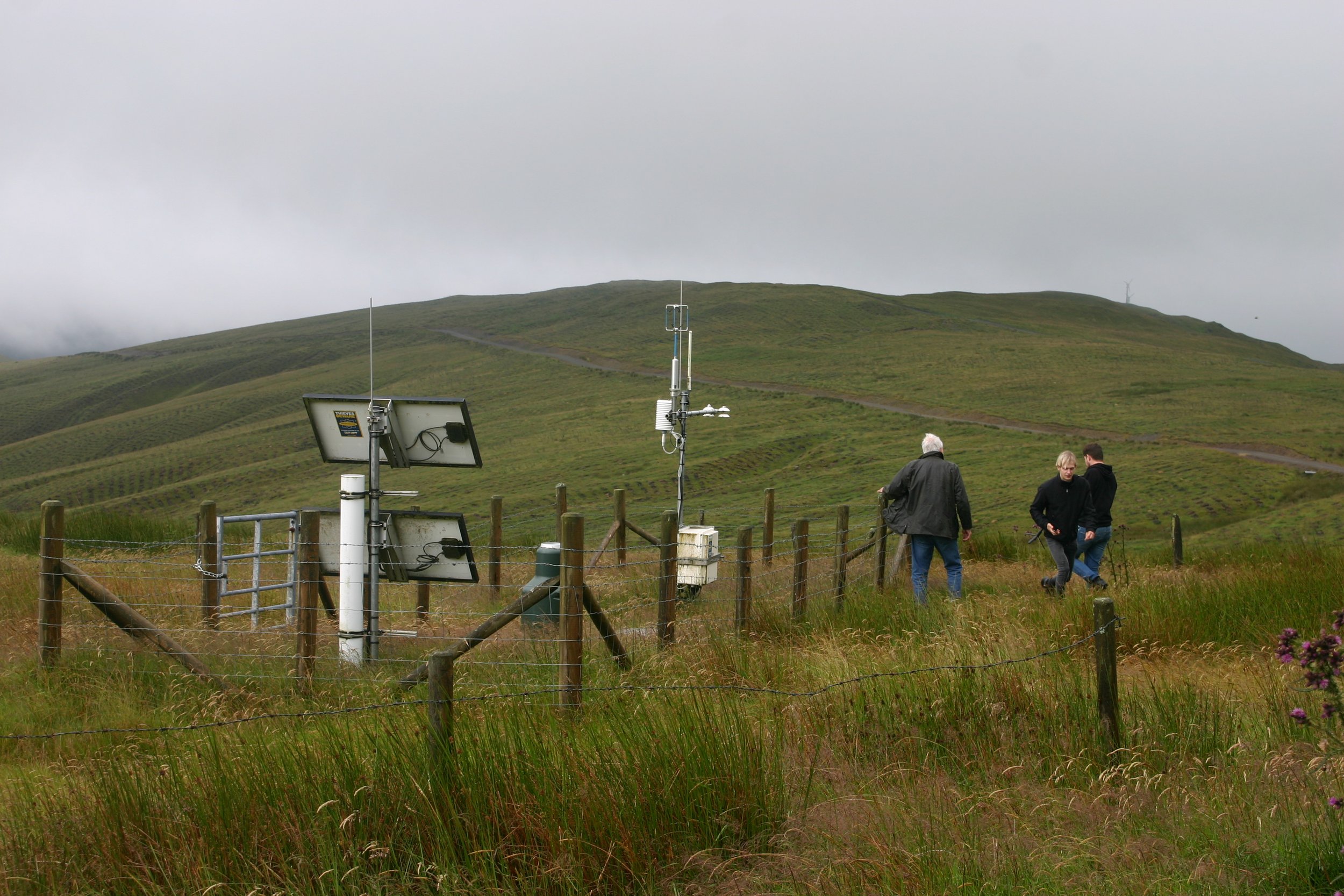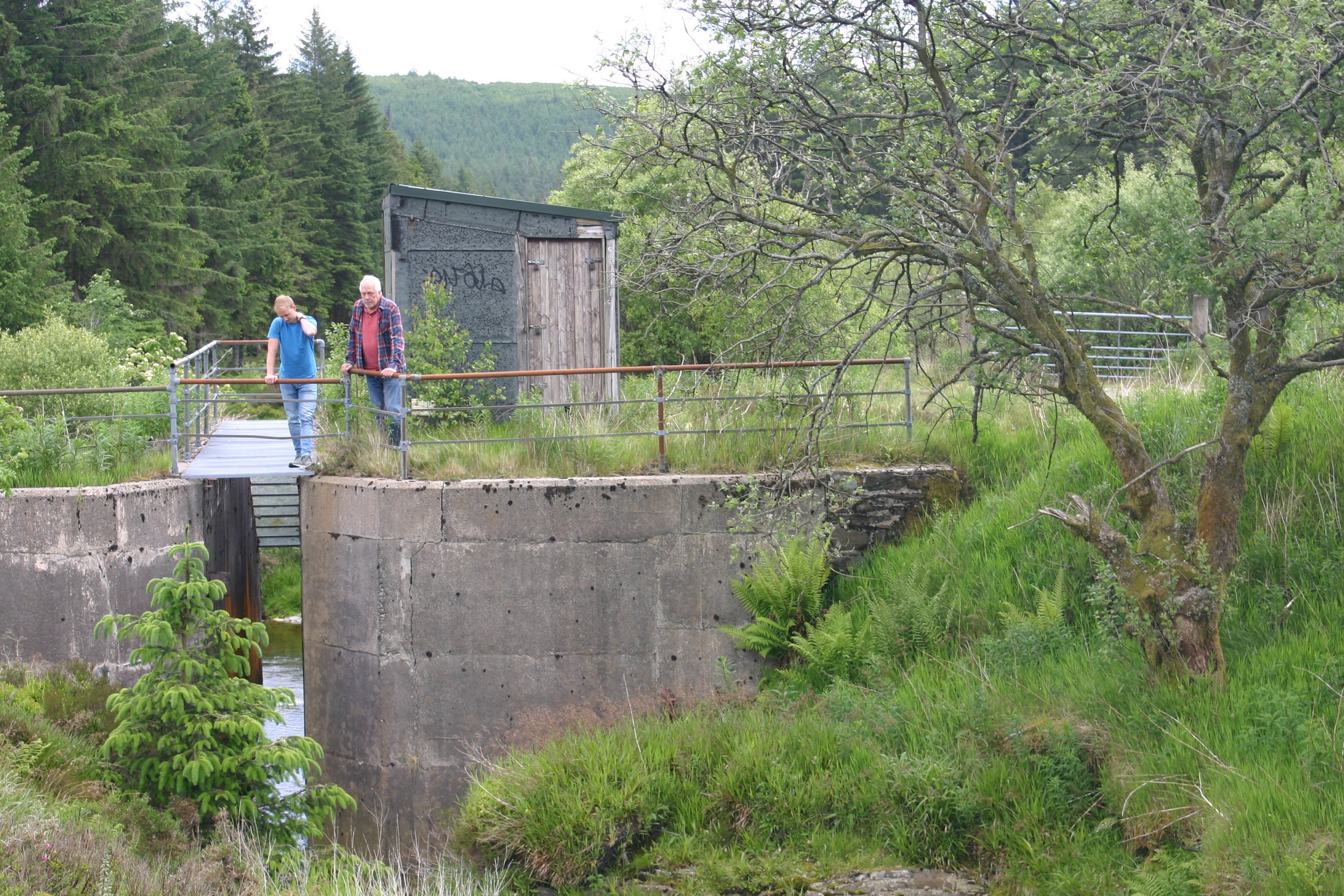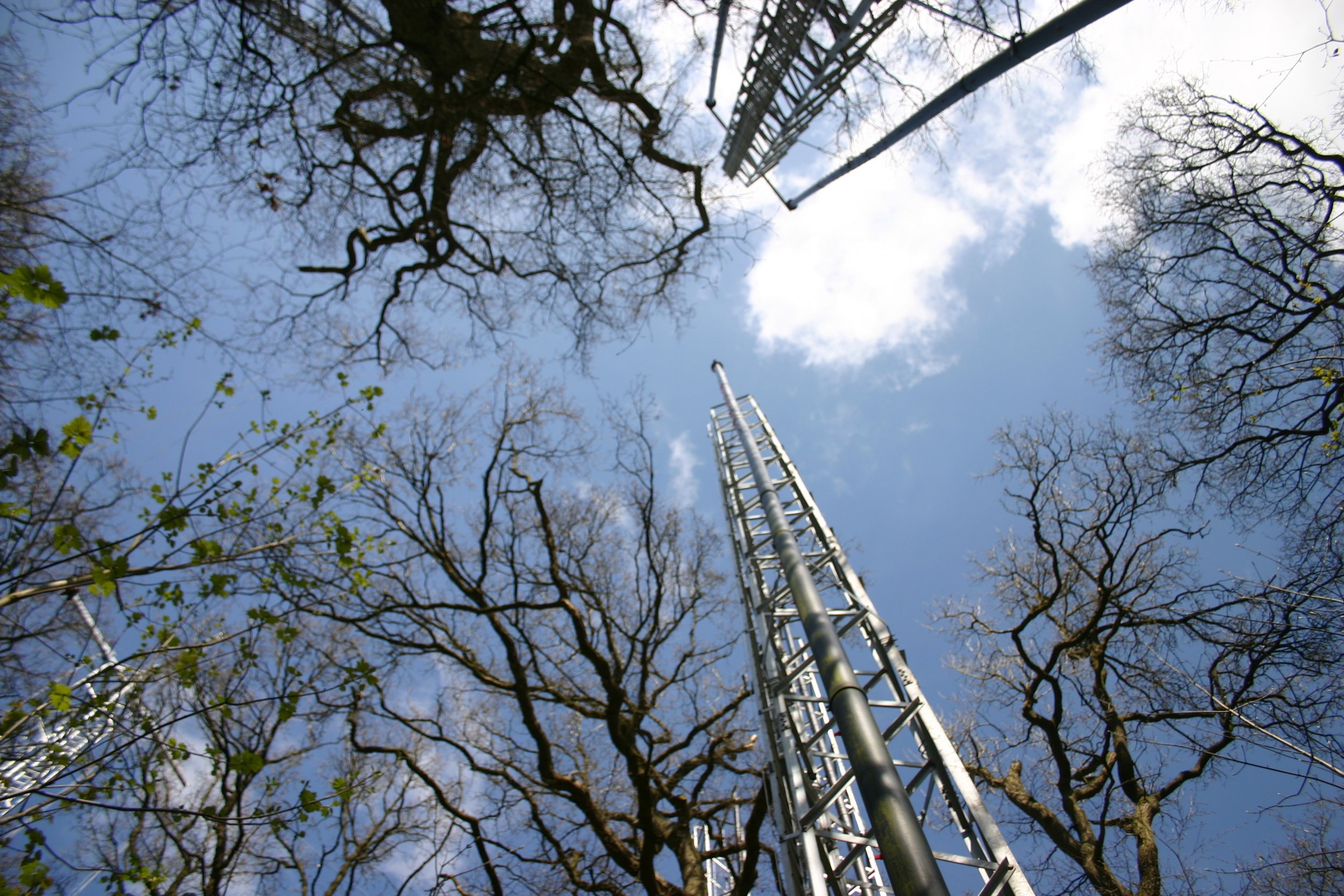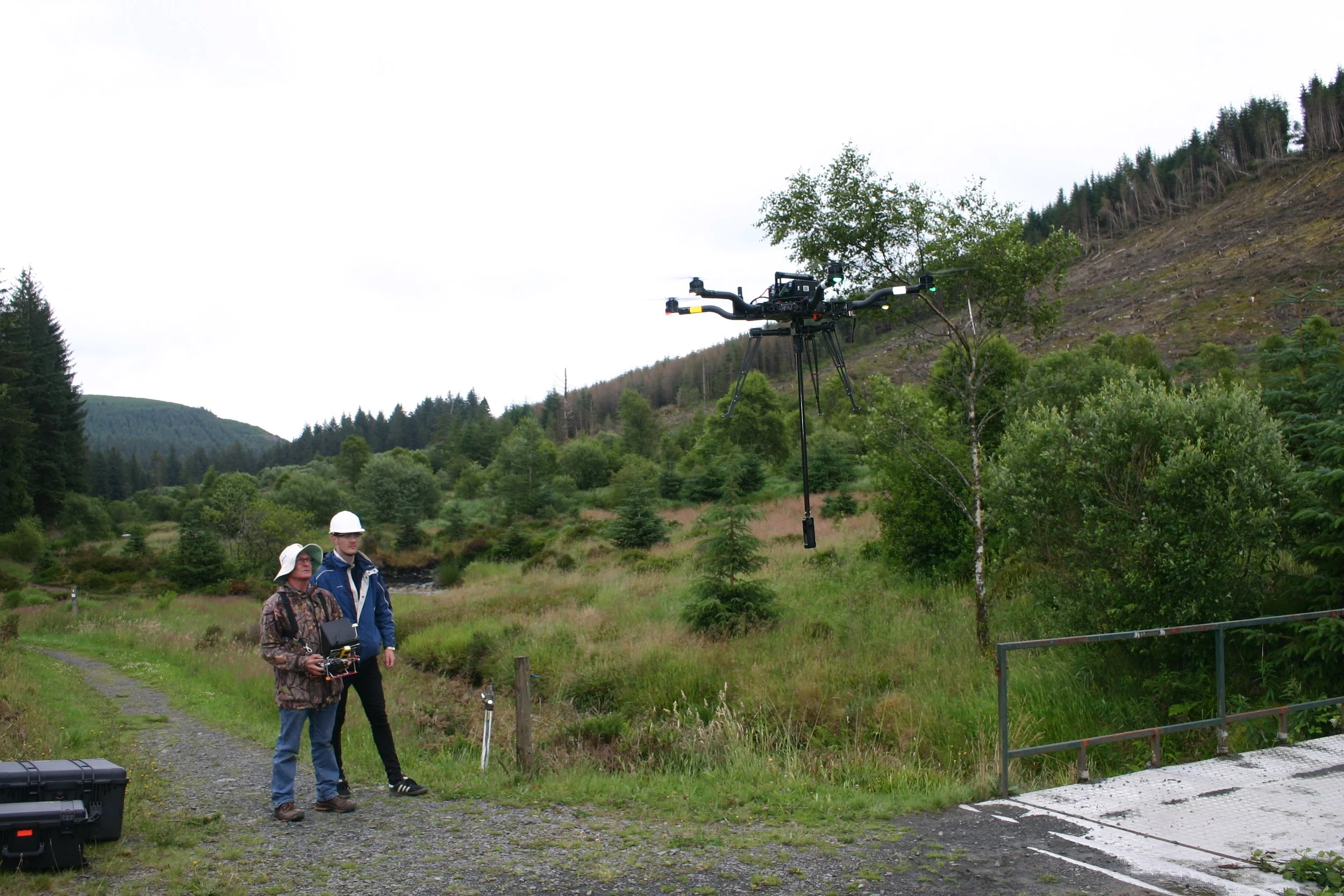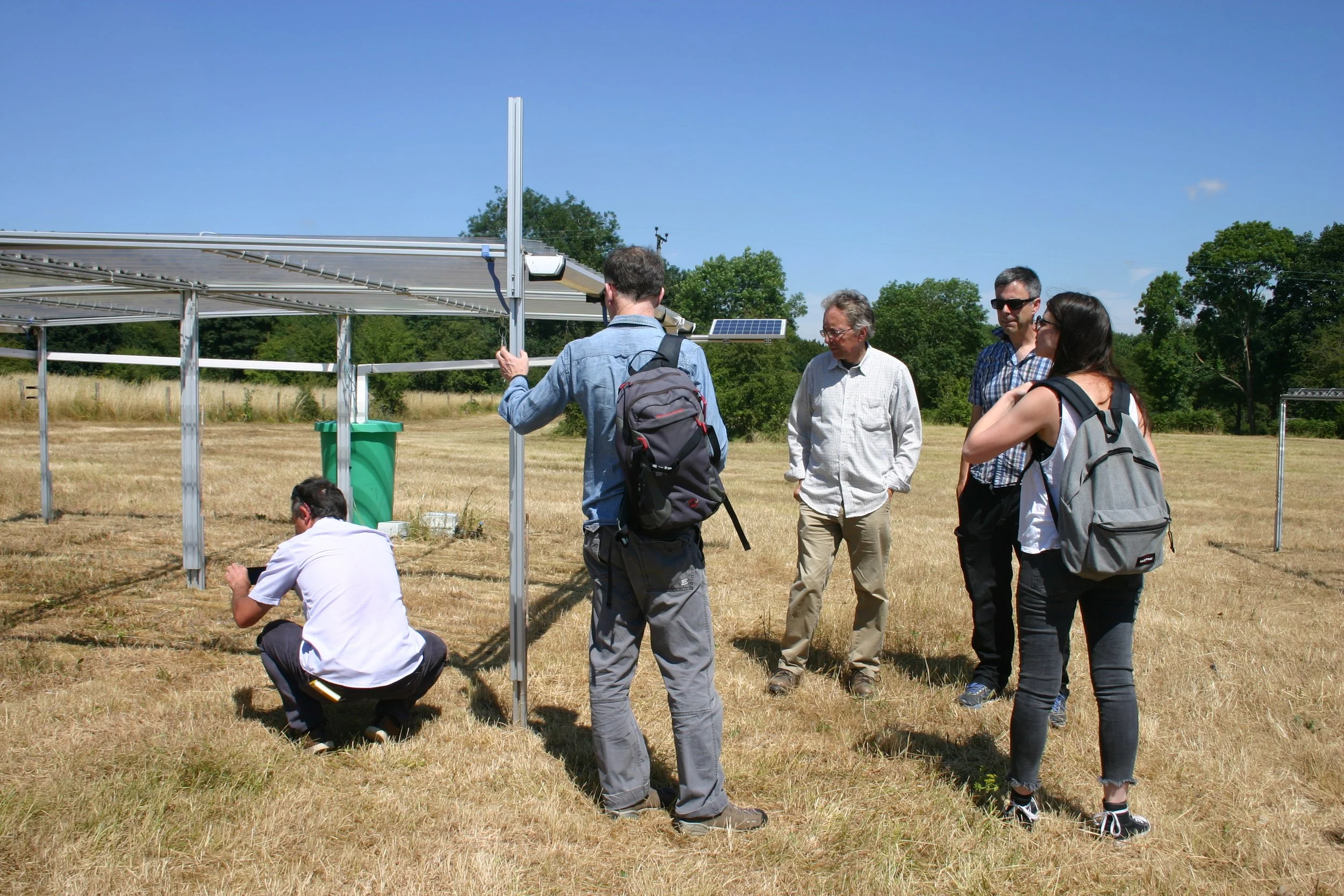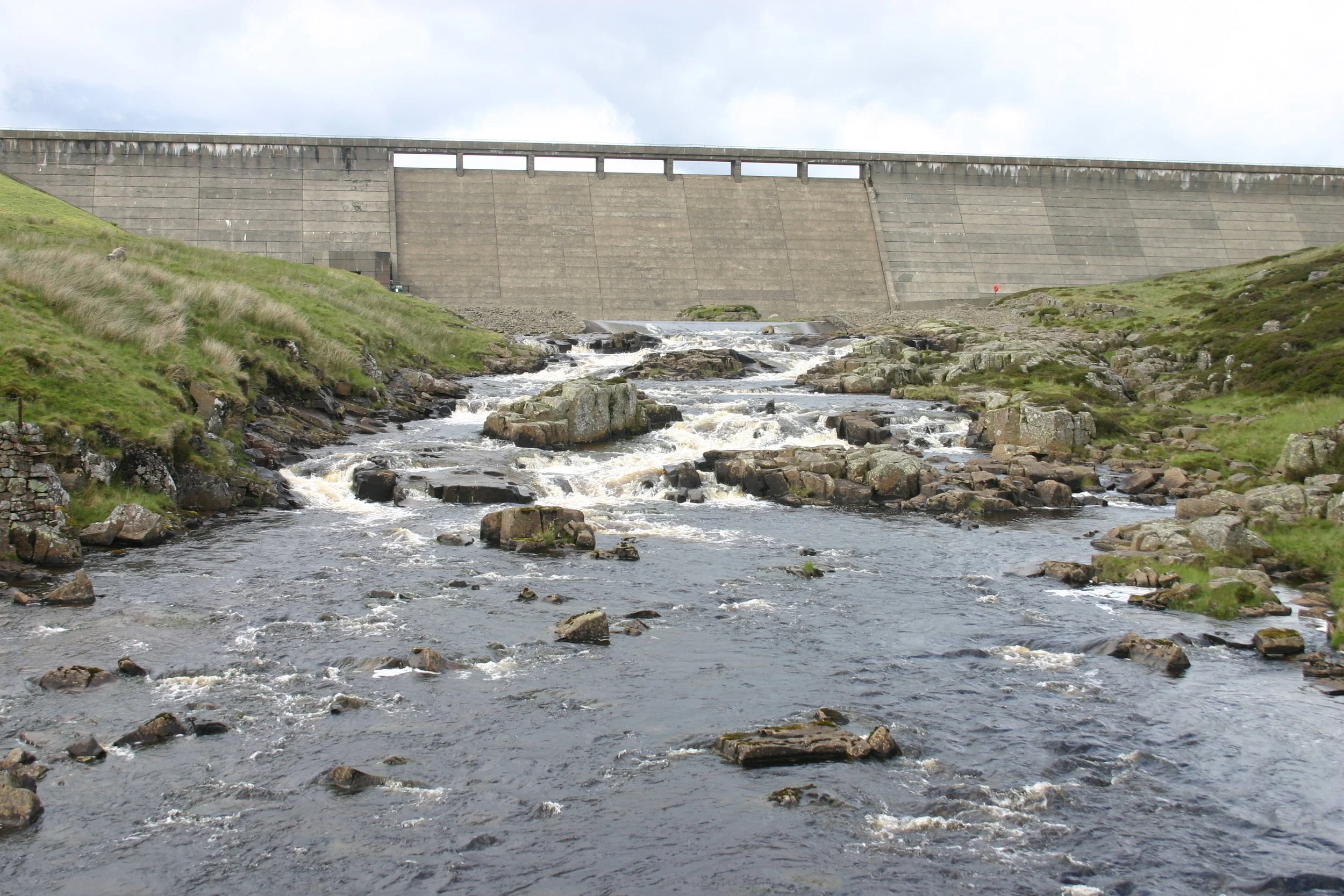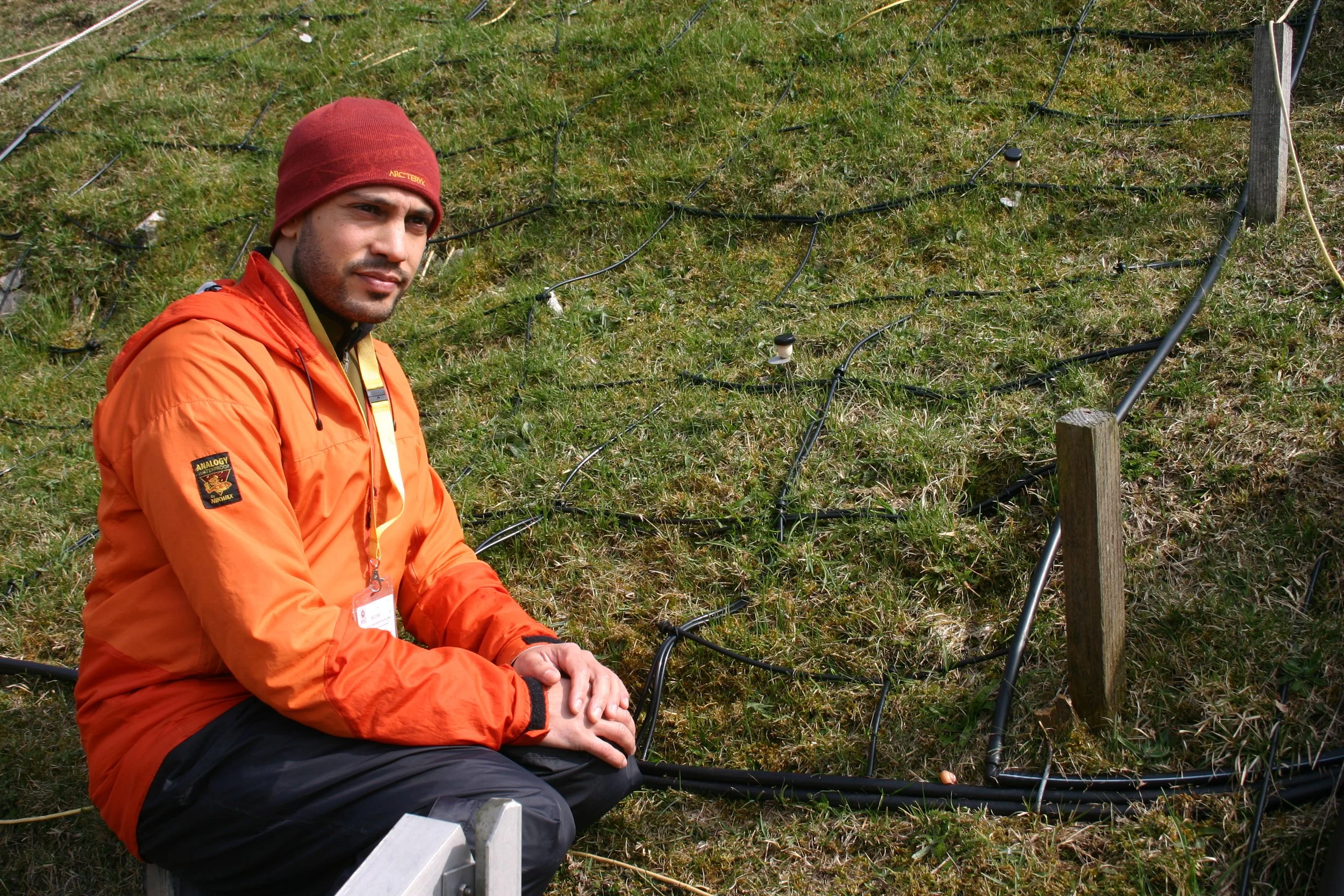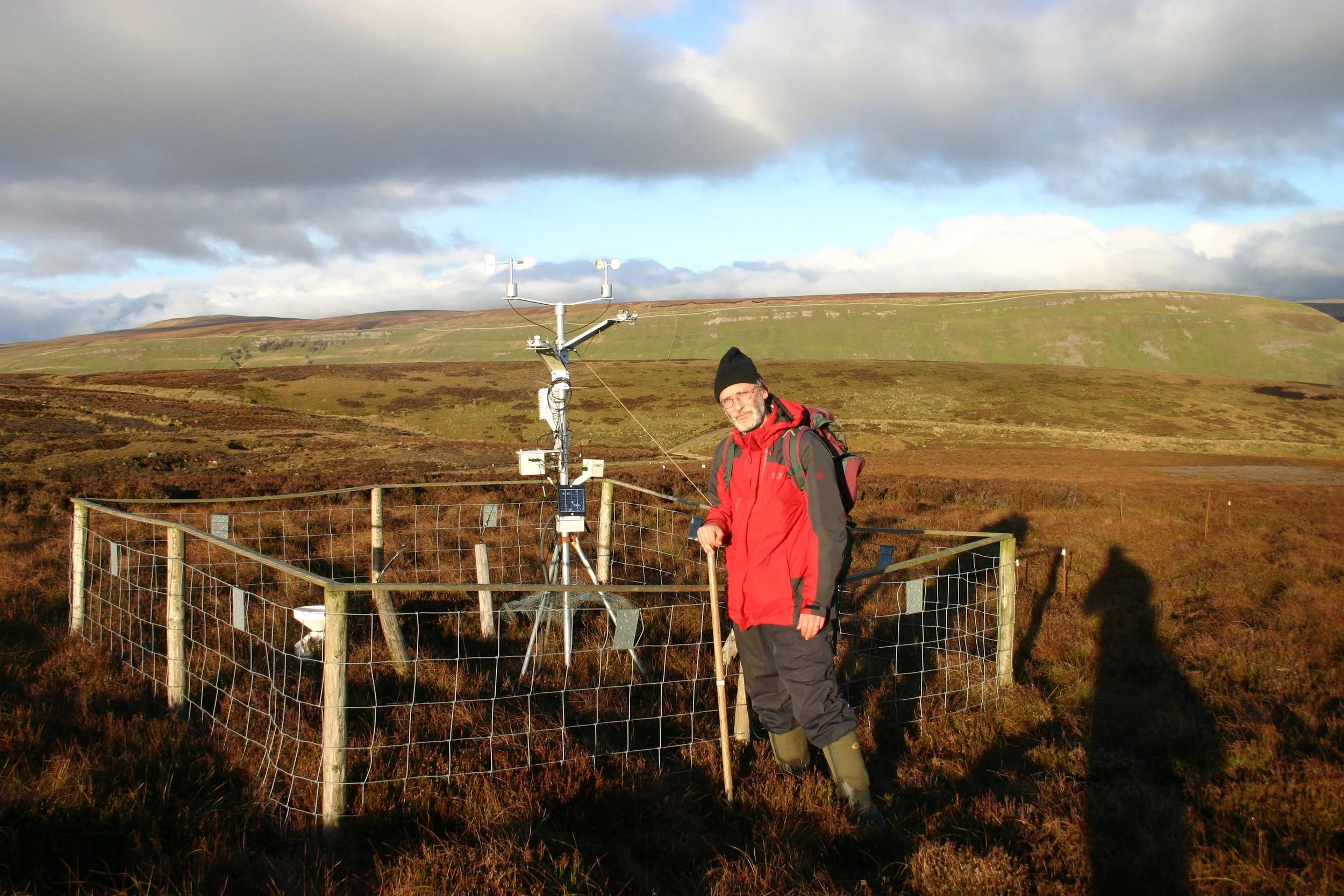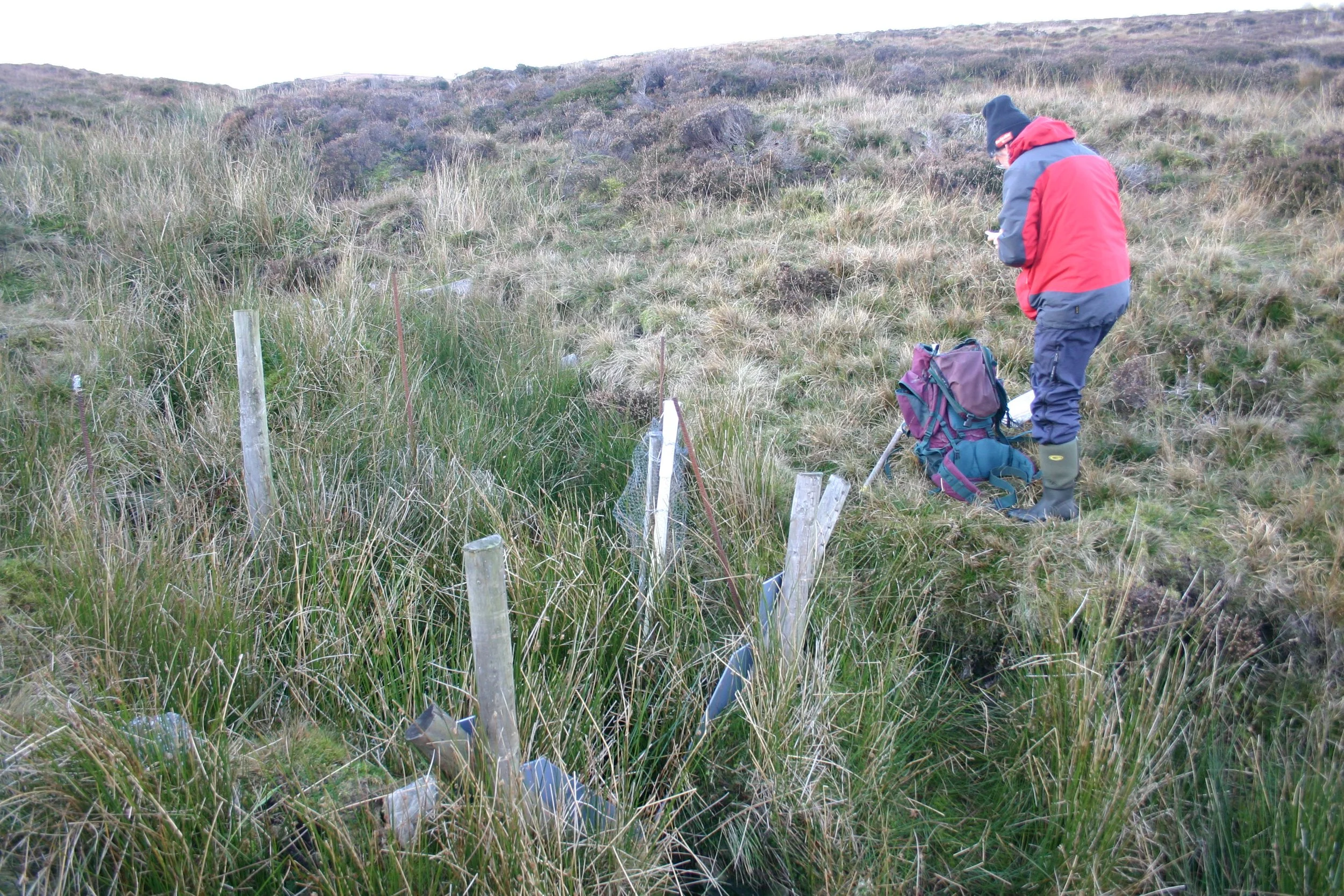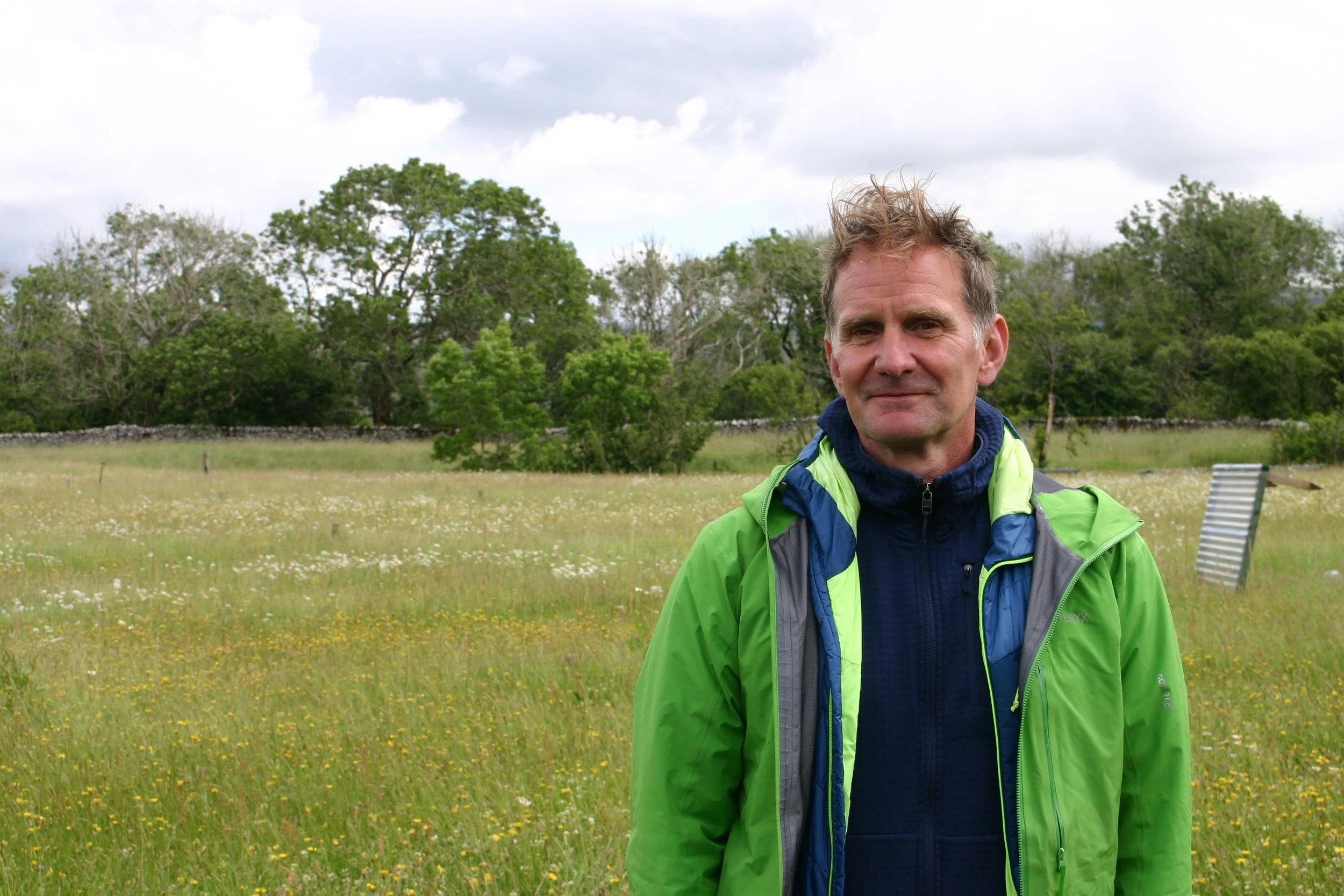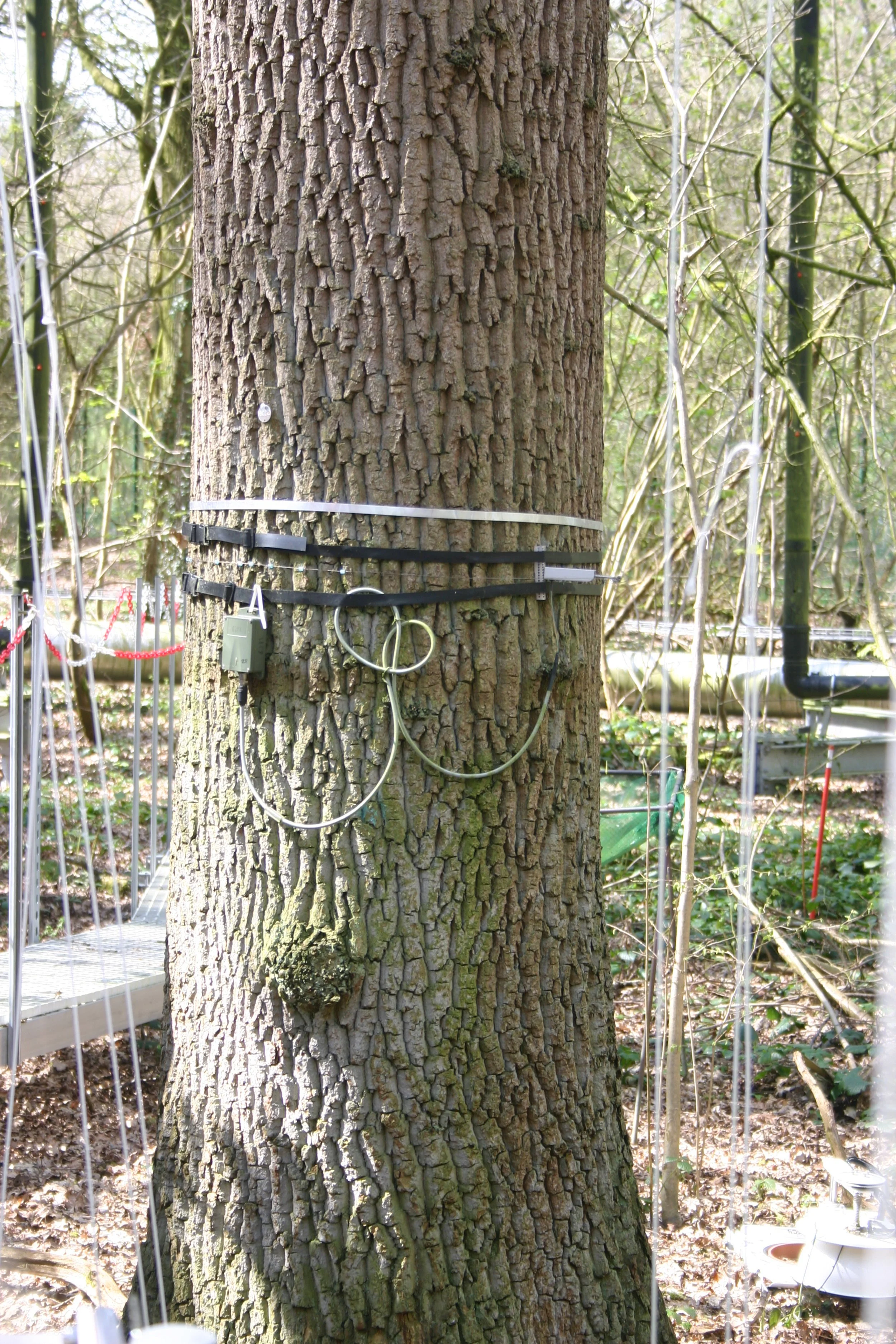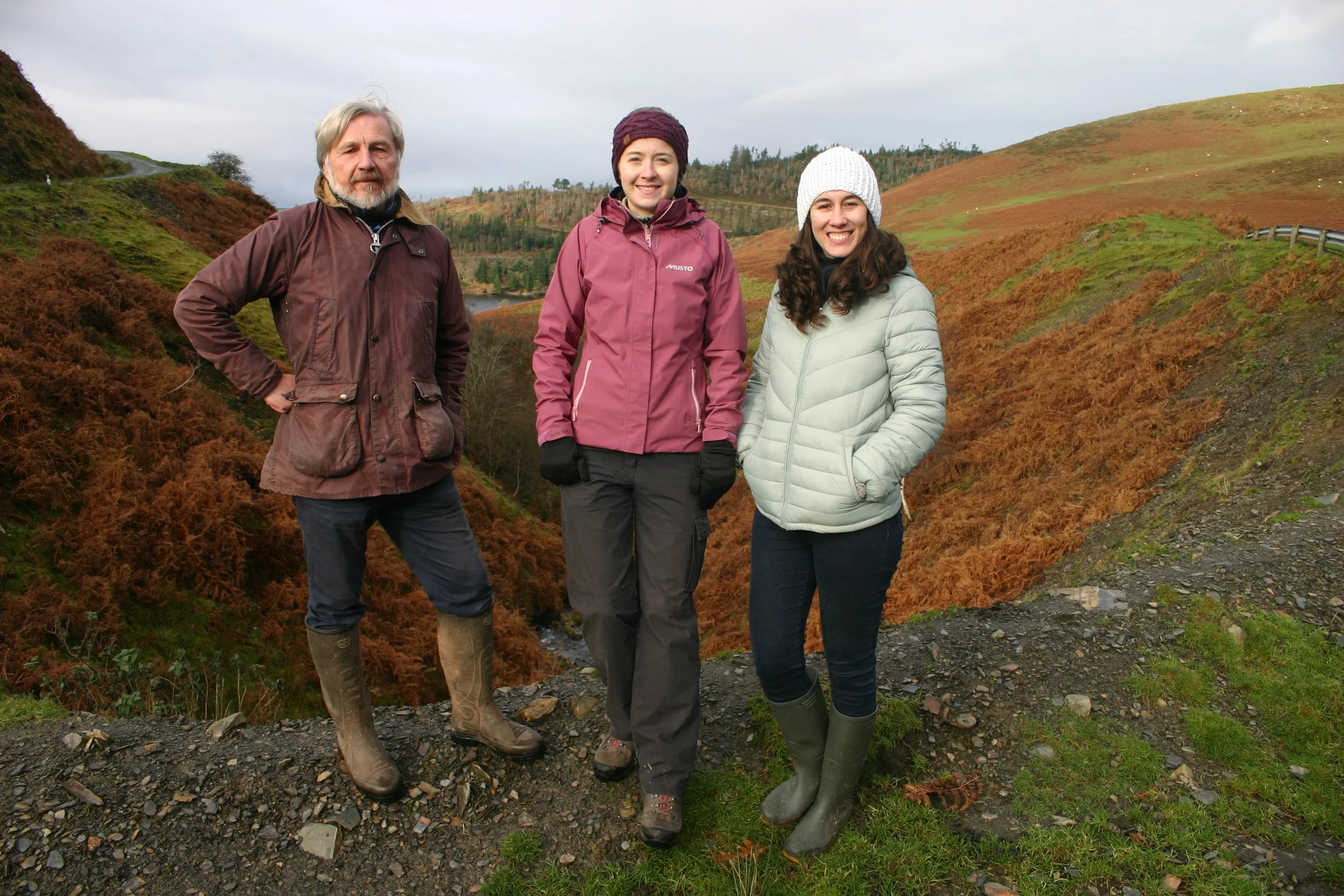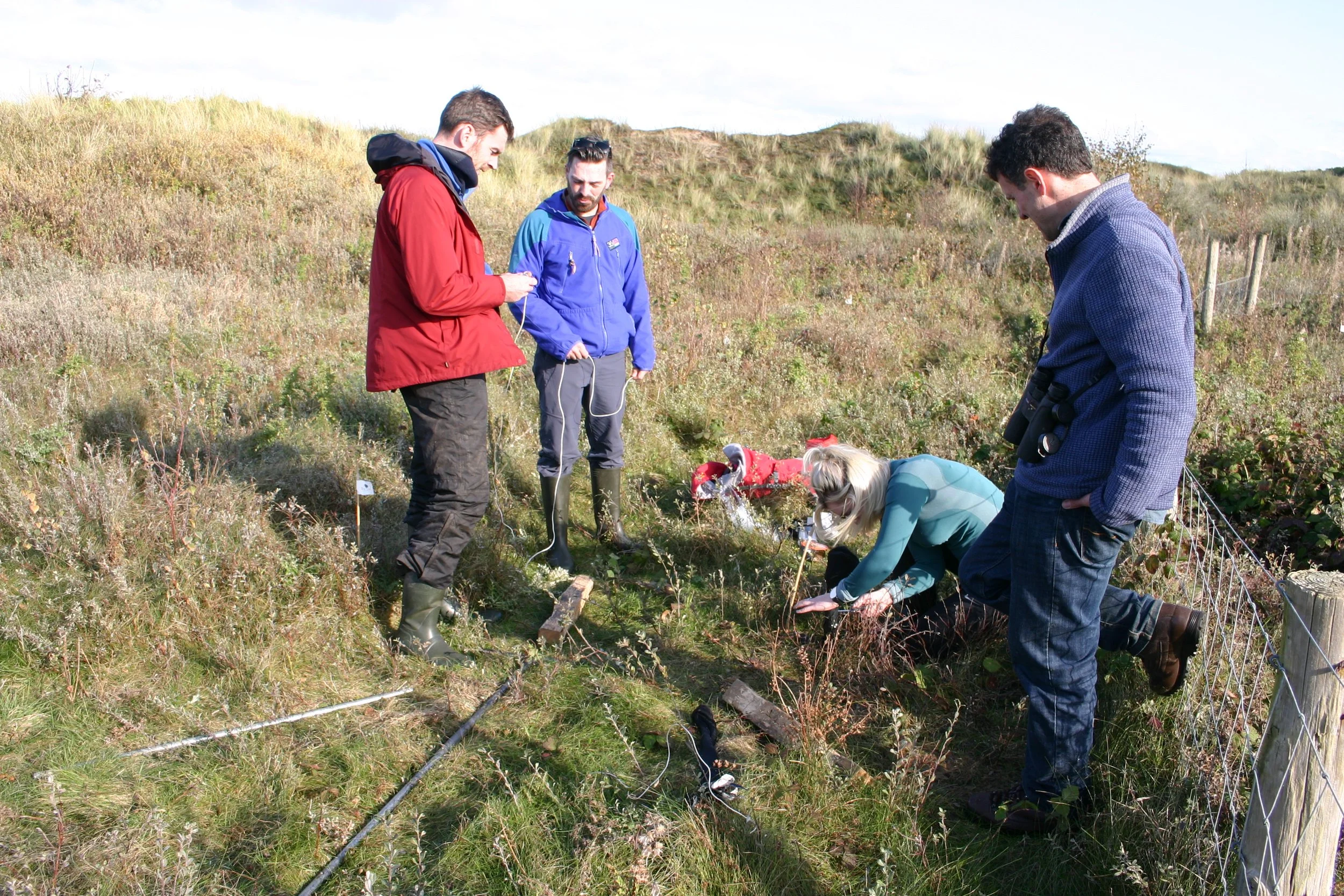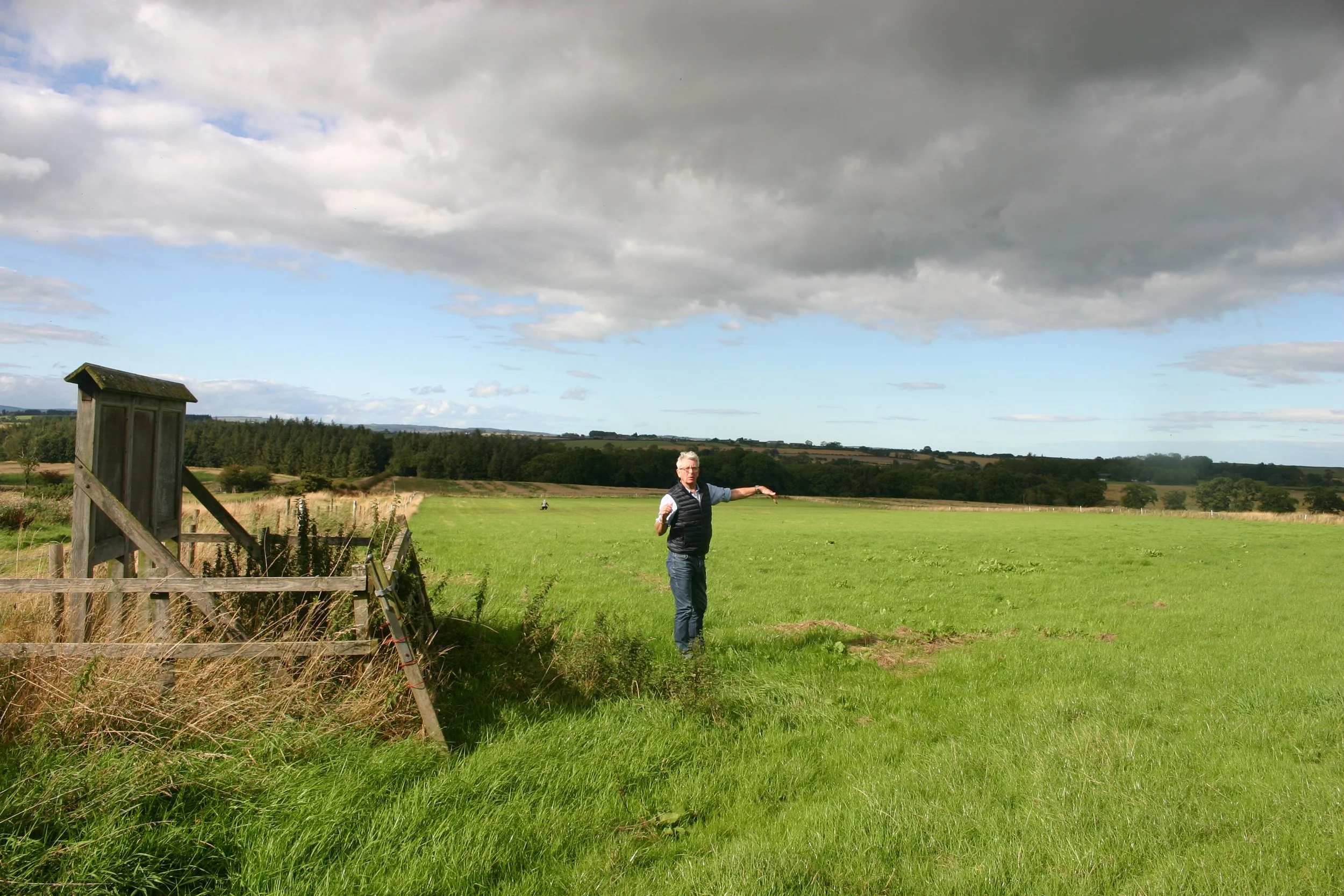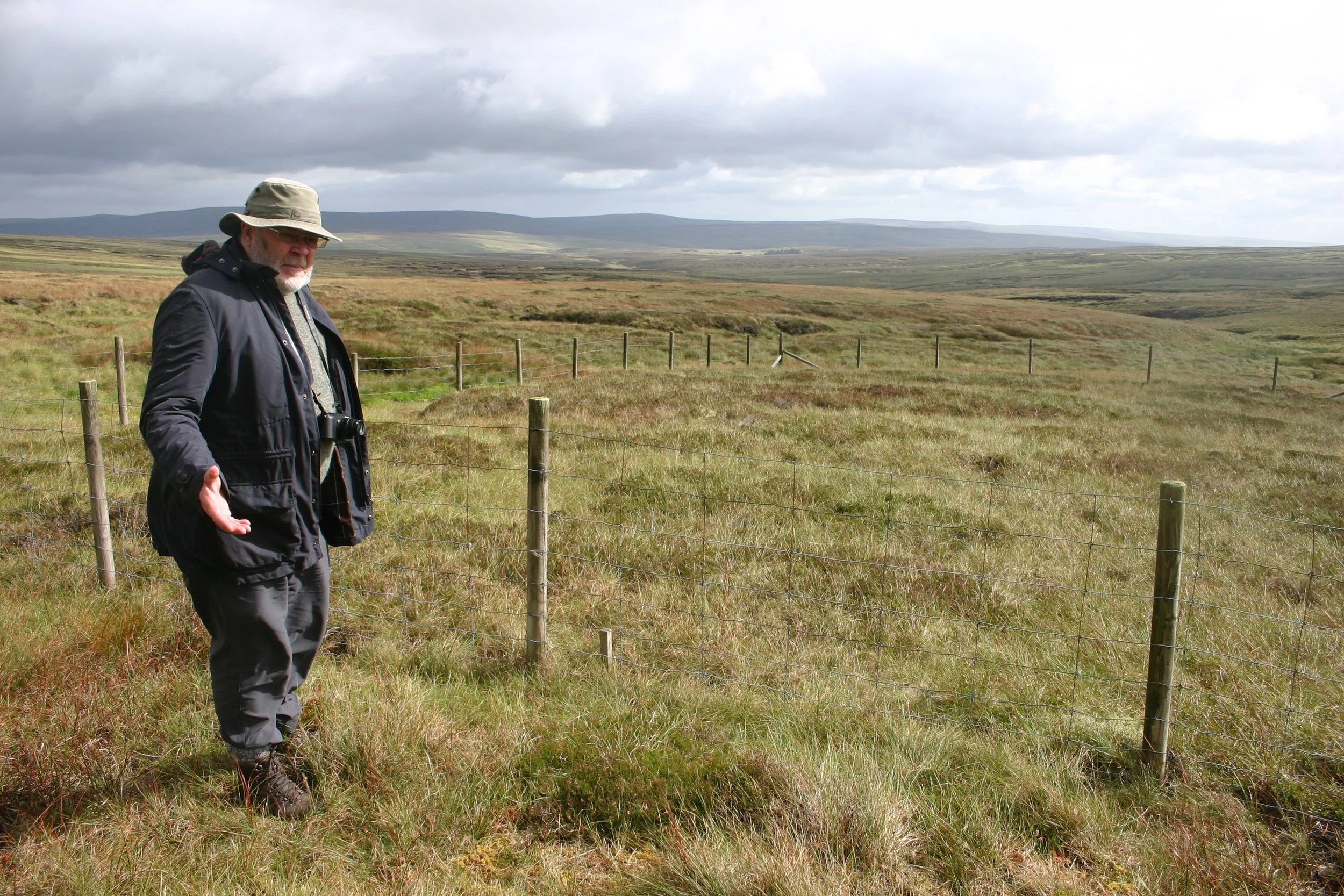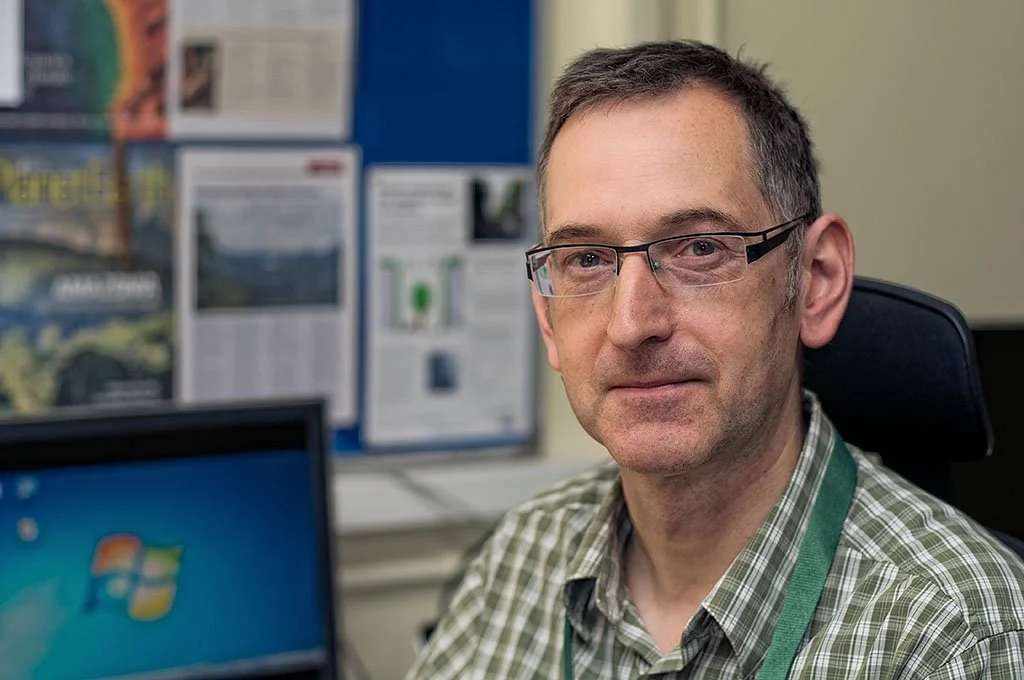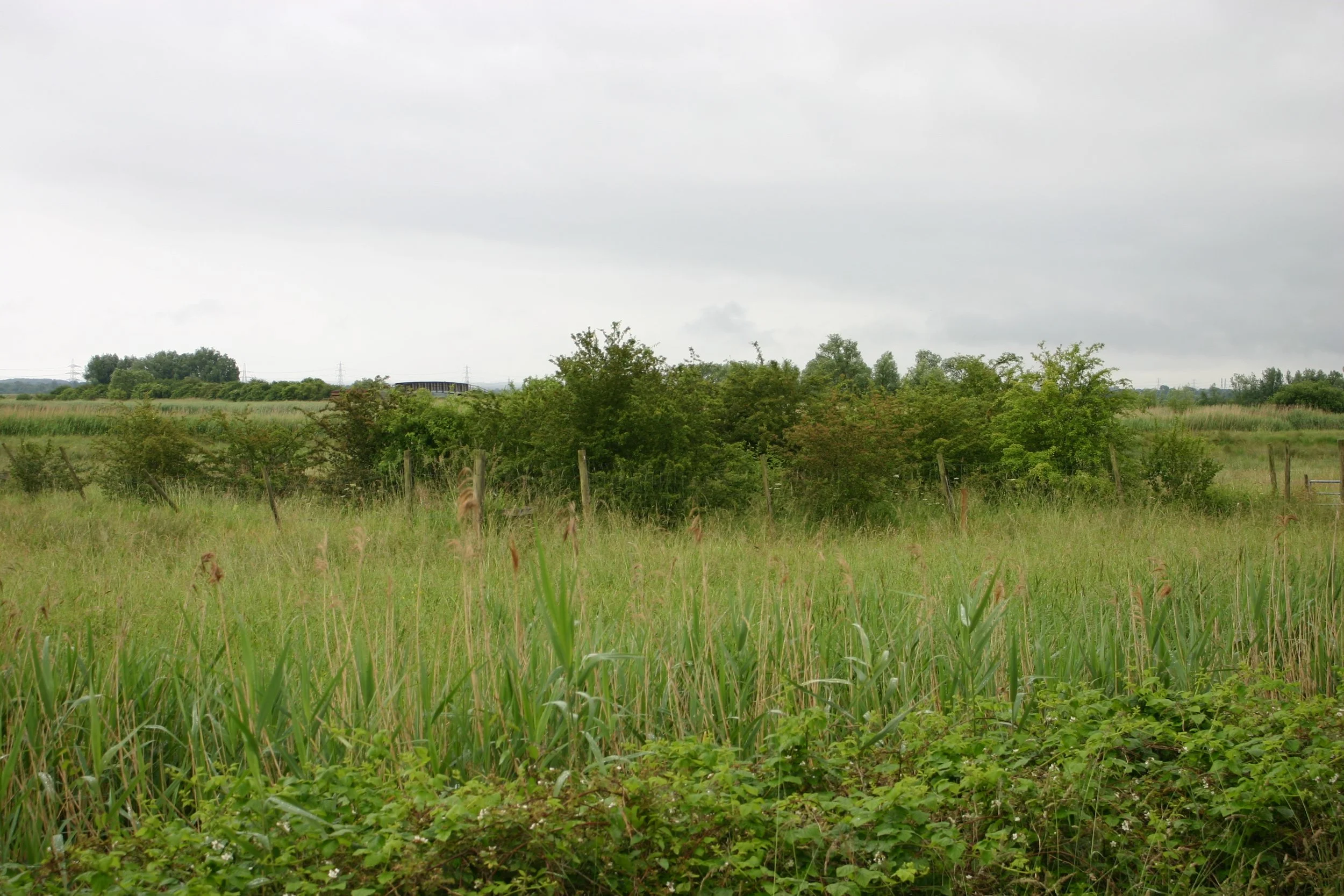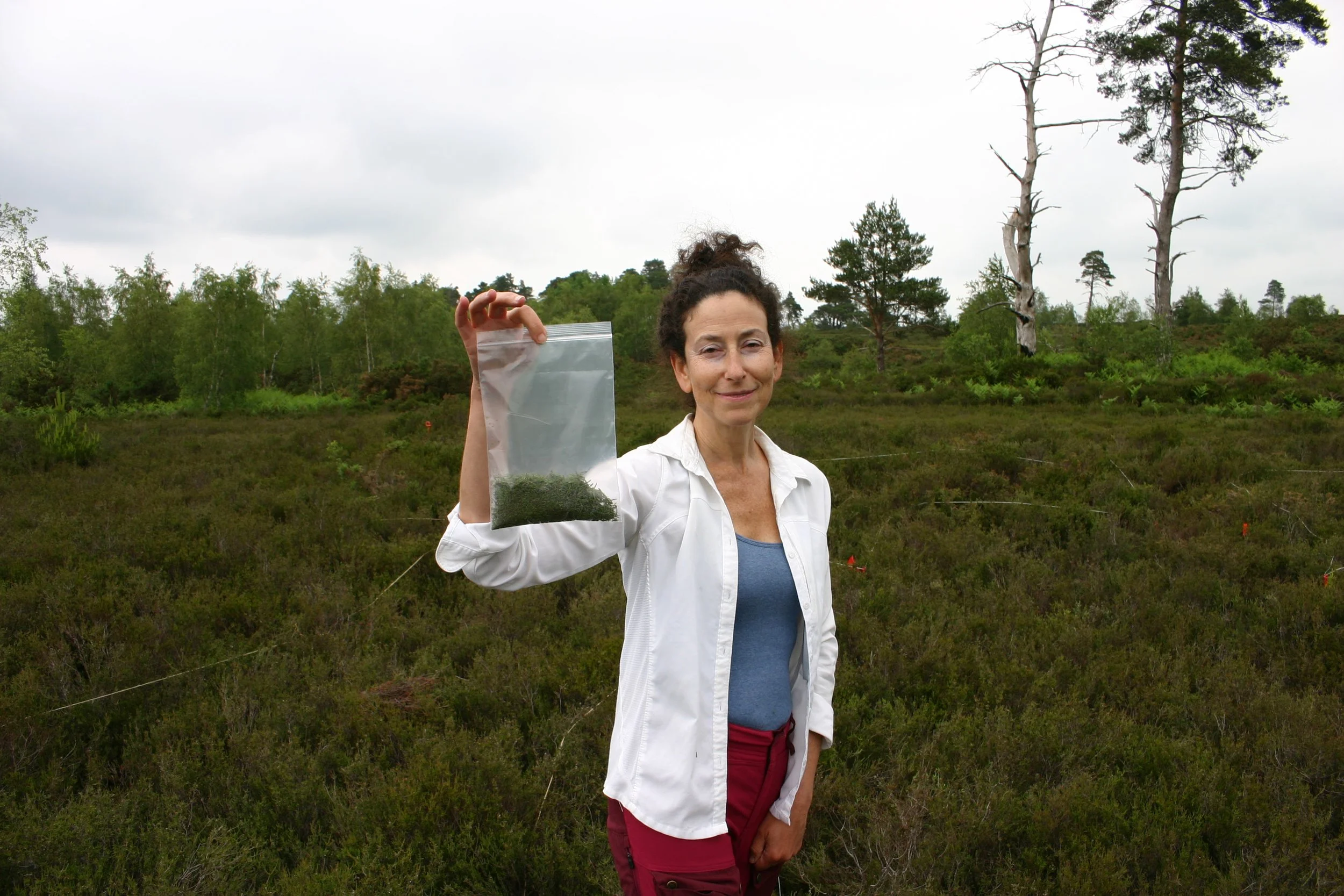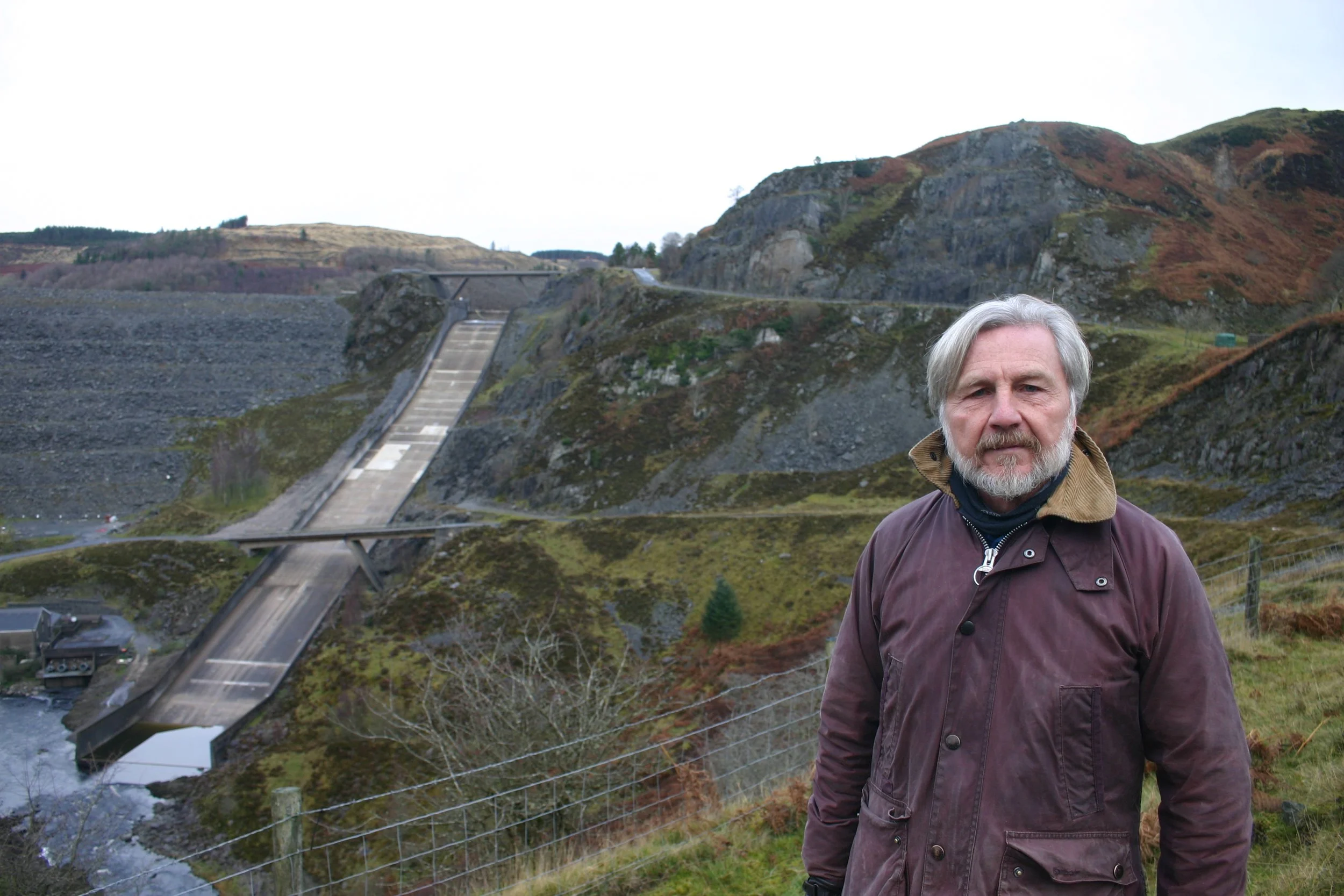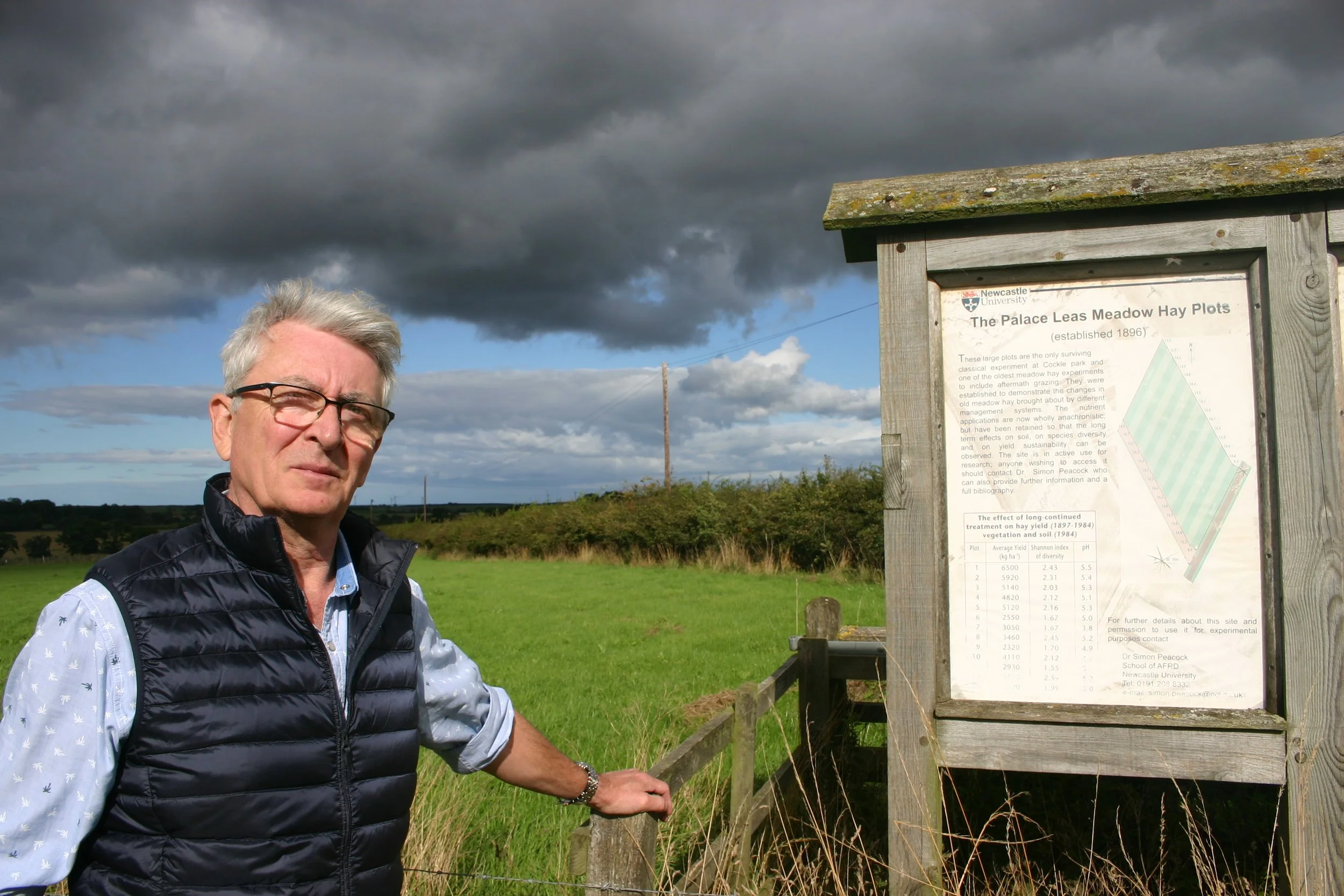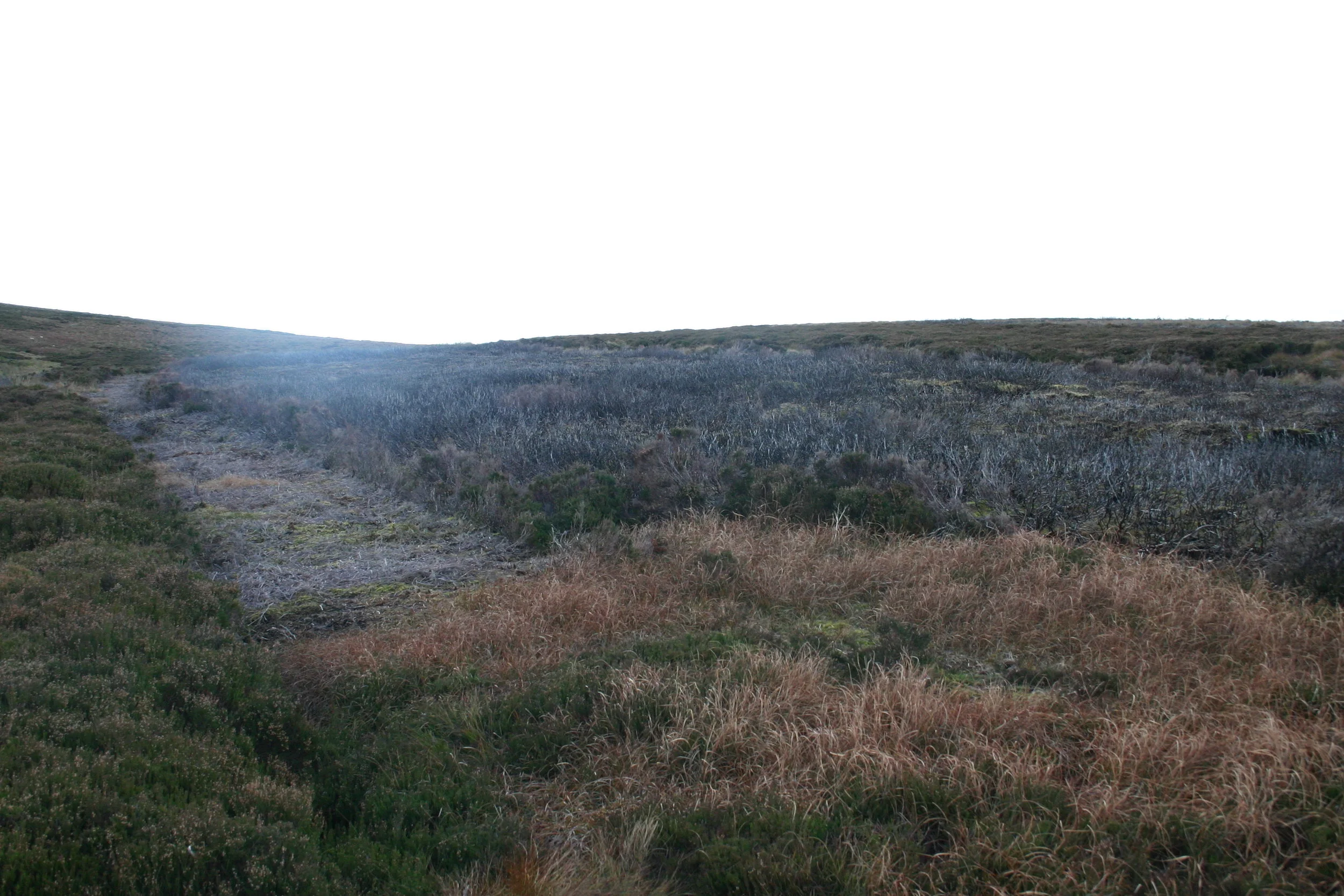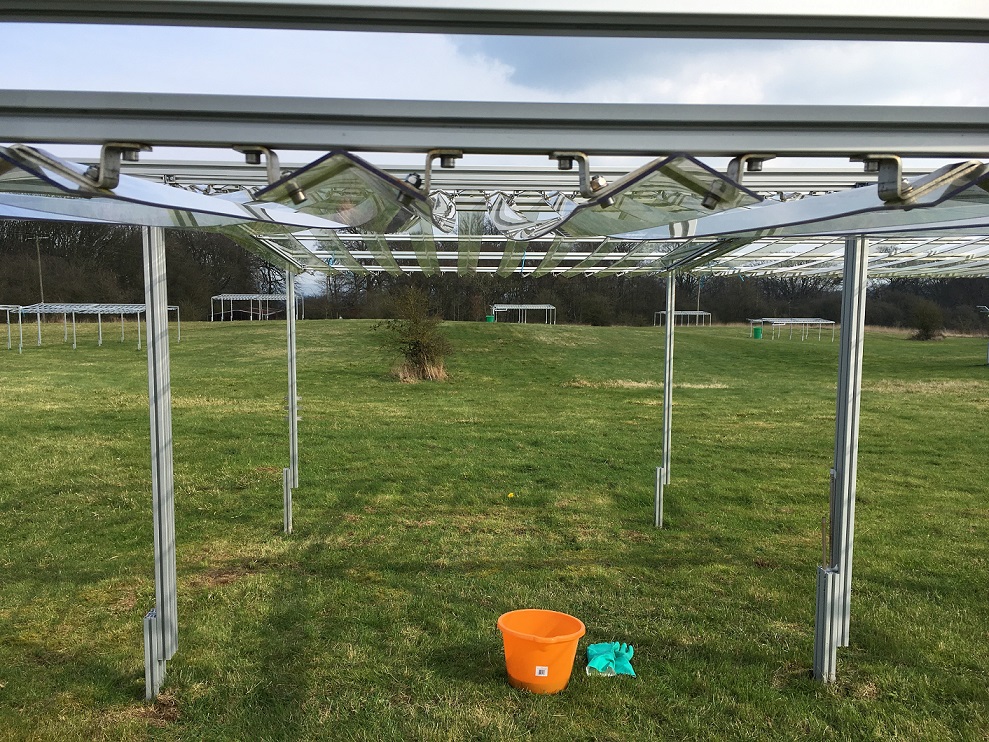Join our LTE User Group and we can promote your research and updates on our website. Find out how you can join here.
MARCH 2025
Latest ECT webinar recording on YouTube: Access a recording of our most recent webinar (21 March) with botanist and ecologist Cicely Marshall from the University of Cambridge. Cicely speaks about her work funded under ECT’s small grants scheme to test out Defra’s biodiversity metric using a number of LTEs and other long-term datasets. Subscribe to our YouTube channel to receive direct notifications of new webinar recordings when they are uploaded.
MARCH 2025
ECT article in The Niche: the spring edition of the BES quarterly magazine The Niche features our article on the Buxton Climate Change Impacts Laboratory (BCCIL). It is guest-authored by the BCCIL team and highlights how the experiment serves as a research platform for all to come and use (by arrangement).
FEBRUARY 2025
New podcast: ECT’s latest podcast is now published via our SoundCloud platform, featuring Andy Hector (University of Oxford) and Clare Lawson (Open University) interviewed at the RainDrop drought/enhanced rainfall experiment at Wytham Woods, now in its ninth year.
FEBRUARY 2025
Newsletter: ECT’s first two-monthly newsletter of the year is now published via our newsletter archive page. It includes news on several recent activities associated with the RainDrop long-term drought/enhanced rainfall experiment at Wytham, together with our first small grant award of 2025, updates on the Thursley Common and Cors Fochno LTEs and links to some of the latest journal publications from more LTEs on our national register.
FEBRUARY 2025
Next ECT webinar: we will be hosting our next two-monthly webinar on Friday 21 March 2025 with speaker Cicely Marshall from the University of Cambridge. Cicely will be speaking on her ECT-funded work using a range of LTEs on our register to test Defra’s biodiversity metric. See our webinars page for further details and registration.
FEBRUARY 2025
New ECT Trustee appointed: a new Trustee has been appointed to ECT’s Board with effect from 1 January 2025. We welcome Ciara Dwyer from Lund University in Sweden to our team. View a short ‘bio’ for Ciara alongside our full Board membership on our ‘About’ page. We also express our gratitude to Trustee Chas Holt for his dedicated service, who stepped down in July last year.
FEBRUARY 2025
New Small Grant award: ECT has awarded its first small grant of the new calendar year to Andrew Hacket-Pain at the University of Liverpool, working in collaboration with John Healey and colleagues at Bangor University. The award is for consumables and travel costs for this year’s transect monitoring fieldwork at the Lady Park Wood long-term experiment in Gloucestershire. This award has been co-funded by our grants scheme partner charity Ramble Worldwide Outdoor Trust.
FEBRUARY 2025
New publication: a new paper from the 23-year-long Glen Finglas upland grazing experiment in northwest Scotland has just been published in the Journal of Avian Biology titled: ‘Assessing the impacts of livestock grazing on upland bird breeding territories using drone surveys’.
FEBRUARY 2025
New blog post: one of ECT’s founding trustees, Jonathan Silvertown, writes about the ‘pre-history’ to the RainDrop experiment which even pre-dated the formation of ECT as a charity. Read it here.
FEBRUARY 2025
Latest ECT webinar recording on YouTube: Access a recording of our most recent webinar (31 January) with plant ecologist Sara Middleton from the University of Oxford. Sara speaks about the first eight years of results emerging from the RainDrop long-term drought and enhanced rainfall experiment located at Wytham Woods in Oxfordshire. Subscribe to our YouTube channel to receive direct notifications of new webinar recordings when they are uploaded.
JANUARY 2025
New LTE interpretation board at Thursley Common NNR: ECT joined forces with Natural England, the JNCC and Royal Botanic Gardens Kew to help prepare, design and install a brand new interpretation board for the long-term pollution deposition and recovery experiment (now called APRI) at Thursley Common in Surrey. This reinvigorated LTE with a new team builds on the work of Sally Power who started the original experiment at the site in 1989.
JANUARY 2025
New publication: a new paper from the 169-year-long Park Grass experiment has just been published in the journal npj Biodiversity titled: ‘Trade-off between pollinator-wildflower diversity & grassland yields’. A linked online article has also appeared in The Guardian.
DECEMBER 2024
Upcoming ECT webinar: on Friday 31 January, ECT will be hosting its next two-monthly webinar with speaker Sara Middleton from the University of Oxford. Sara will be speaking on “plant life stories” from the first 8 years of the RainDrop rainfall/drought experiment in Oxfordshire. See our webinars page for further details and registration.
DECEMBER 2024
Newsletter: ECT’s latest two-monthly newsletter for December is published via our newsletter archive page. It includes news on the launch of our latest virtual reality (VR) tour of an LTE - the North Wyke Farm Platform in Devon - together with the publication of our new Strategic Plan, our final small grant awards of 2024, the addition of a new LTE to our national register (Loughgall agroforestry experiment in Northern Ireland) and an update on the BIFoR-FACE climate change experiment in Staffordshire.
DECEMBER 2024
ECT at BES2024 Annual Meeting: the charity was again delighted to be exhibiting at the BES2024 Annual Meeting in Liverpool a couple of weeks ago. We showcased our latest (fourth) long-term experiment rendered in virtual reality (VR) - the North Wyke Farm Platform in Devon. Around 120 delegates tried on our VR headsets in a packed exhibition hall.
DECEMBER 2024
ECT article on Ainsdale Dunes LTE: an article relating the proceedings at our celebration event to mark the 50th anniversary of the Ainsdale Dune Slacks long-term grazing experiment on 3 October has been published in the latest issue of the Sand Dune & Shingle Network newsletter.
DECEMBER 2024
ECT article in The Niche: the winter edition of the BES quarterly magazine The Niche features our short article on the importance and benefits of making long-term experiments (LTEs) available as research platforms for the wider ecological community to use. It is guest-authored by ECT trustee Ken Thompson.
DECEMBER 2024
Latest ECT webinar recording on YouTube: Access a recording of our most recent webinar (22 November) with plant ecologist Robin Pakeman from the James Hutton Institute in Scotland. Robin speaks about the 22-year-long Glen Finglas grazing and biodiversity experiment located just northwest of Stirling on land owned by the Woodland Trust. Subscribe to our YouTube channel to receive direct notifications of new webinar recordings when they are uploaded.
NOVEMBER 2024
ECT at BES2024 Annual Meeting: our charity will again have an exhibition stand at the upcoming annual meeting of the British Ecological Society (BES), 10-13 December in Liverpool. Do stop by at Stand T1 to meet us and try out our latest new VR headset tour of the North Wyke Farm Platform long-term experiment in Devon.
NOVEMBER 2024
New Small Grant award: ECT has awarded its final small grant of the current calendar year to PhD student Fanni Tanka at Loughborough University. The award is a contribution to consumables and travel costs for PhD research into soil methane fluxes under grazer exclusion conditions at the Ainsdale Dune Slacks long-term experiment in West Lancashire.
NOVEMBER 2024
New Small Grant award: ECT has awarded a maintenance grant to Rob Graham at Scotland’s Rural College (SRUC) as a contribution towards the costs of upgrading sheep fencing around the plots at the SRUC Tulloch rotation and grazing agroecological experiment in Aberdeenshire. Our Small Grants Scheme remains closed to new applications for the remainder of 2024.
NOVEMBER 2024
New ECT Strategic Plan published: ECT’s new 3-year Strategic Plan covering the period 2024-2026 is now published on the strategy page of our website and available for downloading. Fold-out printed copies will be available next month from ECT’s exhibition stand at the BES2024 Annual Meeting in Liverpool.
OCTOBER 2024
Loughgall agroforestry LTE added to ECT’s register: The Loughgall long-term agroforestry experiment in County Armagh, Northern Ireland has joined ECT’s national network of currently active LTEs. Running since 1989 and now under the care of Rodrigo Olave from NI’s Agrifood & Biosciences Institute (AFBI), this agroforestry experiment is studying how tree density affects livestock, pasture production and ecosystem services delivery. Look out for a new webpage for this LTE and view our ‘Sites’ page for information on all the LTEs on ECT’s register.
OCTOBER 2024
Upcoming ECT webinar: on Friday 22 November, ECT will be hosting its next two-monthly webinar with speaker Robin Pakeman from the James Hutton Institute. Robin will be presenting the latest results from the Glen Finglas long-term grazing experiment in Scotland, now running for 22 years. See our webinars page for further details and registration.
OCTOBER 2024
New Small Grant award: ECT has awarded a small grant to Elena Arrigoni at the Royal Botanic Gardens, Kew for equipment and consumables costs associated with maintaining treatments at the Thursley Common air pollution deposition long-term experiment in Surrey. This award has been co-funded with our partner charity Ramble Worldwide Outdoor Trust. Our Small Grants Scheme remains closed to new applications for the remainder of 2024.
OCTOBER 2024
New Small Grant award: ECT has awarded a maintenance grant to Alexander Armstrong and Sami Ullah at the University of Birmingham as a contribution to the costs of repairing essential soil gas-flux monitoring equipment at the 7-year-long BIFoR-FACE climate change experiment in Norbury, Staffordshire. This award has been co-funded with our partner charity Ramble Worldwide Outdoor Trust. Our Small Grants Scheme remains closed to new applications for the remainder of 2024.
OCTOBER 2024
New ECT docushort film on LTEs: our new film on long-term experiments and the charity’s work is now launched on our YouTube channel. The film is 6½ minutes long and features one of our founding trustees Jonathan Silvertown as narrator, telling the story of why LTEs are important and how ECT supports them.
OCTOBER 2024
ECT at NewScientist Live in London: ECT will be exhibiting for the first time at this year’s NewScientist Live event being held at the ExCel Centre in London on 12-14 October. Our stand will be I35, near to the ‘Our Planet’ stage, from where we will be making available to visitors our VR headset tours of LTEs in England, Scotland and Wales. View our exhibitor profile for the event.
SEPTEMBER 2024
Celebrating 50 years of Ainsdale Dune Slacks LTE: ECT will be marking 50 years of continuous research at the Ainsdale Dunes long-term grazing experiment in West Lancashire on 3 October. Hosted by our co-organisers Natural England and in close association with Loughborough and Lund universities, an invitation-only event for 50 guests will be held at the Ainsdale Dunes NNR featuring speakers and a guided tour of the Sally Edmondson Plots.
SEPTEMBER 2024
Annual Report & Accounts 2023 published: ECT has published its 2023 report and accounts which are now available for viewing on our ‘Reports’ page.
SEPTEMBER 2024
ECT article in The Niche: the autumn edition of the BES quarterly magazine The Niche features our short article on the outcomes from the Resilient Landscapes for People, Nature & Climate symposium held at the University of Birmingham on 24/25 June.
SEPTEMBER 2024
Filming at LTEs: ECT has completed two days of filming during the first week of September at four of the LTEs on our national register - Park Grass, BCCIL, BIFoR-FACE and Wicken Fen Vision. The footage will be used to prepare a new corporate film about LTEs and our charitable work.
AUGUST 2024
New publication: a new paper arising from the first 6 years of research at the RainDrop experiment has been published in the Journal of Ecology titled ‘Differential responses of community-level functional traits to mid- and late-season experimental drought in a temperate grassland’.
AUGUST 2024
Newsletter: ECT’s latest two-monthly newsletter for August is published via our newsletter archive page. It includes news on filming for our latest virtual reality (VR) tour of an LTE, together with an important update on ECT’s small grants scheme and news from the Glen Finglas, SRUC Tulloch and Moor House Hard Hill experiments on our national register.
JULY 2024
Filming for new ECT virtual reality experience: ECT has just completed filming at the North Wyke Farm Platform (NWFP) long-term sustainability experiment in Devon. The 360-degree film footage will be used to prepare our next immersive VR tour of a long-term experiment which will be available in our headsets at the BES Annual Meeting in Liverpool on 10-13 December.
JULY 2024
New blog post: read our latest blog post from Cicely Marshall (University of Cambridge) following her ECT-funded work (via our Small Grants Scheme) using several LTEs on our national register to evaluate Defra’s statutory Biodiversity Metric 3.0. Cicely’s results have been published in the Journal of Applied Ecology.
JULY 2024
ECT Small Grants Scheme temporarily closed: due to unprecedented demand for our Small Grants Scheme in the first half of 2024, our budget for grant awards to LTEs is now fully committed this year. Our grants scheme is therefore closed temporarily to any new applications for the remainder of 2024 and will re-open on 1 January 2025.
JULY 2024
Resilient Landscapes symposium summary: following our joint symposium held on 24/25 June in partnership with BES and six other NGO partners, the BES have published a very useful summary report of the keynote presentations via their LinkedIn channel. The symposium was titled Resilient Landscapes for People, Nature and Climate and attracted 170 delegates.
JUNE 2024
Newsletter: ECT’s latest two-monthly newsletter for June is published via our newsletter archive page. It includes news on the installation of our latest LTE interpretation board at the Lena Ward Plots at Aston Rowant National Nature Reserve (NNR) in Oxfordshire, together with updates on partnerships and grants, and news from the BIFoR-FACE experiment on our national register.
JUNE 2024
New LTE interpretation board at Aston Rowant NNR: ECT and Natural England joined forces to prepare, design and install a brand new interpretation board for the Lena Ward Plots long-term ecological succession experiment at Aston Rowant Nature Reserve in Oxfordshire. This LTE has now been running for 55 years!
JUNE 2024
New blog post: animal cell biologist Patrizia Ferretti from University College London attended our guided visit to the 168-year-long Park Grass experiment in Hertfordshire on 11 May. She provides an interesting account and perspective on the visit in this blog post for us. The visit was held in partnership with the Royal Society of Biology’s London Branch.
JUNE 2024
New webpage published: a brand-new webpage for the long-term Wicken Fen Vision grazing experiment in Cambridgeshire is now available on our website. Follow the link above for our ‘new look’ to our LTE site pages, containing a mine of information for multiple audiences. The Wicken Fen experiment has now been running for 17 years under the guidance of Francine Hughes.
JUNE 2024
ECT article in The Niche: the summer edition of the BES quarterly magazine The Niche features our short article on the landscape-scale transformation dialogue that we have been engaged in with BES and other NGO partners over the past year. It references the approaching Resilient Landscapes symposium coming up in Birmingham on 24/25 June, for which the delegate registration deadline is Friday 7 June at 5pm.
JUNE 2024
Latest ECT webinar recording on YouTube: Access a recording of our most recent webinar (23 May) with Julie Ewald from the Game & Wildlife Conservation Trust (GWCT) speaking about the 56-year-long Sussex Study looking at the ecological impacts of farming changes in arable ecosystems. Subscribe to our YouTube channel to receive direct notifications of new webinar recordings, posted every two months.
MAY 2024
New Small Grant award: ECT has awarded a maintenance grant to Nina Overtoom and Sylvia Toet at the University of York as a contribution to the costs of repairing and replacing essential research equipment at the 14-year-long Cors Fochno climate change experiment near Borth in mid-Wales. This award has been co-funded with our partner charity Ramble Worldwide Outdoor Trust.
MAY 2024
Second ECT/BES landscapes workshop report published: the full report of proceedings at our second workshop held on 25 January in London for the UK’s major landowner stakeholders is now published on the ‘Reports’ page of our website. The next step will be the joint symposium on Resilient Landscapes on 24/25 June in Birmingham. See the news item below for further details.
MAY 2024
BES/ECT landscapes symposium registration deadline approaching: our joint symposium on Resilient Landscapes with BES and other NGO partners is taking place on 24/25 June in Birmingham. The Early Bird delegate registration deadline is 5pm on Friday 24 May, after which registration will remain open until Friday 7 June but at the full delegate rate. See the BES website for further details.
MAY 2024
ECT/RSB visit to Park Grass experiment: ECT teamed up with the Royal Society of Biology’s London Branch to host a very successful visit for 26 guests to the Park Grass experiment at Rothamsted on 11 May. At 168 years and counting, Park Grass remains the world’s longest running outdoor ecological field experiment. Look out for a blog from one of our visitors soon.
APRIL 2024
Newsletter: ECT’s now two-monthly newsletter for April is published via our newsletter archive page. It includes an update on our upcoming joint symposium on Resilient Landscapes with BES and other NGO partners on 24/25 June, together with news from the BIFoR-FACE and Peatland ES-UK LTEs on our national register.
april 2024
New Small Grant award: ECT has awarded a small grant to Andreas Heinemeyer at the University of York for comparative peat coring and sample analysis costs at the 70-year-long Moor House Hard Hill grazing/upland management experiment in upper Teesdale.
APRIL 2024
New strategic partnership: ECT is pleased to announce a new strategic partnership with the charity Ramble Worldwide Outdoor Trust who will be contributing co-funding to our Small Grants Scheme over the next 5 years. Trustees of Ramble Worldwide Outdoor Trust have a passion to conserve, protect and enhance the environment to enable greater access to the outdoors for all, which complements ECT’s network of ecological field experiments located in mostly remote rural locations.
APRIL 2024
New publication: a further new paper has recently been published from the BIFoR-FACE long-term CO₂ elevation experiment in oak woodland in Staffordshire. Authored by Rob MacKenzie and colleagues (University of Birmingham), the paper in the Journal of Forestry Research describes how elevated CO₂ is affecting acorn production. See also our website bibliography for this LTE.
APRIL 2024
Latest ECT webinar recording on YouTube: Access a recording of our most recent webinar (15 March) with Jon Storkey from Rothamsted Research speaking about how the world-famous Park Grass experiment is still delivering new science after 168 years. Subscribe to our YouTube channel to receive direct notifications of new webinar recordings, posted every two months.
APRIL 2024
New Small Grant award: ECT has awarded a maintenance grant to Robin Pakeman at the James Hutton Institute as a contribution to the costs of repairing damaged fencing around the grazing plots at the 22-year-long Glen Finglas upland grazing experiment in west Scotland.
MARCH 2024
Latest ECT webinar recording on YouTube: Access a recording of our previous webinar (24 November) with John Langley-Randall from ADAS speaking about the impacts of mob grazing upon soil health. This follows two recent studies funded by Natural England and Defra. Subscribe to our YouTube channel to receive direct notifications of new webinar recordings, posted every two months.
MARCH 2024
New publication: a new paper has been published in the journal Food & Energy Security from the BIFoR-FACE long-term CO₂ elevation experiment in oak woodland in Staffordshire. Authored by Rob MacKenzie and colleagues (University of Birmingham), the paper describes how the BIFoR-FACE LTE is contributing to better policymaking around tree planting and woodland management. See also our website bibliography for this LTE.
MARCH 2024
ECT article in The Niche: this month’s edition of the BES quarterly magazine The Niche features an article co-authored with George Peterken (Lady Park Wood LTE) on the vulnerability of long-term ecological datasets, serendipity and the need for an ecological archives centre.
FEBRUARY 2024
Resilient Landscapes Symposium June 2024: registration is now open for a major two-day science symposium on Resilient Landscapes for People, Nature & Climate led by the British Ecological Society in partnership with ECT and other key stakeholders. The event takes place in Birmingham on 24-25 June. Book the date!
FEBRUARY 2024
Newsletter: ECT’s now two-monthly newsletter for February is published via our newsletter archive page. It includes further news of our work with BES on landscape-scale studies, together with news on vital renewal work at the Nash’s Field experiment and the latest new journal publications from LTEs at Wardlow Hay Cop and Rothamsted.
FEBRUARY 2024
Upcoming ECT webinar: on Friday 15 March, ECT will be hosting its next two-monthly webinar with speaker Jonathan Storkey from Rothamsted Research. Jon will be presenting on 168 years of research at the Park Grass experiment in Hertfordshire and how it continues to deliver new and relevant science. See our webinars page for further details and registration.
FEBRUARY 2024
ECT/RSB visit to Park Grass experiment: registration is now open for a tour of the Park Grass long-term experiment in Harpenden, Hertfordshire taking place on Saturday 11 May 2024. Organised by ECT and the London Branch of the Royal Society of Biology (RSB), the half-day tour will include a visit to the famous sample archives at Rothamsted Research. Follow the link above for further details.
JANUARY 2024
ECT/BES second landscapes workshop: in close partnership with the British Ecological Society (BES), the National Trust, WWF-UK, RSPB, Natural England, UKCEH and the Woodland Trust, ECT hosted a second invitation-only workshop in London on 25 January which again brought together around 30 of the UK’s major landowners with interests in landscape-scale transformation. The main purpose of the workshop was to advance the community-building activity begun at the first workshop, and to establish a vision for the sharing and on-going development of best practice for landscape-scale experiments, living laboratories and monitoring frameworks.
JANUARY 2024
New publication: a new paper has just been published in the journal Global Change Biology from the Wardlow Hay Cop long-term grassland experiment in Derbyshire. Authored by Chris Taylor, Gareth Phoenix and others (University of Sheffield), the publication describes how nutrient inputs interact with rising CO₂ to change the plant community in phosphorus-limited grasslands. See also our website bibliography for this LTE.
DECEMBER 2023
ECT article in The Niche: this month’s edition of the BES quarterly magazine The Niche features an article from Rob Marrs (University of Liverpool) on past and on-going challenges facing long-term ecological experiments, and why they are so important.
DECEMBER 2023
ECT at BES2023 Annual Meeting: come and find us next week in Belfast 12-15 December at Stand No.17 in the exhibition hall at the British Ecological Society’s 2023 Annual Meeting. We will be showcasing our latest VR experience for the Plynlimon Research Catchments experiment installed on our brand new Oculus Quest 2 headsets. The virtual hot-air-balloon flight is not to be missed!
NOVEMBER 2023
New Small Grant award: ECT has awarded a maintenance grant to Catalina Estrada at Imperial College Silwood Park as a contribution to the costs of repairing the fencing around the grazing exclosures at the 30-year-long Nash’s Field grazing and fertilisation experiment at Silwood Park, Berkshire.
NOVEMBER 2023
New Small Grant award: ECT has awarded its latest Small Grant to Konstans Wells at Swansea University towards consumables costs for comparing gut microbiome-parasite status and health in grazing animals feeding on different grasslands at the Rowden Plots long-term field experiment in North Wyke, Devon.
NOVEMBER 2023
Upcoming ECT webinar: on Friday 24 November, ECT will be hosting its next two-monthly webinar with speaker John Langley-Randall from ADAS presenting on the impacts of mob grazing on soil health. See our webinars page for further details and registration.
OCTOBER 2023
New webpage published: a brand-new webpage for the long-term Plynlimon Research Catchments experiment in the Cambrian Mountains of mid-Wales is now available on our website. Follow the link above for our ‘new look’ to our LTE site pages, containing a mine of information for multiple audiences. The Plynlimon experiment has now been running for 56 years!
OCTOBER 2023
Latest ECT webinar recording on YouTube: Access a recording of our most recent webinar (15 September) with Alan Radbourne and Jack Cosby (pictured) from the UK Centre for Ecology & Hydrology at Bangor speaking about 56 years of research at the Plynlimon Research Catchments long-term land use experiment in mid-Wales. Subscribe to our YouTube channel to receive direct notifications of new webinar recordings, posted every two months.
SEPTEMBER 2023
Biology Week webinar hosted by ECT: as part of the Royal Society of Biology’s Biology Week programme of events next month, ECT will be hosting an online webinar on the evening of Wednesday 18 October from 6-7pm. The event will introduce the ECT and then focus on some of the long-term ecological field experiments (LTEs) on our national register. See our ‘Webinars & Events’ page for further details and registration in advance.
SEPTEMBER 2023
ECT/BES landscapes workshop report published: the formal report of proceedings at our 21 June landscape-scale transformation workshop with the UK’s major landowners is now published via our ‘Reports’ page. The report details the next steps we will be taking in close partnership with the British Ecological Society (BES).
SEPTEMBER 2023
ECT interviewed by Charity Digital: access a transcript just published this month of an interview with our Communications Officer Danae Dodge. Conducted by the organisation Charity Digital, it explains who we are and how we came to use virtual reality (VR) technology in our science communication work.
SEPTEMBER 2023
ECT article in The Niche: this month’s edition of the BES quarterly magazine The Niche features an article from one of our trustees Bridget Emmett (UKCEH) and our Executive Director Ben Sykes on landscape-scale long-term experiments and the landowners’ workshop that ECT co-hosted with BES on 21 June in London.
SEPTEMBER 2023
Annual Report & Accounts 2022 published: ECT has published its 2022 report and accounts which are now available for viewing on our ‘Reports’ page.
SEPTEMBER 2023
Upcoming ECT webinar: on Friday 15 September, ECT will be hosting its next two-monthly webinar with speakers Alan Radbourne and Jack Cosby (UKCEH Bangor) presenting over 50 years of research at the Plynlimon Research Catchments long-term experiment in mid Wales. See our webinars page for further details and registration.
AUGUST 2023
New Small Grant award: ECT has awarded its latest Small Grant to Sylvia Toet at the University of York towards the costs of sustaining annual vegetation measurements at the Cors Fochno climate change experiment in mid-Wales. Costs include infrastructure maintenance, greenhouse gas measurement training and soil microbial sampling.
AUGUST 2023
New Small Grant award: ECT has awarded its latest Small Grant to Scott Hayward at the University of Birmingham towards the costs of species-level identification of the insect sample archive taken from the BIFoR-FACE climate change experiment in Staffordshire. Samples are being processed for DNA barcoding as part of the UK-wide BIOSCAN project run by the Sanger Institute.
AUGUST 2023
Latest ECT webinar recording on YouTube: Access a recording of our most recent webinar (30 June) with Raj Whitlock from the University of Liverpool speaking about 30 years of research at the Buxton Climate Change Impacts Laboratory (BCCIL) in Derbyshire. Subscribe to our YouTube channel to receive direct notifications of new webinar recordings, posted every two months.
JULY 2023
ECT site visit to SRUC Tulloch experiment: on 13 July, ECT visited the most recent long-term experiment to be added to our national register - the Tulloch agroecological rotational experiment at Scotland’s Rural College (SRUC) in Aberdeenshire, running for 33 years! Look out next month for the podcast interview recorded at the site with Principal Investigator Christine Watson and colleagues, which will be available via ECT’s SoundCloud platform.
JULY 2023
Filming at Plynlimon Research Catchments: in close partnership with UKCEH Bangor and our technology providers Maple Bay Games/Aerialworx drone-filming, ECT spent two days in mid-Wales this month taking 360-degree film footage of the Plynlimon Catchments long-term term land use experiment. This will form the basis of our latest Virtual Reality (VR) headset experience which will ‘debut’ at the BES 2023 Annual Meeting in Belfast 12-15 December. Be sure to try it out!
JULY 2023
ECT at BIFoR Annual Meeting 2023: ECT took its exhibition stand to the BIFoR Annual Meeting in Birmingham on 4-5 July, making available to delegates our latest Virtual Reality (VR) headset experience for the Whim Bog long-term experiment in Scotland. You can read more about the wider conference on the BIFoR website.
JUNE 2023
Newsletter: ECT’s quarterly newsletter for June is now published via our newsletter archive page. It includes updates from the BIFoR-FACE, Bamford Edge, Sourhope and Peatland-ES-UK experiments, together with news of our work with BES on landscape-scale studies (see earlier news item below) and a reminder about recruitment to the ECT’s Volunteer Pool.
JUNE 2023
New Small Grant award: ECT has awarded its latest Small Grant to Roberto Salguero-Gómez at the University of Oxford towards the costs of consumables for tracking plant community resilience using phenocams and artificial intelligence (AI) at the RainDrop long-term drought experiment at Wytham Woods.
JUNE 2023
ECT/BES landscapes workshop: in close partnership with the British Ecological Society (BES), ECT hosted an invitation-only workshop in London on 21 June which brought together almost 40 of the UK’s major landowners with interests in landscape-scale transformation. The main purpose of the workshop was to connect stakeholders and begin discussions around best practice for the design and implementation of landscape-scale experiments, living laboratories and wholescapes.
JUNE 2023
ECT article in The Niche: this month’s edition of the BES quarterly magazine The Niche features an article from one of our trustees Jeff Duckett (Queen Mary University of London) on how the role of long-term experiments in defending against threats to the environment is needed now more than ever.
JUNE 2023
New publication: a new paper has just been published in the Journal of Environmental Management from the Bamford Edge long-term bracken control/grassland recovery experiment in Derbyshire. Authored by PI Rob Marrs (University of Liverpool) and colleagues, the paper describes how upland acid grasslands can recover following different bracken controls. See also our website bibliography for this LTE.
MAY 2023
New Small Grant award: ECT has awarded its latest maintenance grant to Andreas Heinemeyer at the University of York towards the costs of replacement water table depth loggers and battery pack renewal at the Peatland-ES-UK long-term heather moorland management experiment.
MAY 2023
New blog post: PhD student Sophie Mills from the University of Birmingham provides a synopsis of her work on pollen analysis from the BIFoR-FACE long-term CO₂ elevation experiment. With support from ECT, Sophie presented her results at the recent EGU2023 conference in Austria. Read Sophie’s blog.
APRIL 2023
Upcoming ECT webinar: ECT’s next two-monthly webinar is scheduled for 30 June 2023 and will feature guest speaker Raj Whitlock from the University of Liverpool. Raj will be speaking about 30 years of research at the Buxton Climate Change Impacts Laboratory (BCCIL). For further details and to register, access our ‘Webinars’ page.
APRIL 2023
Latest ECT webinar recording on YouTube: Access a recording of our most recent webinar (14 April) featuring Christine Watson and Rob Graham from Scotland’s Rural College (SRUC), speaking about the SRUC Tulloch long-term agroecological rotational experiment in Aberdeenshire. Subscribe to our YouTube channel to receive notifications of new webinar recordings, posted every two months.
MARCH 2023
Newsletter: ECT’s quarterly newsletter for March is now published via our newsletter archive page. It includes updates from the Peatland-ES-UK (new publications), MOORCO and Brignant Plots experiments, together with news of our new links with Pasture for Life (PfL) and our renewed call for people to join the ECT’s Volunteer Pool.
MARCH 2023
Volunteering for ECT: View our new ‘Opportunities’ page to learn how you can be recruited to ECT’s Volunteer Pool and become engaged with our charitable objectives, particularly communicating ecological science and helping to maintain infrastructure at the experiments in our network.
MARCH 2023
Upcoming ECT webinar: ECT’s next two-monthly webinar is scheduled for 14 April 2023 and will feature guest speakers Christine Watson and Rob Graham from the Scottish Rural College (SRUC). Christine and Rob will be speaking about 32 years of research at the SRUC Tulloch agroecological rotation experiment. For further details and to register, access our ‘Webinars’ page.
MARCH 2023
Latest ECT webinar recording on YouTube: Access a recording of our most recent webinar (10 February) featuring Mara Lawniczak and Lyndall Pereira from the Sanger Institute in Cambridge, speaking about the BIOSCAN flying insect biodiversity sequencing project. Subscribe to our YouTube channel to receive notifications of new webinar recordings, posted every two months.
MARCH 2023
ECT article in The Niche: this month’s edition of the BES quarterly magazine The Niche features an article from one of our founding trustees Jonathan Silvertown (University of Edinburgh) on the increasing need for LTEs in a time of ecological and environmental crisis.
FEBRUARY 2023
ECT article in The Biologist: a four-page feature article on long-term ecological field experiments and why they are essential to science and society - with a focus on climate change - has been published in the Spring 2023 issue of the Royal Society of Biology’s member magazine The Biologist. The article is available by following the link above.
JANUARY 2023
New publications: two new reports and a further online publication have emerged from the Peatland-ES-UK long-term moorland management experiment located on three sites across North Yorkshire and East Lancashire. Authored by PI Andreas Heinemeyer (University of York), the reports describe in detail the first decade of results from the experiment. See our website bibliography for this LTE.
JANUARY 2023
Latest ECT webinar recording on YouTube: Access a recording of our most recent webinar (9 December) featuring Mike Morecroft, Principal Specialist for Climate Change at Natural England, speaking about Climate change and long-term ecological field experiments. Subscribe to our YouTube channel to receive notifications of new webinar recordings, posted every two months.
JANUARY 2023
Upcoming ECT webinar: ECT’s next two-monthly webinar is scheduled for 10 February 2023 and will feature guest speakers Lyndall Pereira da Conceicoa and Mara Lawniczak from the Wellcome Sanger Institute in Cambridge. Lyndall and Mara will be speaking about the 5-year BIOSCAN project to monitor the diversity of flying insects across 100 sites using DNA sequencing. They will be supported by project participant Kris Hart from the BIFoR-FACE LTE who will briefly ‘champion’ wider LTE involvement in the project. For further details and to register, access our ‘Webinars’ page.
DECEMBER 2022
ECT at BES2022 Annual Meeting in Edinburgh: ECT will have an exhibition stand at the British Ecological Society’s Annual Meeting in Edinburgh, 18-21 December. Please stop by Stand 2 if you are attending the event to try out our latest Virtual Reality headset tour of the local Whim Bog experiment, or browse some free ecology books to take away for a suggested optional donation to ECT.
DECEMBER 2022
New Small Grant award: ECT has awarded its latest maintenance grant to Andreas Heinemeyer at the University of York towards service and repair costs for a CO₂ gas analyser used across all three sites of the Peatland-ES-UK long-term heather moorland management experiment.
DECEMBER 2022
ECT article on Wicken Fen grazing LTE: this month’s edition of the BES quarterly magazine The Niche features an article on the Wicken Fen Vision grazing experiment in Cambridgeshire, recently registered with ECT. The article is co-authored with PI Francine Hughes from Anglia Ruskin University.
NOVEMBER 2022
New webpage published: a brand-new webpage for the long-term Llyn Brianne stream catchments experiment in mid-Wales is now available on our website. Follow the link above for our ‘new look’ to our site pages, containing a mine of information for multiple audiences. The Llyn Brianne experiment has now been running for 41 years.
NOVEMBER 2022
SRUC Tulloch rotational arable/grazing LTE added to ECT’s register: The Tulloch long-term grassland experiment in Aberdeenshire, Scotland has joined ECT’s national network of currently active LTEs. Running since 1991 under the care of Christine Watson from Scotland’s Rural College (SRUC), this is an agroecological experiment studying how legumes support livestock and crop production whilst also supplying other ecosystem services such as biodiversity. Look out for a new webpage for this LTE and view our ‘Sites’ page for information on all the LTEs on ECT’s register.
OCTOBER 2022
New blog post: Jonathan Silvertown (one of ECT’s founding trustees) provides a synopsis of the key messages which emerged from our Fringe Event on Long-term ecological field experiments - opportunities for soil scientists at the 2022 World Congress of Soil Science in Glasgow on 4 August. Read Jonathan’s blog.
OCTOBER 2022
Latest ECT webinar recording on YouTube: Access a recording of our most recent webinar (7 October) featuring Richard Bardgett, Professor of Ecology at the University of Manchester, speaking about the Colt Park Meadows long-term grassland restoration experiment in the Yorkshire Dales. Subscribe to our YouTube channel to receive notifications of new webinar recordings, posted every two months.
OCTOBER 2022
New blog post: David Gowing from the Open University describes for us his recent experience of using a special ECT data curation grant to digitise and secure for all-time the 30+-year dataset from the Somerford Mead long-term grazing and restoration experiment in Oxfordshire. The data are now secured in NERC’s Environmental Information Data Centre (EIDC) and accessible to all. Read David’s blog.
SEPTEMBER 2022
Annual Report & Accounts 2021 published: ECT has published its 2021 report and accounts which are now available for viewing on our ‘Reports’ page.
SEPTEMBER 2022
New webpage published: a brand-new webpage for the BangorDIVERSE long-term tree diversity experiment in North Wales is now available on our website. Follow the link above for our ‘new look’ to our site pages, containing a mine of information for multiple audiences. The BangorDIVERSE experiment has now been running for 18 years.
SEPTEMBER 2022
Somerford Mead dataset secured: Using an ECT special data curation grant, David Gowing and colleagues at the Open University have digitised over 30 years of data from the Somerford Mead grassland grazing experiment in Oxfordshire and deposited it in NERC’s Environmental Information Data Centre (EIDC), giving access for all. Access the dataset.
SEPTEMBER 2022
Newsletter: ECT’s quarterly newsletter for September is now published via our newsletter archive page. It includes an update from the BIFoR-FACE experiment (new publication), reports on our major events across the summer, and exciting news about the Somerford Mead LTE dataset (decades-long) being secured for all in NERC’s Environmental Information Data Centre (EIDC).
SEPTEMBER 2022
New Small Grant award: ECT has awarded its latest Small Grant to PhD student William Hagan Brown at the University of Plymouth for equipment purchase associated with his project at the BIFoR-FACE long-term CO₂ elevation experiment in Staffordshire. Our award will contribute towards the costs of thermocouples for supplementary measurements of oak leaf temperature in the woodland canopy under elevated CO₂.
SEPTEMBER 2022
ECT article on Plynlimon Catchments LTE: this month’s edition of the BES quarterly magazine The Niche features an article on the Plynlimon Catchments LTE in mid-Wales, co-authored with PI Bridget Emmett from UKCEH Bangor.
SEPTEMBER 2022
Upcoming ECT webinar: ECT’s next two-monthly webinar is scheduled for 7 October 2022 and will feature guest speaker Richard Bardgett from the University of Manchester. Richard will be speaking about the long-term grassland restoration experiment at Colt Park Meadows in the Yorkshire Dales, followed by our usual moderated Q&A with participants. For further details and to register, access our ‘Webinars’ page.
JULY 2022
Latest ECT webinar recording on YouTube: Access a recording of our most recent webinar (15 July) featuring Mick Crawley, Professor Emeritus at Imperial College Silwood Park, speaking about the long-term experiments and monitoring studies at Silwood in Berkshire. Subscribe to our YouTube channel to receive notifications of new recordings, where you may also view recordings of our previous webinars held every two months.
JULY 2022
Whim Bog LTE site tour 5 August: places are still available for our hosted tour of the Whim Bog experiment in the Scottish Borders on the morning of Friday 5 August. This follows ECT’s Fringe Event at the World Congress of Soil Science in Glasgow on 4 August. For further details on the tour, and to register, see our Events page.
JULY 2022
New ECT podcast: listen to Alan Radbourne and Jack Cosby from the UK Centre for Ecology and Hydrology at Bangor bringing to life 50 years of continuous research at the Plynlimon Research Catchments in the headwaters of the Rivers Severn and Wye in upland mid-Wales.
JUNE 2022
New ECT podcast: listen to Steve Ormerod from Cardiff University bringing to life 40 years of research at the Llyn Brianne Stream Observatory in the Cambrian Mountains of mid-Wales.
JUNE 2022
Newsletter: ECT’s quarterly newsletter for June is now published via our newsletter archive page. It includes updates from the BIFoR-FACE and Peatland-ES-UK experiments, new publications from the Moor House experiments and the addition of a ‘new’ LTE to ECT’s register, together with notice of our major in-person event at the World Congress of Soil Science on 4 August.
JUNE 2022
New Small Grant award: ECT has awarded a Small Grant to Dr Ellen Fry at Edge Hill University, Ormskirk for equipment installation at the Ainsdale Dune Slacks long-term grazing experiment in west Lancashire. Our award will contribute towards the costs of installing mini-rhizotrons at the plots to photograph and monitor root growth.
MAY 2022
New ECT podcast: listen to Raj Whitlock from the University of Liverpool bringing to life the research that has been going on for almost 30 years now at the Buxton Climate Change Impacts Laboratory in Derbyshire.
MAY 2022
New Small Grant award: ECT is pleased to announce the award of a further Small Grant this month to Dr Julia Cooper at Newcastle University for data curation work at the Palace Leas grazing/fertilisation experiment in Northumberland. Our award will contribute towards staff costs involved in properly curating over 120 years of data generated from the experiment.
MAY 2022
Upcoming ECT Webinar: ECT’s next two-monthly webinar is scheduled for 15 July 2022 and will feature guest speaker Mick Crawley from Imperial College. Mick will be speaking about the long-term field experiments at Silwood Park in Berkshire - particularly Nash’s Field and Pound Hill - followed by our usual moderated Q&A with participants. For further details and to register, access our ‘Webinars’ page.
MAY 2022
New Small Grant award: ECT is pleased to announce the award of its latest Small Grant to PhD student Andrea Rabbai at the University of Birmingham towards his project at the BIFoR-FACE long-term experiment in Staffordshire. Our award will contribute to the costs of phenocam installation at the experiment for studies into the response of young mixed and monoculture tree plantations to an innovative ‘fertigation’ management system.
MAY 2022
New publication: a new paper has emerged from the Moor House grazing exclosures experiment in the northern Pennines. Authored by Rob Marrs (University of Liverpool) and collaborators in Ecological Indicators, the paper covers vegetation change in four British upland communities in Upper Teesdale over the period 1953 to 2016.
MAY 2022
Latest ECT Webinar Recording on YouTube: Access a recording of our most recent webinar (13 May) featuring Rob MacKenzie, Director of the Birmingham Institute of Forest Research (BIFoR), delivering a ‘Research Update from the BIFoR-FACE Elevated CO₂ Woodland Experiment’ in Staffordshire. Subscribe to our YouTube channel to receive notifications of new recordings, where you may also view recordings of our previous webinars held every two months.
MAY 2022
Wicken Fen Grazing LTE Added to ECT’s Register: ECT has registered the Wicken Fen Vision long-term grassland experiment in Cambridgeshire in our national network of currently active LTEs. Running since 2007 under the care of Francine Hughes - Emeritus Reader at Anglia Ruskin University - the experiment employs seven grazing exclosures to investigate the long-term impact of grazing on floodplain grassland and scrub within the National Trust’s Wicken Fen nature reserve. Look out for a new webpage for this LTE coming soon, and view our ‘Sites’ page for information on all the LTEs on ECT’s register.
APRIL 2022
New ECT Podcast: listen to Richard Bardgett from the University of Manchester bring to life the long-term research and its impacts at the Colt Park Meadows grassland restoration experiment in the Yorkshire Dales.
APRIL 2022
New Staff at ECT: We are delighted to welcome Tim Rowland to the ECT team. Tim joined us earlier this month as a part-time fundraiser working Wednesdays and Thursdays each week. He brings significant fundraising experience from previous roles with Cancer Research UK and the Future Trees Trust. You can access a short ‘bio’ for Tim on the ‘About’ page of our website.
APRIL 2022
Whim Bog on Broadcast TV: the Whim Bog long-term nitrogen deposition experiment in the Scottish Borders featured on Scotland’s BBC Alba this week. A recording is available via the BBC’s iPlayer and the relevant section starts at 43 minutes into the programme. The recording will be available for the next three weeks.
APRIL 2022
Latest ECT Podcast: listen to Jill Kowal from the Royal Botanic Gardens Kew bringing to life the history and now re-purposed research at the Thursley Common long-term nitrogen deposition experiment on lowland heath in Surrey.
APRIL 2022
Upcoming ECT Webinar: ECT’s next two-monthly webinar is coming up on 13 May 2022 and features guest speaker Rob MacKenzie from the Birmingham Institute of Forest Research (BIFoR). Rob will be providing an update on the latest research results to emerge from the awe-inspiring BIFoR-FACE elevated CO₂ experiment in Staffordshire, followed by our usual moderated Q&A with participants. For further details and to register, access our ‘Webinars’ page.
MARCH 2022
ECT ‘Signal Boost’ Feature in New Scientist: ECT featured in the 12 March issue of New Scientist magazine, with a ‘Signal Boost’ article (pictured left, p33) explaining what we do, why it is important and seeking support for our charity. It includes a stunning aerial image of the awe-inspiring Whim Bog experiment in the Scottish Borders, now running for 20 years. The issue is available behind the usual paywall via the New Scientist online platform.
MARCH 2022
Latest ECT Webinar Recording on YouTube: Access a recording of our most recent webinar (18 March) featuring Bruce Lascelles, President of the British Society of Soil Science, speaking about ‘Engaging More Soil Scientists in Long-term Ecological Field Experiments’. Subscribe to our YouTube channel to receive notifications of new recordings, where you may also view recordings of our previous webinars held every two months.
MARCH 2022
New publication: a new paper has emerged from the Pound Hill soil disturbance/timing experiment at Silwood Park in Berkshire. Authored by Mick Crawley (Imperial College) in British & Irish Botany, the paper covers the long-term implications of the timing of soil cultivation for plant community structure.
MARCH 2022
Newsletter: ECT’s quarterly newsletter for March is now published via our newsletter archive page. It includes updates and new publications from the Cors Fochno, Pound Hill and BIFoR-FACE experiments, together with a report from the recent BES conference in Liverpool and details on our efforts to engage with the soil science community in both strategic and research contexts.
MARCH 2022
Joint BSSS/ECT webinar recording: a recording of the Zoom Into Soil webinar hosted jointly by the British Society of Soil Science (BSSS) and ECT on 2 March is now available via the BSSS YouTube channel. The webinar was titled ‘A Successful Garden Above & Below Ground and featured two talks, firstly from Jon Dickinson (aka ‘The Handsome Gardener’) followed by Jill Kowal (Royal Botanic Gardens Kew, pictured) who manages the Thursley Common experiment on our national register.
FEBRUARY 2022
New Small Grant award: ECT is pleased to announce the award of its latest Small Grant to Dr Cicely Marshall at the University of Cambridge for work at multiple LTEs on our national register. Our grant will be used towards travel and subsistence to calculate biodiversity units at ECT sites using Natural England’s Biodiversity Metric 3.0 and to validate metric performance.
FEBRUARY 2022
Upcoming ECT Webinar: ECT’s next webinar is coming up on 18 March 2022, featuring guest speaker Bruce Lascelles from Arcadis who is current President of the British Society of Soil Science. Bruce will be presenting on engaging more soil scientists in long-term ecological field experiments. This will be followed by our usual moderated Q&A with participants. For further details and to register, access our ‘Webinars’ page.
JANUARY 2022
‘Grand Challenges’ in UK Ecology: The British Ecological Society (BES) has launched a new project to identify ‘Grand Challenges’ in UK ecology that can be presented to key funders and science policymakers. Submissions of around 400 words are invited by a deadline of 11 February 2022. Follow the link above for further details.
JANUARY 2022
Latest ECT Webinar Recording on YouTube: Access a recording of our first webinar of 2022 (12 January), featuring Steve Ormerod from Cardiff University speaking about ‘Forty Years of Continuous Research at Llyn Brianne Stream Catchments in Wales’. Recordings of previous webinars are also available via our YouTube channel.
JANUARY 2022
New publication: the latest paper to emerge from the first ten years of work at the climate change manipulation experiment at Cors Fochno near Aberystwyth in mid-Wales has been published by Luke Andrews (University of York) and collaborators in Global Change Biology. The paper covers how plant communities are altering under climate change simulations in a pristine Welsh raised bog.
JANUARY 2022
Latest ECT Webinar Recording on YouTube: Access a recording of our most recent webinar held 26 November, featuring Simon Peacock from Newcastle University speaking about ‘More Than a Century of Grassland Research at Palace Leas Long-term Experiment’. Recordings of previous webinars are also available via our YouTube channel.
DECEMBER 2021
First LTM/LTE ‘Hubs’ Announced: ECT is pleased to announce its first careful steps in the expansion of its remit to include certain types of professionally-run long-term monitoring studies (LTMs). Following a call earlier this year, we have launched three new ‘hubs’ which link up LTMs with existing LTEs on our national register. These are built around the MOORCO experiment in Glensaugh, Scotland; the Park Grass experiment in Hertfordshire; and the North Wyke Farm Platform in Devon. They will be featured in a brand-new section of our website currently under development.
DECEMBER 2021
Whim Bog LTE in Virtual Reality (VR): At the recent EAB2021 conference in Liverpool, ECT launched its new VR headset tour of the Whim Bog long-term nitrogen deposition experiment located in the Scottish Borders just south of Edinburgh. Delegates experienced 360-degree embedded videos of PIs Matt Jones and Netty van Dijk talking about the science of Whim, together with an innovative high-level (200ft) flyover of the site in a virtual hot air balloon!
DECEMBER 2021
Newsletter: ECT’s December newsletter is now published via our newsletter archive page. It includes updates from the Bamford/Hordron Edge, Glen Finglas and Moor House experiments, together with reports on recent ECT site visits to LTEs, the addition of a further ‘new’ experiment to our national register, and the first news on our remit expansion to include certain types of long-term monitoring studies.
DECEMBER 2021
Upcoming ECT webinar: ECT’s next webinar is coming up on 12 January 2022, featuring guest speaker Steve Ormerod from Cardiff University. Steve will be presenting on forty years of continuous research at the Llyn Brianne freshwater stream catchments experiment, running since 1981. This will be followed by our usual moderated Q&A with participants. For further details and to register, access our ‘Webinars’ page.
NOVEMBER 2021
New data curation grant award: ECT is pleased to announce the award of a ‘landmark’ data curation grant to Professor David Gowing at the Open University for resources to secure and curate hardcopy survey data from the Somerford Mead long-term experiment in Oxfordshire. The data will be prepared and deposited with NERC’s Environmental Information Centre (EIDC), providing access for all.
NOVEMBER 2021
COP26 performance poetry on wildfires inspired by Thursley Common LTE: as part of an innovative project at the interface between science and the arts for COP26, performance poet Joelle Taylor has written and performed a poem around wildfires now available on the Hot Poets project website for Day 4 of COP26. The poem was inspired by Joelle’s recent visit to Thursley Common long-term experiment and the wider National Nature Reserve, hosted by ECT, Natural England and wildfire researcher Gareth Clay (University of Manchester). Thursley has suffered several wildfires since 2000.
NOVEMBER 2021
New ECT partnership with Royal Society of Biology (RSB): ECT has become a Supporting Organisational Member of the RSB, signalling the beginning of a new partnership which will help to link RSB’s regional activities with the LTE sites in ECT’s UK-wide network. This will enable a greater use of long-term ecological field experiments for science communication and educational purposes.
NOVEMBER 2021
New Small Grant award: ECT is pleased to announce the award of its latest Small Grant to Dr Caroline Meharg at Queen’s University Belfast for work at the Hillsborough long-term nutrient addition experiment in Northern Ireland. Our grant will be used towards sequencing consumables for surveying the soil rhizosphere microbes at the Hillsborough plots.
OCTOBER 2021
New ECT partnership with British Society of Soil Science (BSSS): ECT has secured corporate membership of the BSSS, signalling the beginning of a new partnership which will help to open up the 37 currently-active long-term experimental sites on ECT’s national register to greater use by soil scientists. Look out too for some joint communications activities during COP26. Read more on the BSSS website.
OCTOBER 2021
BIFoR-FACE experiment on BBC’s Midlands Today programme: the latest science to emerge from the BIFoR-FACE long-term woodland CO₂ elevation experiment in Staffordshire was featured this week on the BBC’s Midlands Today programme.
OCTOBER 2021
New publication: the latest paper to emerge from the first four years of work at the BIFoR-FACE elevated CO₂ woodland experiment in Staffordshire has been published by Anna Gardner and colleagues at the University of Birmingham in Tree Physiology. The mature oak woodland canopy at the experiment has shown a sustained and elevated carbon uptake response to raised atmospheric CO₂ across the three years of the study. See the University of Birmingham’s press release.
OCTOBER 2021
Upcoming ECT webinar: ECT’s next webinar is coming up on 26 November, featuring guest speaker Simon Peacock from Newcastle University. Simon will be presenting on more than a century of research at the Palace Leas grassland experiment, started in 1896! This will be followed by our usual moderated Q&A with participants. For further details and to register, access our ‘Webinars’ page. The recording of our previous webinar with Gareth Clay is now available to view from our YouTube channel.
SEPTEMBER 2021
Latest ECT Webinar Recording on YouTube: Access a recording of our most recent webinar held 17 September, featuring Gareth Clay from the University of Manchester speaking about ‘Linking up Long-term Ecological Experiments With Wildfire Research’. Recordings of previous webinars are also available via our YouTube channel.
SEPTEMBER 2021
Newsletter: ECT’s September newsletter is now published via our newsletter archive page. It includes updates from the BIFoR-FACE, Wardlow Hay Cop and Ainsdale Dune Slacks experiments, together with reports on recent ECT site visits to LTEs, the addition of a ‘new’ experiment to our national register, and several partnered events in which ECT has recently participated .
SEPTEMBER 2021
Celebrating the Hillsborough Experiment at 50 Years: ECT was delighted to partner with the Agrifood & Biosciences Institute in Northern Ireland last week (16 September) to celebrate 50 years of continuous research at the Hillsborough long-term slurry (LTS) addition experiment 20 miles south of Belfast. Held outdoors under COVID-19 restrictions, the co-sponsored event attracted 35 delegates and featured an excellent keynote talk from Jon Storkey of Rothamsted Research, who spoke about the Park Grass experiment and the importance of long-term ecological experiments in general.
SEPTEMBER 2021
Plynlimon Catchments LTE Added to ECT Register: ECT has registered the Plynlimon Catchments long-term experiment in mid-Wales in our national network of currently active LTEs. Running since 1968 and now under the care of PI Alan Radbourne at UKCEH, the two freshwater catchments compare the impacts of differing land uses (grazing/conifer planting) on freshwater ecosystem services. Look out for a new webpage for this LTE coming soon, and view our ‘Sites’ page for information on all the LTEs on ECT’s register.
SEPTEMBER 2021
New RainDrop Experiment Video Published: the University of Oxford has published a new RainDrop video as part of its ongoing series Laboratory with Leaves. Titled The Climate Time Machine, the video features PI Andy Hector and researcher Sara Middleton explaining the importance of this LTE at Wytham.
SEPTEMBER 2021
50 Years of Research at Hillsborough LTE: ECT is partnering with the Agri-food & Biosciences Institute (AFBI) in Northern Ireland to host a limited attendance event at the Hillsborough long-term experiment to mark its 50th anniversary year. The event takes place on 16 September and includes a special address from plant ecologist Jon Storkey of Rothamsted Research at Harpenden. Register free via the EventBrite platform.
AUGUST 2021
North Wyke Farm Platform LTE on BBC Countryfile: the NWFP long-term experimental site featured briefly in an episode of the BBC’s Countryfile programme which aired at the end of July. Positioned in the context of the new Food Strategy and sustainable land use, the coverage starts from approximately 18 minutes into the programme at the link above, and features Graham McAuliffe from Rothamsted Research at North Wyke.
AUGUST 2021
LTE Article in British Wildlife: the August issue of British Wildlife magazine includes a comprehensive article on long-term ecological field experiments written by David Wilkinson from the University of Lincoln. Titled Peering into the future with help from the past: the importance of long-term ecological studies, the article includes reference to the role of ECT and a preview is available via the British Wildlife magazine website.
AUGUST 2021
New ECT podcast: listen to Andy Smith of Bangor University in North Wales bringing to life the research and its impacts from the 17-year-long BangorDIVERSE deciduous woodland experiment at Henfaes on the outskirts of Bangor.
AUGUST 2021
Upcoming ECT webinar: ECT’s next webinar is coming up on 17 September, featuring guest speaker Gareth Clay from the University of Manchester. Gareth will be presenting on the opportunities for harnessing long-term ecological experiments in wildfire recovery research. This will be followed by our usual moderated Q&A with participants. For further details and to register, access our ‘Webinars’ page. The recording of our previous webinar with Jason Reeves is now available to view from our YouTube channel.
JULY 2021
Moor House Grazing Plots LTE joins ECT network: ECT has registered the long-term Moor House Grazing Exclosures in Upper Teesdale in our national network of currently active long-term experiments. Spanning multiple sites across different habitats within the Moor House National Nature Reserve (owned by Natural England), some of these plots have been running since 1953! Look out for a new webpage for this LTE and view our ‘Sites’ page for the plot locations in the North Pennines area.
JULY 2021
New ECT Trustee appointed: a new Trustee has been appointed to ECT’s Board with effect from 1 July 2021. We welcome Jeff Duckett (Emeritus Professor & Research Associate at the Natural History Museum) to our team, who also becomes ECT’s new Honorary Treasurer. View the full Board membership on our ‘About’ page.
JULY 2021
Latest ECT webinar recording on YouTube: Access a recording of our most recent webinar held 21 July, featuring Jason Reeves, Head of Policy & Communications at CIEEM, speaking about ‘The Role & Activities of the Chartered Institute of Ecology & Environmental Management (CIEEM)’. Recordings of previous webinars are also available via our YouTube channel.
JULY 2021
CIEEM/ECT webinar recording Biodiversity Net Gain: A recording of our joint webinar with CIEEM, held 16 July, on ‘Identifying Long-term Evidence Needs for Biodiversity Net Gain’ is now available via CIEEM’s website. Organised as a panel discussion, the webinar featured ECT Trustee Ken Thompson, with 140 participants joining.
JULY 2021
New publication: the latest paper to emerge from over 30 years work at the Wardlow Hay Cop upland grassland experiment in Derbyshire has been published by Chris Taylor and colleagues at the University of Sheffield in Biogeosciences. You can view the publication via our Wardlow bibliography.
JUNE 2021
Newsletter: ECT’s June newsletter is now published via our newsletter archive page in a completely new web-based format designed by our Communications Officer Danae Dodge. It includes an update from the Buxton team, together with reports on recent ECT site visits to LTEs, new awards under our Small Grants Scheme and a reminder on our upcoming webinar with Jason Reeves from CIEEM (21 July).
JUNE 2021
New Small Grant award: ECT is pleased to announce the award of its latest Small Grant to Dr Josep Barba at the Birmingham Institute of Forest Research (BIFoR) for project work at the BIFoR-FACE CO₂ elevation experiment in Staffordshire. Our grant will be used towards field consumables for measuring tree stem CO₂ and methane fluxes under elevated atmospheric CO₂ in the mature oak woodland arrays at BIFoR-FACE.
MAY 2021
New ECT podcast: listen to Dario Fornara of the Agri-Food & Biosciences Institute (AFBI) in Northern Ireland bringing to life the research and its impacts from the 51-year-long nutrient addition experiment at Hillsborough, a few miles south of Belfast. Further background to the experiment, together with images and a comprehensive list of publications, can be found on our Hillsborough webpage.
MAY 2021
New blog post: Adam Kiani from the Birmingham Institute of Forest Research shares his recent experience of an ECT-supported project to establish a long-term archive of leaf-litter samples from the BIFoR-FACE elevated CO₂ experiment in Staffordshire. Read his blog post, and read more about the BIFoR-FACE LTE, running continuously since 2017.
MAY 2021
Latest ECT webinar recording on YouTube: Access a recording of our most recent webinar held 19 May, featuring Lisa Chilton, CEO of the NBN Trust, speaking about ‘The National Biodiversity Network Trust - Maximising the Impacts of Biological Records’. Recordings of previous webinars are also available via our YouTube channel.
MAY 2021
New Small Grant award: ECT is pleased to announce the award of its latest Small Grant to new Principal Investigator Jill Kowal at the Royal Botanic Gardens Kew towards the renewal of the Thursley Common nitrogen addition experiment in Surrey. Our grant will be used towards travel and consumables for measuring the ability of heathland vegetation and belowground mycorrhizal fungal communities to recover 10 years after persistent elevated nitrogen treatments.
MAY 2021
Annual Report & Accounts 2020 published: ECT has published its 2020 report and accounts which are now available for viewing on our ‘Reports’ page.
APRIL 2021
Llyn Brianne Observatory Joins ECT Network: ECT has registered the long-term Llyn Brianne river ecosystem experiment in central Wales in our national network of active LTEs. Running for over 30 years, and managed by Steve Ormerod at Cardiff University, Llyn Brianne is one of the longest-running catchment projects anywhere in the world and has been a key source of evidence and policy advice on river ecocsystems. Pending a new webpage for this LTE, you can read more on the Cardiff University website. View our ‘Sites’ page for wider information about all the sites in our network.
APRIL 2021
Tribute to Phil Grime: ECT marks the recent passing away of Professor Phil Grime with an affectionate and moving tribute to his life available now on our ‘Blog’ page. Authored by ECT trustee Ken Thompson who was a close colleague of Phil’s at the University of Sheffield, the tribute pays homage to Phil as a leading plant ecologist and founder of the now-famous Buxton Climate Change Impacts Laboratory in Derbyshire.
APRIL 2021
Upcoming ECT webinar: ECT’s next webinar is coming up on 19 May, featuring guest speaker Lisa Chilton, newly-appointed Chief Executive of the National Biodiversity Network (NBN). Lisa will be presenting on the work of the NBN Trust and its interface with other NGOs. This will be followed by our usual moderated Q&A with participants. For further details and to register, access our ‘Webinars’ page. The recording of our previous webinar with Martin Lester is now available to view from our YouTube channel.
MARCH 2021
CIEEM/ECT joint Spring conference presentations: following our joint online conference with CIEEM earlier this month, speakers’ presentations are now available to all in PDF form via CIEEM’s website. For attending delegates, full recordings of presentations are available to view via the Whova conference platform.
MARCH 2021
Newsletter: ECT’s March newsletter is now published and available to view here. This comes with a ‘new look’ provided by ECT’s new Communications Officer Danae Dodge and includes updates from the RainDrop and BIFoR teams, together with new webpages for two experiments, changes to our Small Grants Scheme and a reminder on our upcoming webinar with Martin Lester from the National Trust (30 March).
MARCH 2021
New Small Grant award: ECT is pleased to announce the award of its latest Small Grant to PhD student Katy Faulkner at the University of Warwick for travel and consumables costs associated with a student project at the BIFoR-FACE long-term experiment in oak woodland in Staffordshire. The work will be looking at the impact of high rainfall events on forest soil microbes under the future (elevated) atmospheric CO₂ levels currently being simulated at the experiment.
Ken thompson’s webinar now on youtube / February 2021
Webinars on YouTube: ECT is now publishing recordings of our regular webinars via our YouTube channel. Access a recording of our most recent webinar (January), featuring ECT trustee Ken Thompson speaking about ‘Long Term Experiments and Urban Horticulture: A Missing Link?’ and our previous webinar (December) with Charlie Burrell from Knepp Wildland on ‘Impacts of Wilding on Biodiversity & Soil Health’.
FEBRUARY 2021
New ECT podcast & webpage: listen to Laurence Jones of the UK Centre for Ecology & Hydrology (Bangor) bringing to life the research and its impacts from the 17-year-long nitrogen addition & grazing experiment at Newborough Warren sand dunes on Anglesey, north Wales. A brand new webpage is also now available for the Newborough Warren LTE where background to the experiment can be found alongside the results so far and a comprehensive list of publications.
FEBRUARY 2021
New RainDrop experiment video: Oxford Sparks, the online portal for public engagement with science across the University of Oxford, has just published a video on the RainDrop long-term drought experiment at Wytham Woods in Oxfordshire. Access the video via ECT’s YouTube playlist.
FEBRUARY 2021
New webpage published: following ECT’s recent registration of the Colt Park Meadows long-term experiment in North Yorkshire, a brand new webpage is now available for this LTE on the ECT website. Follow the link above for detail on the history, impacts, re-purposing and future potential of this valuable LTE research site, now running for almost 32 years.
FEBRUARY 2021
New Small Grant award: ECT is pleased to announce the award of its latest Small Grant to University of Birmingham researcher Kris Hart towards the costs of leaf litter sample curation work at the BIFoR-FACE experiment in Staffordshire. This work will enable the long-term archiving of both leaf samples and associated data for current and future researchers. Further information on the vitally important BIFoR-FACE long-term CO₂ elevation experiment is available.
FEBRUARY 2021
New Staff at ECT! We are delighted to welcome Danae Dodge to ECT, our new part-time Communications Officer who joined us at the beginning of February. Danae brings vital expertise to the charity across a number of digital comms platforms. Her working hours are mornings Monday, Tuesday, Friday, and afternoons Wednesday, Thursday. You can access a short ‘bio’ for Danae on the ‘About’ page of our website.
FEBRUARY 2021
CIEEM/ECT Joint Spring Conference on Long-term Experiments: Registration is now open for CIEEM’s online Spring conference being held in partnership with ECT on 16 March and titled Long-term Ecological Research Projects - Using Evidence to Inform Practice. For programme details and registration for the day, view the CIEEM website. A concessionary registration rate applies to members of ECT’s LTE User Group.
FEBRUARy 2021
Upcoming ECT webinar: ECT’s next webinar is coming up on 30 March, featuring guest speaker Martin Lester from the National Trust who will be presenting on the long-term ecological field research at the Wicken Fen nature reserve in East Anglia. This will be followed by our usual moderated Q&A with participants. For further details and to register, access our webinars page.
JANUARY 2021
New blog post: Chris Taylor and Luke England from the University of Sheffield relate the latest research results from an ECT-supported project on elevated CO₂ grassland mesocosms linked with the Wardlow Hay Cop LTE in Derbyshire. Read their blog post, and read more about the Wardlow Hay Cop LTE, running continuously since 1990.
DECEMBER 2020
Newsletter: ECT’s December newsletter is now published and available to download here. This issue headlines with the workshop on long-term environmental monitoring hosted by us in partnership with the UK Environmental Change Network (UKECN) at the BES2020 online conference, and highlights the upcoming CIEEM/ECT joint Spring conference. Plus new partnerships, our latest podcasts and new webpages, our Small Grants Scheme, and new publications arising from LTE research.
DECEMBER 2020
CIEEM/ECT Joint Spring Conference on Long-term Experiments: ECT is partnering with CIEEM for their online Spring conference (16 March) on Long-term Ecological Research Projects - Using Evidence to Inform Practice. Applications to present a talk at this conference are now invited from the applied ecological research community, with a deadline of 13 January 2021. View the CIEEM website for further details and the application proforma.
DECEMBER 2020
ECT Virtual Exhibition Booth at BES2020 ‘Festival of Ecology’: ECT is participating in next week’s BES Festival of Ecology being held online 14-18 December. Using the vFairs platform, we have designed a booth (pictured) which you can visit online and which showcases four of the long-term experiments on ECT’s register. Top billing goes to the Whim Bog experiment in Scotland, for which we have ten 360-degree video tours accessible from within the stand exclusively to registered delegates for the duration of the event. For further information, view the BES website.
NOVEMBER 2020
Colt Park Meadows LTE Joins ECT Network: ECT has registered the Colt Park Meadows long-term upland grassland restoration experiment in North Yorkshire in its national network of active LTEs. Running for 31 years, Colt Park was set up by Roger Smith from Newcastle University as a nutrient addition/grazing study, and is now led by PI Richard Bardgett from the University of Manchester. Pending a new webpage for this LTE, you can read more on the Soil and Ecosystem Lab page, University of Manchester. Wider information about all the sites in our network is available on our ‘Sites’ page.
OCTOBER 2020
New webpage published: a new page is now available on the ECT website for the Ruabon Moor long-term nitrogen deposition and burning experiment on upland heath near Wrexham in north-east Wales. Follow the link above for new detail on the history, impacts and future potential of this valuable LTE research site, now running for 31 years.
OCTOBER 2020
Thematic workshop at BES2020: ECT has teamed up with the UK Environmental Change Network (UKECN) to host a 1.5-hour thematic session titled Long-term environmental monitoring - challenges & opportunities at the upcoming online Annnual Meeting of the British Ecological Society (BES) on 14 December. For further information & registration for the wider conference, view the BES website.
OCTOBER 2020
New publication: the latest paper to emerge from over 25 years work at the Brignant Plots in mid-Wales has been published by PI Mariecia Fraser and colleagues in Science of the Total Environment. You can view the publication via our Brignant bibliography.
SEPTEMBER 2020
New ECT Podcast: listen to Simon Peacock of Newcastle University bringing to life the research and its impacts from the 124-year-long grazing/nutrient addition grassland experiment at Palace Leas in Northumberland.
SEPTEMBER 2020
ECT Registers with AmazonSmile Foundation: ECT is now eligible to receive donations from the AmazonSmile Foundation whenever its customers use the AmazonSmile platform and select ECT as their chosen charity. AmazonSmile donates 0.5% of the value of eligible purchases directly to ECT at check-out, at no additional cost to the online buyer. To switch to AmazonSmile for online purchasing, access the platform here.
SEPTEMBER 2020
Newsletter: ECT’s September newsletter is now published and available to download here. This issue headlines with the publication of our Annual Report and Accounts for 2019, and features updates from several LTEs on our register. Plus wildfire recovery research, our latest podcasts, blog post and grant award under our Small Grants Scheme.
AUGUST 2020
New ECT podcast: listen to Gareth Phoenix of Sheffield University bringing to life the research and its impacts from the Wardlow Hay Cop long-term nitrogen deposition experiment in Derbyshire.
AUGUST 2020
Annual Report & Accounts 2019 published: ECT has published its 2019 report and accounts which are now available for viewing on our ‘Reports’ page.
JULY 2020
First publication from MOORCO LTE: the first paper to emerge from the MOORCO LTE sites in Aberdeenshire has just been published by Ruth Mitchell (James Hutton Institute) and others in Global Change Biology. The paper reveals the impact of tree planting in organic soils on carbon sequestration over decadal timescales and is available in the journal Global Change Biology. MOORCO LTE has been running since 1980.
JULY 2020
Upcoming ECT webinar: ECT’s ninth webinar is coming up on 20 August, featuring guest speaker Rob Marrs from the University of Liverpool who will discuss the impacts of the Hordron Edge and Bamford Edge bracken control experiments after 20+ years. This will be followed by a discussion with participants on the future use of the plots. For further details, register via our ‘Webinars’ page.
JULY 2020
New ECT podcast: listen to the charismatic Rob Marrs of Liverpool University bringing to life the research and its impacts from the Hordron/Bamford Edge long-term bracken control experiments in Derbyshire.
JUNE 2020
New blog post: Graham McAuliffe and Laura Cardenas from Rothamsted Research relate the latest research results on nitrous oxide emissions (a greenhouse gas) from grazed grassland at the North Wyke Farm Platform LTE in Devon. Read their blog post, and read more about the NWFP.
JUNE 2020
New Small Grant award: ECT is pleased to announce the award of its latest Small Grant to PhD student Chris Taylor at the University of Sheffield for student subsistence costs associated with a summer research project at the Wardlow Hay Cop LTE. The work will be looking at how nitrogen and phosphorus-limited grassland plants respond to elevated CO₂ and nutrient addition.
JUNE 2020
Newsletter: ECT’s June newsletter is now published. This issue headlines with the launch of our first ever Corporate Plan 2020-2030 and features essential work continuing under lockdown at the BIFoR-FACE experiment. Plus our latest podcasts, webpages and upcoming webinar on the German Biodiversity Exploratories.
JUNE 2020
New publication: the second new publication inside a week to emerge from the Glen Finglas LTE near Stirling in Scotland has just been published by PI Robin Pakeman in Applied Vegetation Science. The paper looks at the impacts of upland grassland management (grazing) on the functional traits of a mosaic of open upland habitats in Glen Finglas.
JUNE 2020
Upcoming ECT webinar: ECT’s eighth webinar is coming up on 26 June, featuring guest speakers Markus Fischer and Eric Allan from the University of Bern in Switzerland on the German Biodiversity Exploratories. For further details and joining instructions, register via our ‘Webinars’ page.
JUNE 2020
New webpage published: a new page is now available on the ECT website for the Little Budworth Common long-term nitrogen deposition and drought experiment on lowland heath near Winsford in Cheshire. Read about the history, impacts and future potential of this valuable LTE research site, started in 1996.
june 2020
New publication: the latest paper from the Glen Finglas LTE near Stirling in Scotland has just been published by PI Robin Pakeman and others in the Journal of Applied Ecology. The paper looks at the impacts of upland grassland management (grazing) on the long-term breeding productivity of meadow pipits.
MAY 2020
New ECT podcast: listen to Simon Caporn of Manchester Metropolitan University bringing to life the research and its impacts from Ruabon Moor long-term nitrogen deposition experiment in north-east Wales.
MAY 2020
New ECT Trustees Appointed: two new Trustees have been appointed to ECT’s Board with effect from 1 June 2020. We welcome Ken Thompson (formerly of University of Sheffield) and Dave Stone (Natural England) to our team. View the full Board membership on our ‘About’ page. We also pay tribute to long-serving Trustee Victoria Cadman who stepped down at the beginning of the year.
APRIL 2020
New DEFRA report on Peatland-ES-UK LTE published: The DEFRA report BD5104 is now available which describes the results of the first phase of the Peatland-ES-UK LTE on the impacts of heather burning and mowing treatments on the health of upland blanket bog. The experiment has three sites across North Yorkshire and East Lancashire.
APRIL 2020
New ECT homepage launched: ECT has re-designed its homepage to reflect more of the impacts of long-term ecological experiments and their beneficiaries.
APRIL 2020
New webpage published: Hillsborough long-term nutrient fertilization experiment in Northern Ireland is the latest addition to ECT’s register of LTEs, now running for 50 years! A new webpage for the experiment is now available. The platform is available for use by the wider ecological community and you can access contact information (PI Dario Fornara) via the new page.
march 2020
First ECT Corporate Plan published: ECT has published its first ten-year Corporate Plan, setting out the framework for our activities and operations over the period 2020-2030. Download the plan from our ‘Strategy’ page.
MARCH 2020
Newsletter: ECT’s March newsletter is now published. This issue headlines with the exciting launch of our virtual reality headset tour of the Buxton climate change experiment at the BES2019 conference in Belfast in December. Plus the addition to our register of a first LTE in Northern Ireland - the Hillsborough long-term nutrient fertilisation experiment (see item below). Note also our Growing ECT’s Capacity fundraising campaign.
MARCH 2020
Hillsborough Nutrient Fertilisation LTE Joins ECT Network: ECT has registered the Hillsborough long-term slurry experiment near Belfast in its national network of active LTEs. Running for 50 years, this is the first LTE to be registered by ECT in Northern Ireland and is led by AFBI researcher Dario Fornara. Pending a new webpage for this LTE, you can read more on the AFBI website. Find more information about all the sites on our ‘Sites’ page.
FEBRUARY 2020
New ECT podcast: listen to Chris Field of Manchester Metropolitan University bringing to life the research and its impacts from Little Budworth Common long-term nitrogen deposition experiment in Cheshire.
FEBRUARY 2020
Upcoming ECT webinar: ECT’s seventh webinar is coming up on 26 March, featuring guest speaker Giulio Curioni from the Birmingham Institute of Forest Research (BIFoR) on data curation & sample archiving at the BIFoR-FACE experiment in Norbury, Staffordshire. For further details and joining instructions, register via our ‘Webinars’ page.
FEBRUARY 2020
New ECT podcast: listen to Operations Manager Kris Hart answering ECT’s questions about the awe-inspiring BIFoR-FACE elevated CO₂ long-term experiment at Norbury in Staffordshire.
FEBRUARY 2020
Call for New ECT Trustees! ECT is recruiting new trustees to supplement its existing Board of voluntary members. View our recruitment advert and person specification. Full application packs are available on request from ECT’s Executive Director. The closing date for applications is 5pm on Friday 20 March 2020.
FEBRUARY 2020
Latest ECT podcast: ECT interviewed Professor Jonathan Silvertown of the University of Edinburgh at the recent BIFoR-FACE annual conference in Birmingham, where he was giving a talk on the importance and value of long-term ecological field experiments.
JANUARY 2020
Upcoming ECT webinar: ECT’s sixth webinar is coming up on 24 January, featuring guest speaker Sabine Reinsch from CEH Bangor on long-term climate manipulation at the Clocaenog LTE in North Wales. For further details and joining instructions, register via our ‘Webinars’ page.
JANUARY 2020
New Maintenance Grant award: ECT is pleased to announce the award of a Maintenance Grant to Professor Andreas Heinemeyer at the University of York. Andreas will be using ECT funds for the repair and maintenance of the CO₂ gas analysers used at the three sites comprising the Peatland-ES-UK long-term experiment. If you are interested in using these sites for research, view our webpage for the experiment.
JANUARY 2020
New Small Grant award: ECT is pleased to announce the award of its latest Small Grant to Dr Kris Hart at the University of Birmingham towards the costs of archiving data and samples at the BIFoR-FACE LTE in Norbury, Staffordshire. This is ECT’s first data curation award. See more information on our BIFoR-FACE webpage.
JANUARY 2020
New webpage published: following the recent addition of the North Wyke Farm Platform in Devon to ECT’s register, a new webpage for the experiment is now available. The platform is available for use by the wider ecological community and you can access contact information via the new page.
JANUARY 2020
New blog post: RainDrop Experiment Update by Laura McManus & Andy Hector. The RainDrop team take stock of progress with the experiment in 2019 and look forward to the 2020 growing season.
december 2019
Newsletter: ECT’s December newsletter is now published. This issue headlines with the addition of another LTE to ECT’s register - the North Wyke Farm Platform at Rothamsted Research in Devon. Note also ECT’s fundraising campaign Growing ECT’s Capacity.
NOVEMBER 2019
New webpage published: a new page is now available on the ECT website for the Thursley Common long-term nitrogen deposition/land management experiment on Natural England’s NNR in Surrey. Follow the link above for new detail on the history, impacts and future potential of this valuable LTE research site, started in 1989.
november 2019
Upcoming ECT webinar: ECT’s fifth webinar is coming up on 2 December, featuring guest speakers Simon Caporn and Chris Field from Manchester Metropolitan University on the long-term field experiments at Little Budworth Common and Ruabon Moor. For further details and joining instructions, register via our ‘Webinars’ page.
NOVEMBER 2019
New ECT podcast from Ainsdale Dunes: our latest podcast interview is now available. It features Jon Millett (pictured, Loughborough University) bringing to life the Ainsdale Dune Slacks long-term grazing experiment that has been running for 45 years.
october 2019
North Wyke’s Farm Platform LTE Joins ECT Network: ECT has registered the Farm Platform long-term experiment at Rothamsted Research’s North Wyke site in its national network of active LTEs. The experiment is led by North Wyke researcher Jane Hawkins and the site is owned by the BBSRC. Read more about all the sites in our network on our ‘Sites’ page.
october 2019
New webpage published: following the addition of the Rowden Plots long-term drainage facility at North Wyke in Devon to ECT’s register, a new webpage is now available for the experiment. Access the new page for the site background and history, together with an up-to-date publications list and contact information.
october 2019
New publications: two new publications have emerged from the Peatland-ES-UK long-term cutting/burning experiment on upland blanket bogs in North Yorkshire and Lancashire. Access the publications link on our Peatland-ES-UK webpage.
OCTOBER 2019
New Maintenance Grant Award: ECT is pleased to announce the award of a maintenance grant to PI Mariecia Fraser at IBERS-Aberystwyth, who manages the Brignant Plots LTE at Pwllpeiran in mid-Wales. Mariecia will be using ECT funds for renovation of plot fencing, the site weather station and the network of microclimate sensors. If you are interested in using Brignant LTE as a research platform, see the Brignant webpage.
september 2019
Newsletter: ECT’s September newsletter is now published. This issue headlines with the addition of a further experiment to ECT’s register - the Rowden Plots at North Wyke in Devon - and our latest science communication venture into the world of ‘virtual reality ecology’!
AUGUST 2019
New publication: the latest journal paper from the Brignant Plots LTE at Pwllpeiran in mid-Wales has just been published by PI Mariecia Fraser in Nature Scientific Reports. The paper looks at the impacts of upland grassland management on arthropod dynamics.
AUGUST 2019
New publication: following ECT-funded work on dung fungi as proxy indicators of grazing pressure in peatlands, Althea Davies from the University of St Andrews has published a paper in Review of Palaeobotany & Palynology. Althea used ECT’s grant for the component of the work conducted at the Moor House LTE in Upper Teesdale.
JULY 2019
North Wyke’s Rowden Plots LTE Joins ECT Network: ECT has registered the Rowden long-term draining/grazing experiment at Rothamsted Research’s North Wyke site in its national network of active LTEs. The experiment is led by North Wyke researcher Martin Blackwell and the site is owned by the BBSRC. Read more about all the sites in our network on our ‘Sites’ page.
JULY 2019
New webpages published: following the recent addition of two further LTEs to ECT’s register, new webpages have now been published for the Ainsdale Dune Slacks grazing experiment in West Lancashire, and the BIFoR-FACE elevated CO₂ experiment in Staffordshire.
june 2019
Newsletter: ECT’s June newsletter is now published and headlines with two ‘new’ experiments added to our national register of sites. There is also a significant update on the Glen Finglas LTE, news on appointments to our Board of Trustees, and a piece on the highlights from our first national two-day science meeting in Buxton.
june 2019
Small Grant Award: ECT is pleased to announce the award of a small grant to Jon Millett at Loughborough University. Our funds will be used towards the costs of installing dipwells and associated water table depth loggers at each of the four dune slacks comprising the Ainsdale Dune Slacks long-term experiment in West Lancashire. The data generated, alongside existing data, will enable the reconstruction of a 45-year time-series of water table depth.
june 2019
New Publication: from the Glen Finglas long-term grazing experiment, northwest of Stirling in Scotland - Long‐term impacts of changed grazing regimes on the vegetation of heterogeneous upland grasslands.
june 2019
Small Grant Award: ECT is pleased to announce the award of its latest small grant to Ramesh Ningthoujam at Imperial College Silwood Park. Ramesh will be working with Colin Prentice on quantifying grass chlorophyll content (CC), leaf area index (LAI) and productivity relationships at the Nash’s Field long-term experiment. The work is aiming to produce maps of spatial and temporal variations in CC and LAI in response to treatments via vegetation indices.
JUNE 2019
New ECT Trustees Appointed: three new Trustees have been appointed to ECT’s Board with effect from 1 June 2019. We welcome Bridget Emmett (CEH Bangor), Kadmiel Maseyk (Open University) and Chas Holt (consultant ecologist) to our team. View the full Board membership on our ‘About’ page. We also pay tribute to founding Trustee Mike Morecroft who is stepping down after ten years’ loyal service to pursue a new role in climate change with the IPCC.
may 2019
New Publication: the impact of prescribed burning of peatlands on Sphagnum health, including research conducted on the Moor House long-term experiment in Upper Teesdale. Read the publication in Ecological Indicators.
APRIL 2019
Ainsdale Dune Slacks LTE Joins ECT Network: ECT has registered the Ainsdale Dunes long-term herbivore grazing experiment in its network of active research sites. Also known as the Sally Edmondson plots, the site is managed by Loughborough ecologist Jonathan Millett and owned by Natural England as part of its Ainsdale Dunes National Nature Reserve (NNR).
april 2019
BIFOR-FACE LTE Joins ECT Network: ECT has registered the Birmingham Institute of Forest Research’s (BIFOR) Free-Air Carbon Dioxide Enrichment (FACE) long-term experiment in its network of active research sites. Managed by PI Rob Mackenzie, BIFOR-FACE is only the second such facility globally, and the only one in the northern hemisphere.
MARCH 2019
Newsletter: ECT’s March newsletter is now published and headlines with our new YouTube channel and the launch of our two-monthly webinars. It also highlights our upcoming Buxton conference (register here), news from our RainDrop LTE and review of our very successful 10th anniversary activities.
march 2019
Student Grant Award: ECT is pleased to announce the award of a small grant to PhD student James Edgerley at Lancaster University, whose studies on soil communities under climate change will include work on our Buxton Climate Change Impacts Laboratory site in Derbyshire.
march 2019
New blog post: ECT Ten Years On, by Jonathan Silvertown. Read Jonathan’s review of where ECT came from and what we have achieved in our first ten years.
FEBRUARY 2019
Call for New ECT Trustees! ECT is recruiting new trustees to supplement its existing Board of eight voluntary members. View our recruitment advert and person specification. Full application packs are available on request from ECT’s Executive Director. The closing date for applications is 5pm on Friday 29 March 2019.
FEBRUARY 2019
ECT’s ‘Main Event’ for 2019 - REGISTRATION NOW OPEN
ECT is launching its first annual national conference on LTEs this year, in partnership with BES’s Plants-Soils-Ecosystems SIG. The two-day conference is titled Long-term Ecological Experiments in Plant-Soil Ecosystems and will take place on 21/22 May 2019 at the superb Pavilion Gardens in Buxton, Derbyshire. Further details available on the Journal of Ecology Blog.
FEBRUARY 2019
New video: a full video recording of ECT’s thematic session at the BES2018 conference in Birmingham is now available free via our videos webpage. The recording features all our speakers and the ensuing interactive discussion.
FEBRUARY 2019
Maintenance Grant Award: ECT is pleased to announce the award of a maintenance grant to PI Andreas Heinemeyer at the University of York, who works on the Peatland-ES-UK LTE in north-west England. Andreas will be using ECT funds to replace and upgrade ageing rhizon water samplers across the experiment’s three sites in North Yorkshire and Lancashire. If you are interested in using these sites as research platforms, please view our Peatland-ES-UK webpage.
JANUARY 2019
Launch of ECT’s YouTube Channel: ECT has launched a brand new YouTube channel. You can subscribe here and view our first introductory video featuring Edinburgh’s Jonathan Silvertown speaking about long-term ecological experiments.
DECEMBER 2018
Newsletter: ECT’s December newsletter is now published and headlines with the latest new pages on our website and an update on the Peatland-ES-UK LTE. It also highlights our on-going 10th anniversary activities, plans for our 2019 meeting, and our small grants scheme.
DECEMBER 2018
Speaker Programme: ECT’s tenth anniversary celebration session at this month’s BES2018 conference in Birmingham takes place on Tuesday 18 December in Hall 1 from 3pm to 5.15pm. Download the speaker programme here.
DECEMBER 2018
ECT TENTH ANNIVERSARY PUBLICATION: to help celebrate ECT’s tenth anniversary, the BES family of journals has published a cross-journal Virtual Issue on Long-term ecological experiments forever! - Unique challenges and opportunities, edited by Emma Sayer and ECT Trustee Jonathan Silvertown.
DECEMBER 2018
New Publication: prescribed moorland burning may not be as damaging as previously thought. See latest publication in Nature Geoscience by Rob Marrs et al on research at Hard Hill long-term experiment on the Moor House NNR in Upper Teesdale. An associated press release from the University of Liverpool is available.
NOVEMBER 2018
Small Grant Award: ECT is pleased to announce the award of its latest small grant to Luke Andrews at the University of York. Luke will be using the Cors Fochno LTE for his PhD-related work studying the effect of climate change on carbon sequestration in peatlands. If you are interested in using Cors Fochno as a research platform, read more via our Cors Fochno webpage.
SEPTEMBER 2018
Newsletter: ECT’s September newsletter headlines with new webpages for three of our LTEs, plus a reminder on our tenth anniversary event at BES2018 in December. There are updates from two of our LTEs and a case study on using LTEs as research platforms.
JULY 2018
Dataset Publication: Rose et al have published the vegetation monitoring dataset for the Hard Hill burning/grazing LTE at Moor House in Upper Teesdale via NERC's Environmental Information Data Centre (EIDC), covering the period 1961 to 2013. Access the data from the Environmental Information Data Centre.
JUNE 2018
Newsletter: Our June newsletter highlights our tenth anniversary celebration and the addition of a new LTE to our register. There are quick round-ups from three of the UK's long-term ecological experiments.
may 2018
Publication: Perryman et al have recently published an important paper on data curation from the Rothamsted long-term experiments, including Park Grass and Broadbalk. The electronic Research Archive (e-RA) is a model for online data curation from LTEs. See Nature Science Data 15 May 2018
APRIL 2018
Publication: Researchers in the US have just published work in the journal Science that shows even the best-supported short-term drivers of plant response to global change might not predict long-term results. The authors report an unexpected reversal of biomass in C3 versus C4 grasses in response to elevated CO2 during a 20-year field experiment. See Science 20 April 2018
SEPTEMBER 2017
Newsletter: Our September newsletter contains a quick round-up of 5 of the UK's long-term experiments.
jUNE 2017
Blog: Student Rowan Davis reflects on his undergraduate research project at RainDrop. Read the RainDrop blog.
June 2017
News from the ECT: To read our latest news and updates, download our June 2017 newsletter.
May 2017
Blog: Dr Richard Payne (University of York), writes about the long-term experiment he works on in Wales and the importance of bog research. Read Richard's blog here.
March 2017
Grants: The Lena Ward plots on Aston Rowant Nature were awarded a grant of £2000 to facilitate the upgrade of fencing around plots. Jessica Bays, the former ECT Engagement Officer joined volunteers on site. Read her blog here.
February 2017
Conference: Committee on Air Pollution Effect Research (CAPER) 2017. 10-12 April, School of Agriculture Food and Rural Development, Newcastle University. Further information can be found on the CAPER website.
DECEMBER 2016
News from the ECT: To read our latest news and updates, download our December 2016 newsletter here.
DECEMBER 2016
Win £100: To coincide with attending the BES Annual Meeting, we are hosting a PhD student and Early Career Researcher competition. Sponsored by Global Change Biology and Oxford University Press, top prize is £100. Find out more about the competition here.
November 2016
Publication: An article has been published recently in Advances in Ecological Research highlighting the contribution of the Rothamsted's Long-term Experiments (LTEs), Sample Archive and Insect Survey to ecological research. It concludes that the LTEs, Sample Archive and insect collection continue to be as valuable today as when they originally began.
NOVEMBER 2016
News: A recent article on the BBC Science & Environment webpages focused Rothamsted Research's commitment to making complex data from long-term experiments accessible and useable. Rothamsted is a member of the GODAN Initiative, and works to help promote the sharing of open data, making information about agriculture and nutrition freely available.
September 2016
Publication: A Special Issue of the journal Ecological Indicators, was issued to celebrate 20 years of of detailed site-based monitoring and showcasing a range of research using Environmental Change Network data and sites.
September 2016
Paper: 'Longer growing seasons shift grassland vegetation towards more-productive species'. Fridley et al., 2016. Nature Climate Change. Analysis of 21 plant species coexisting on BCCIL plots, reveals a strong association between functional traits and temperature regime. Read Syracuse University's blog post on the article.
aUGUST 2016
Paper: 'Ecological restoration: Soil microbes call the shots'. Marrs (2016). Nature Plants. Letter looking at the use of soil microbes in ecological restoration, and how they can help ‘design’ new target communities more subtly.
aUGUST 2016
Floodplain Meadow Partnership conducted their regular fritillary count and survey of the water-management trial plots at North Meadow, Cricklade in Spring. Monitoring is going strong and now in its 18th year the fritillary count attracted over thirty volunteers and was showcased by BBC1's Countryfile programme.
August 2016
Blog: Want to keep up-to-date with the initiation of a new long-term experiment investigating the effects of future climate change? Read about RainDrop which is a of a collaborative project in development between the Open University, Oxford Plant Sciences and the ECT.
JULY 2016
Paper: 'Phenological sensitivity to climate across taxa and trophic levels.' Thackeray et al., (2016). Nature. Analysis of 10,003 long-term phenological data sets, including data from the Rothamsted Insect Survey, reveals that secondary consumers have consistently lower climate sensitivity than other groups.
JUNE 2016
Paper: 'Long-term changes in the tree and shrub layers of a British nature reserve and their relevance for woodland conservation management'. Kirby et al., (2016). Journal for Nature Conservation, 31, 51-60.
mAY 2016. iMAGE COURTESY of Rothamsted research
Event: To celebrate Park Grass turning 160, Rothamsted Research invites you to ‘160 years of Park Grass'. This free public event takes place on Tuesday 17th May, 5.30pm to 8.00pm.
march 2016
How to strengthen links between research and farming: Rothamsted Research North Wyke and Duchy College Rural Business School hosted their first Advisory Group Meeting in February, with key representatives from the research and farming communities.
Blog post: 50 years of change in the Sheffield region, by Dr Carly Stevens.
In 1965 an extensive survey of vegetation was carried out in and around the Peak District National Park. Although the majority of people won’t know anything about it.
Paper: Grassland biodiversity bounces back from long-term nitrogen addition. J. Storkey et al., (2015). Nature 528, 401–404.
The negative effect of increasing atmospheric nitrogen (N) pollution on grassland biodiversity is now incontrovertible. However, the recent introduction of cleaner technologies in the UK has.
